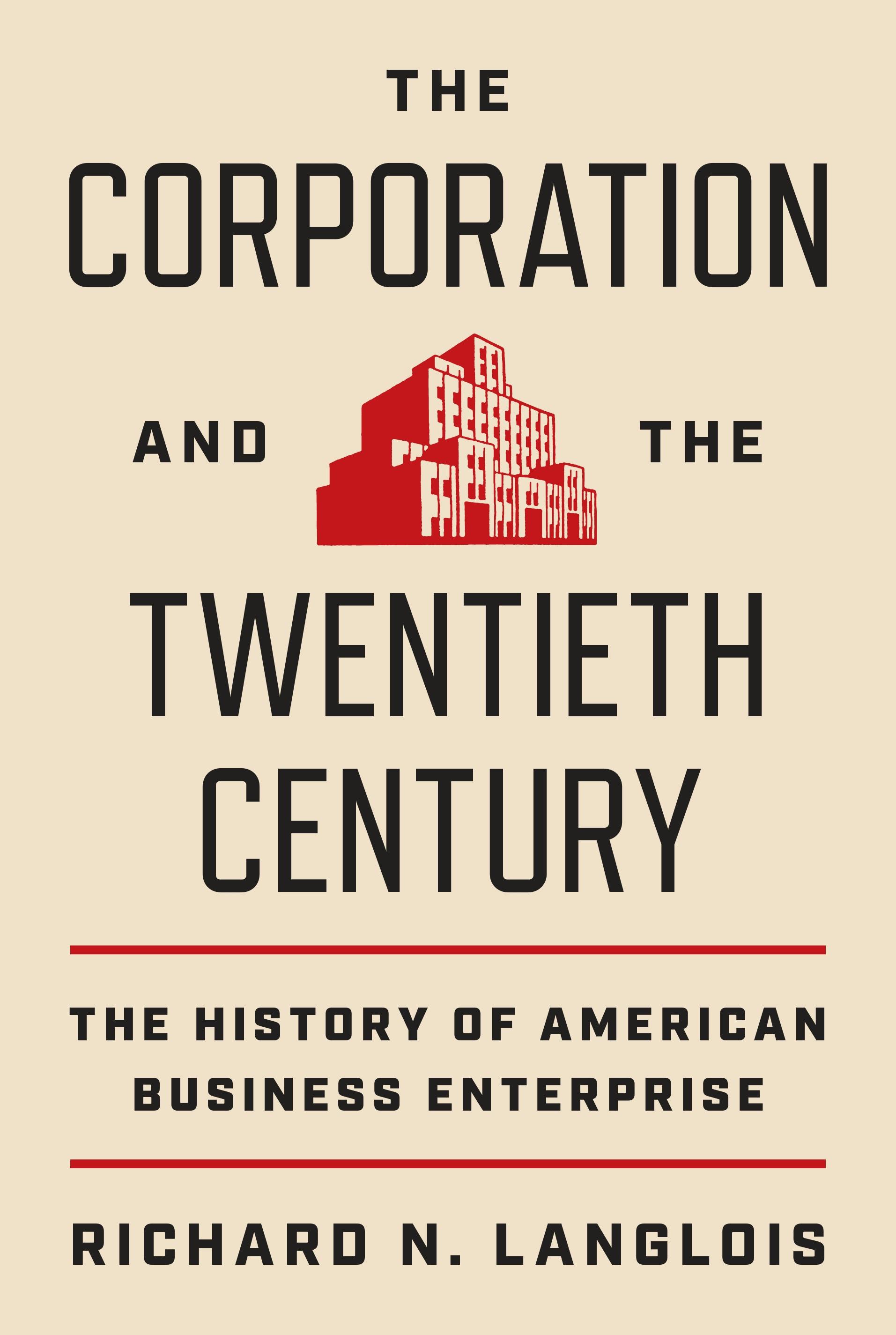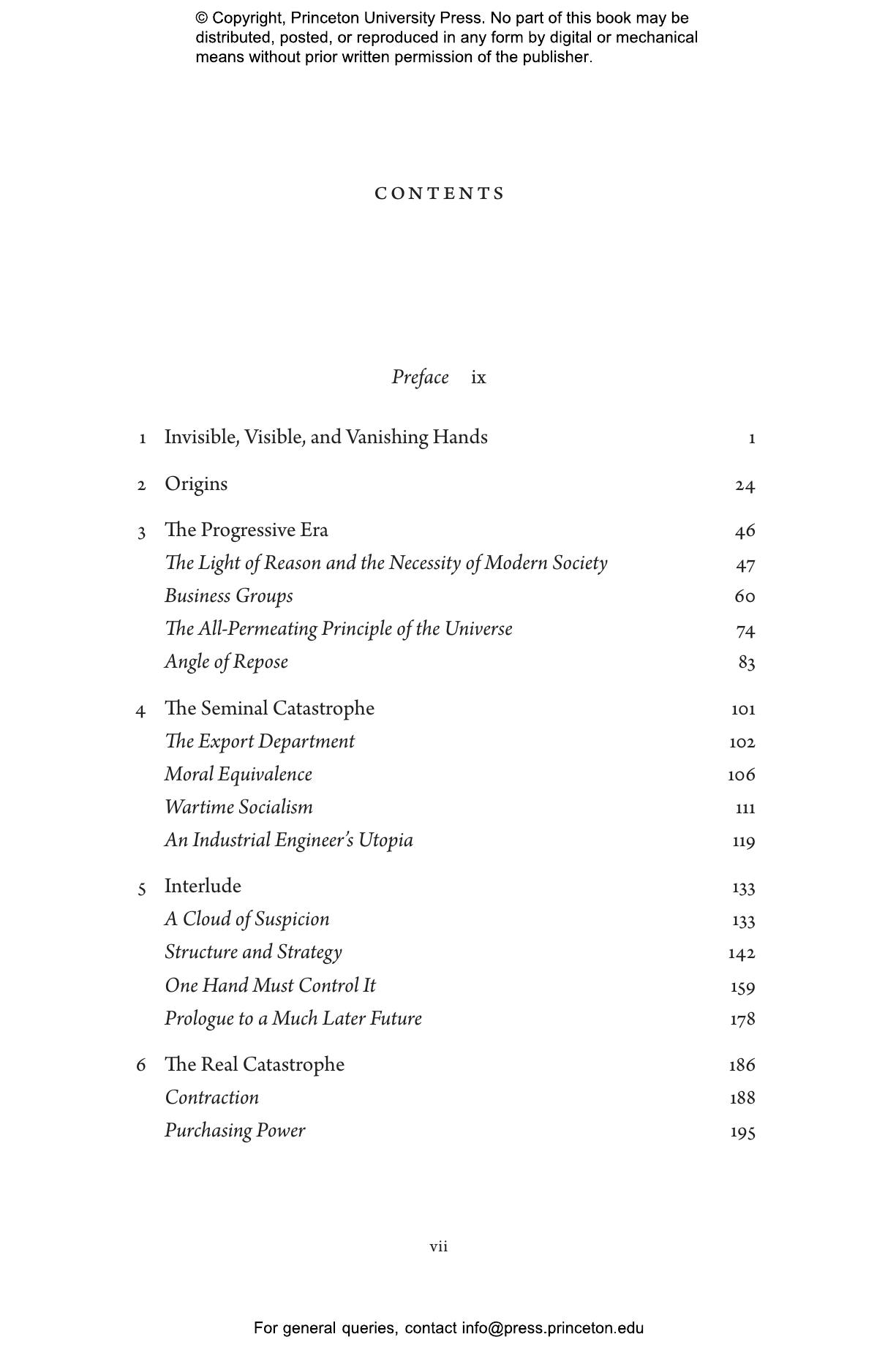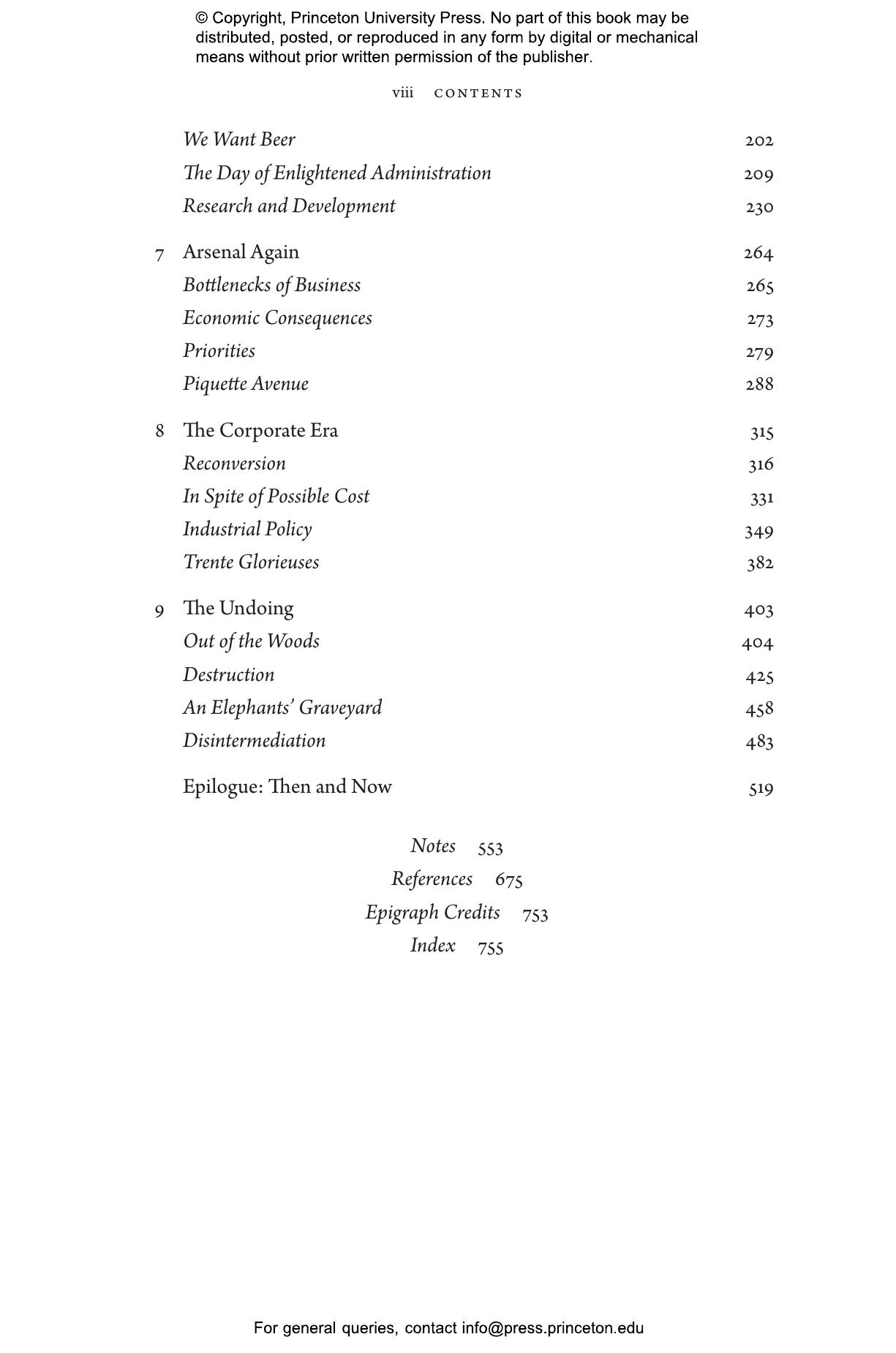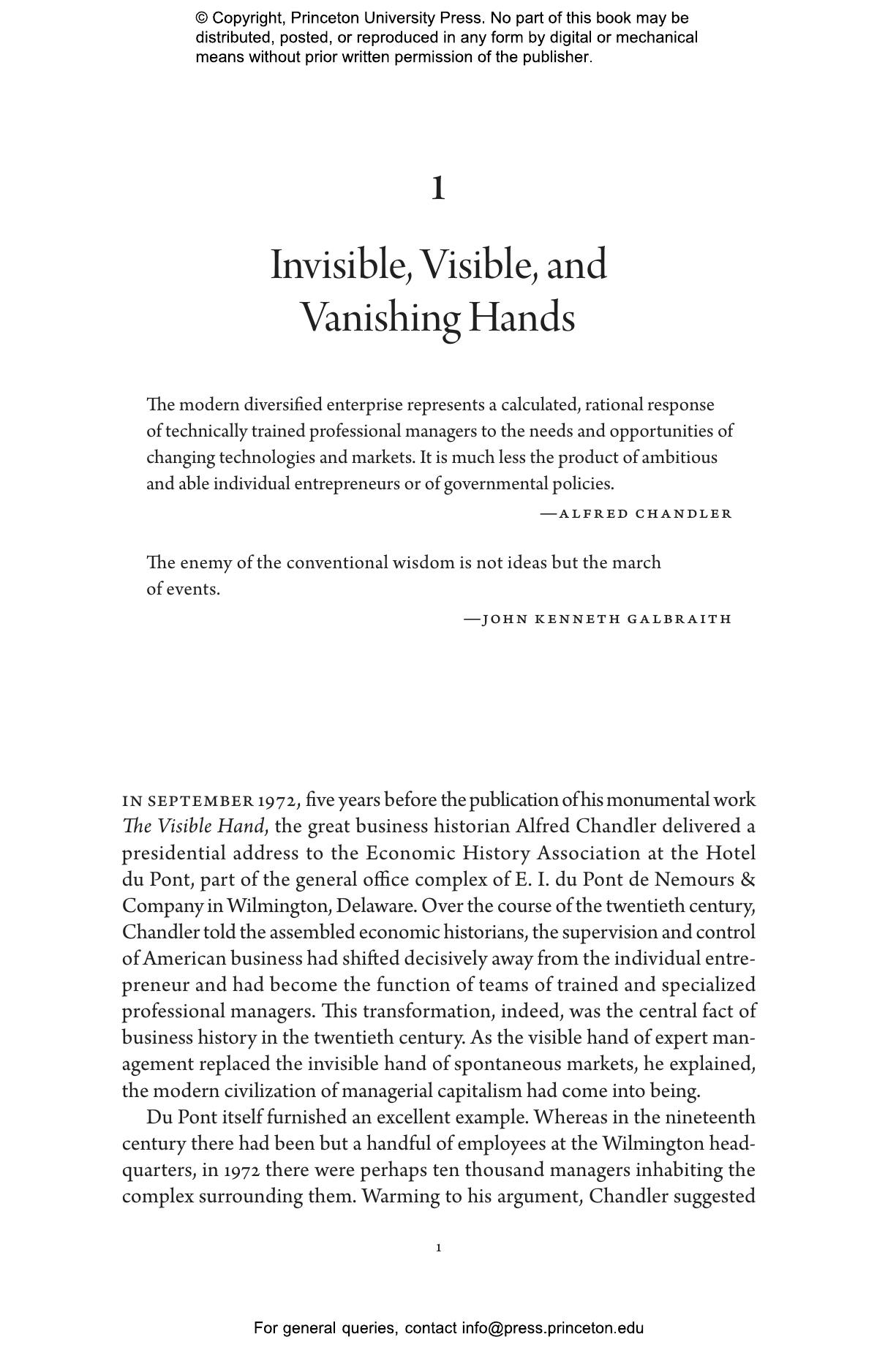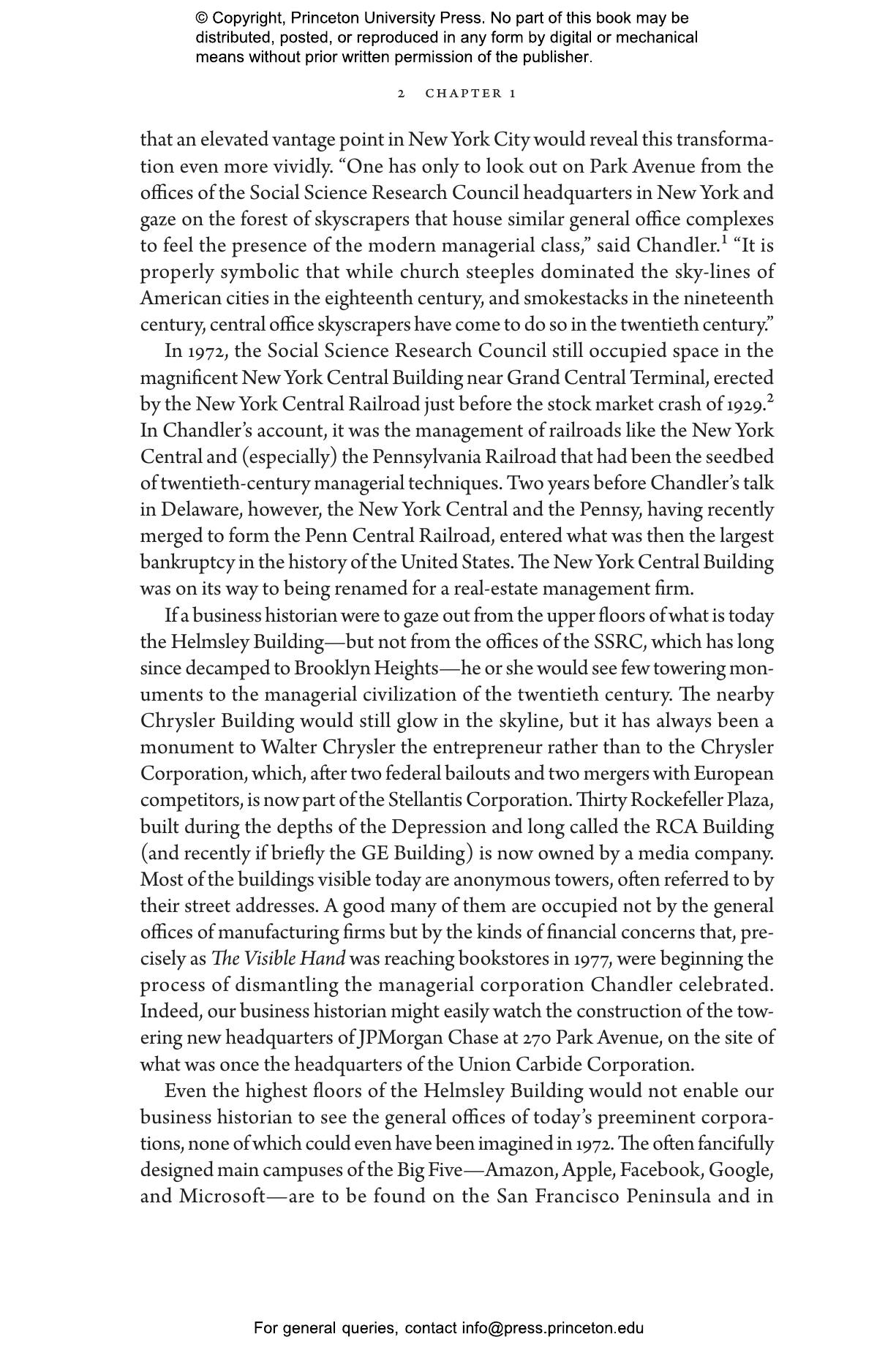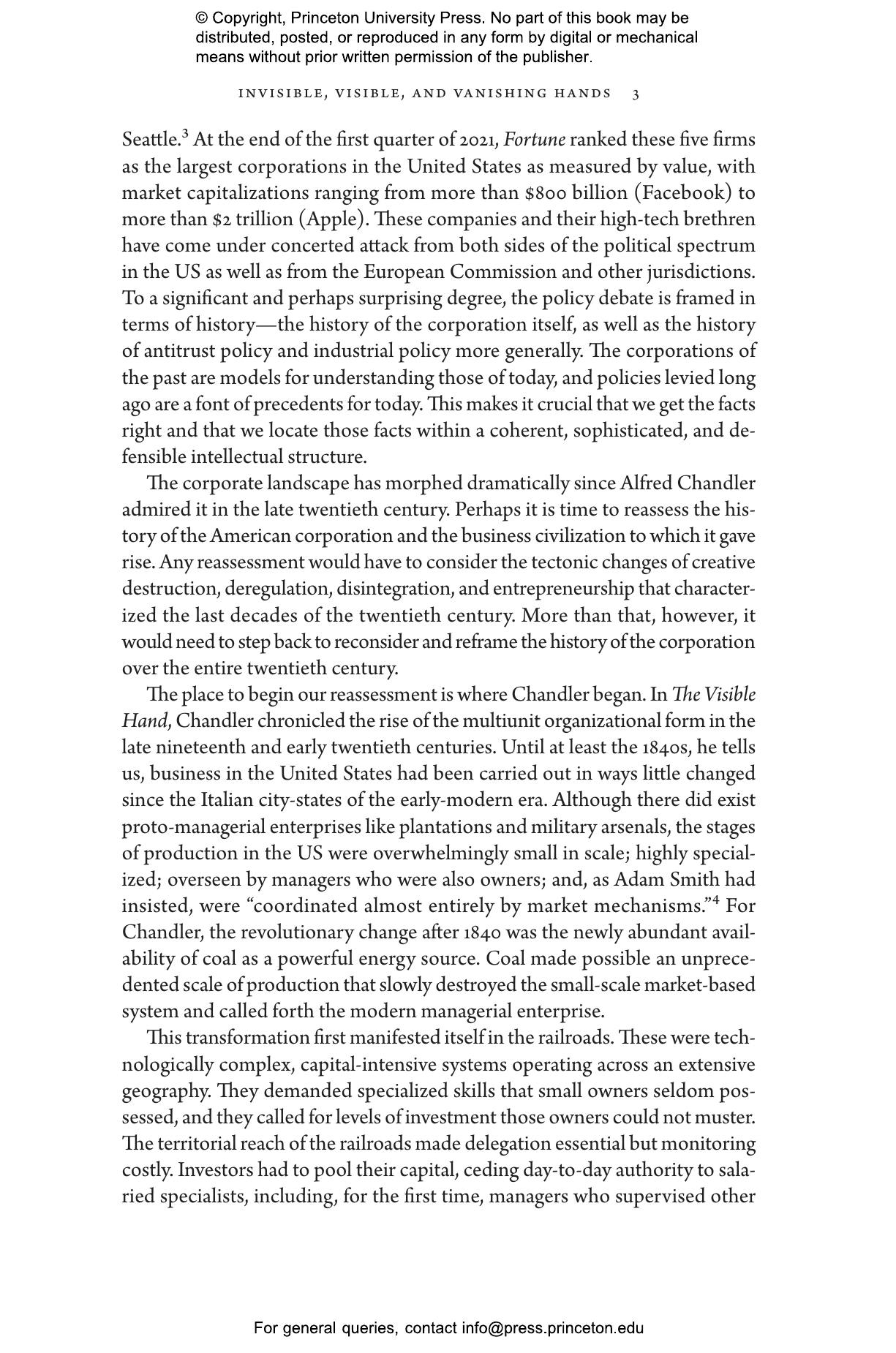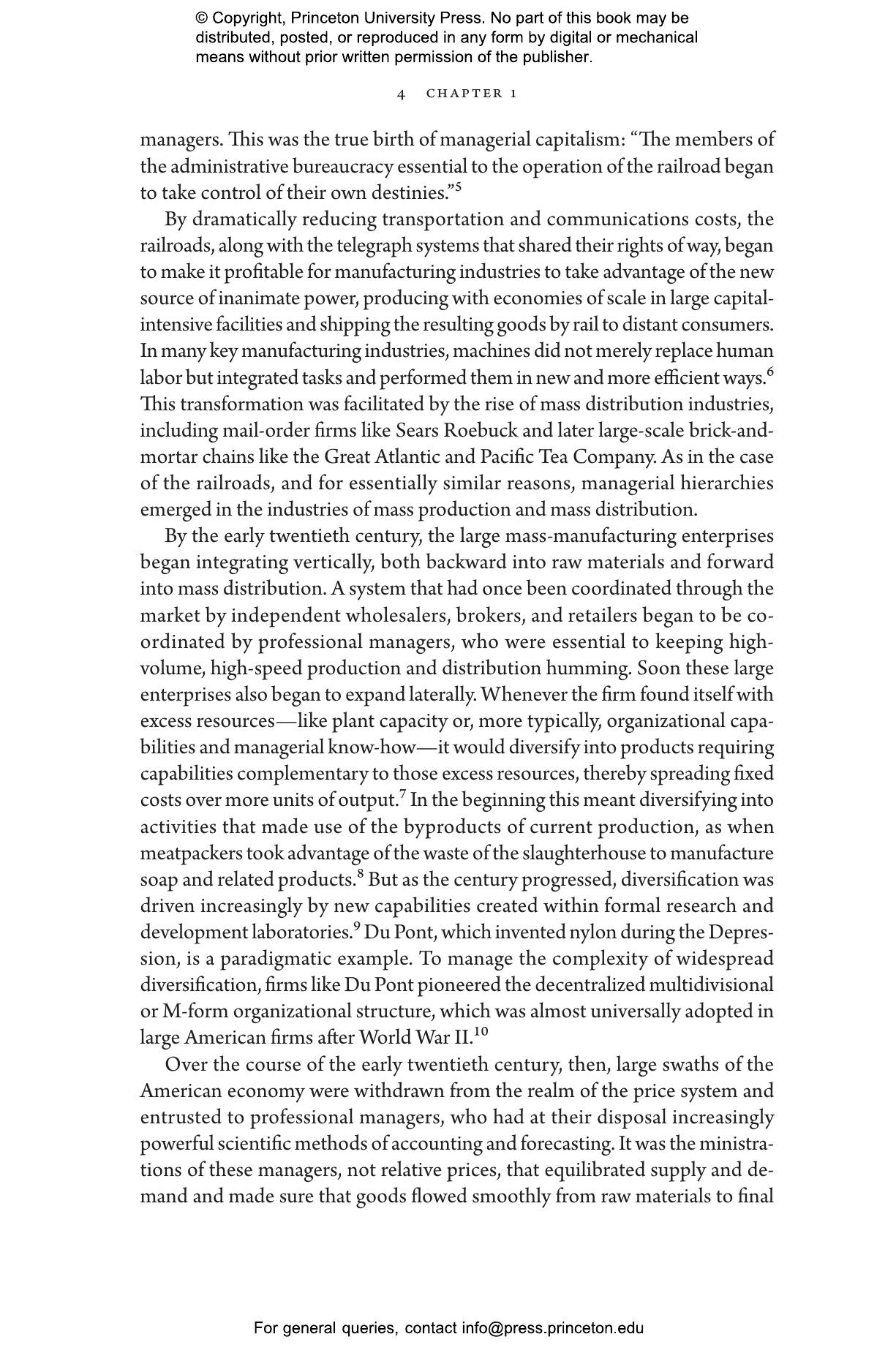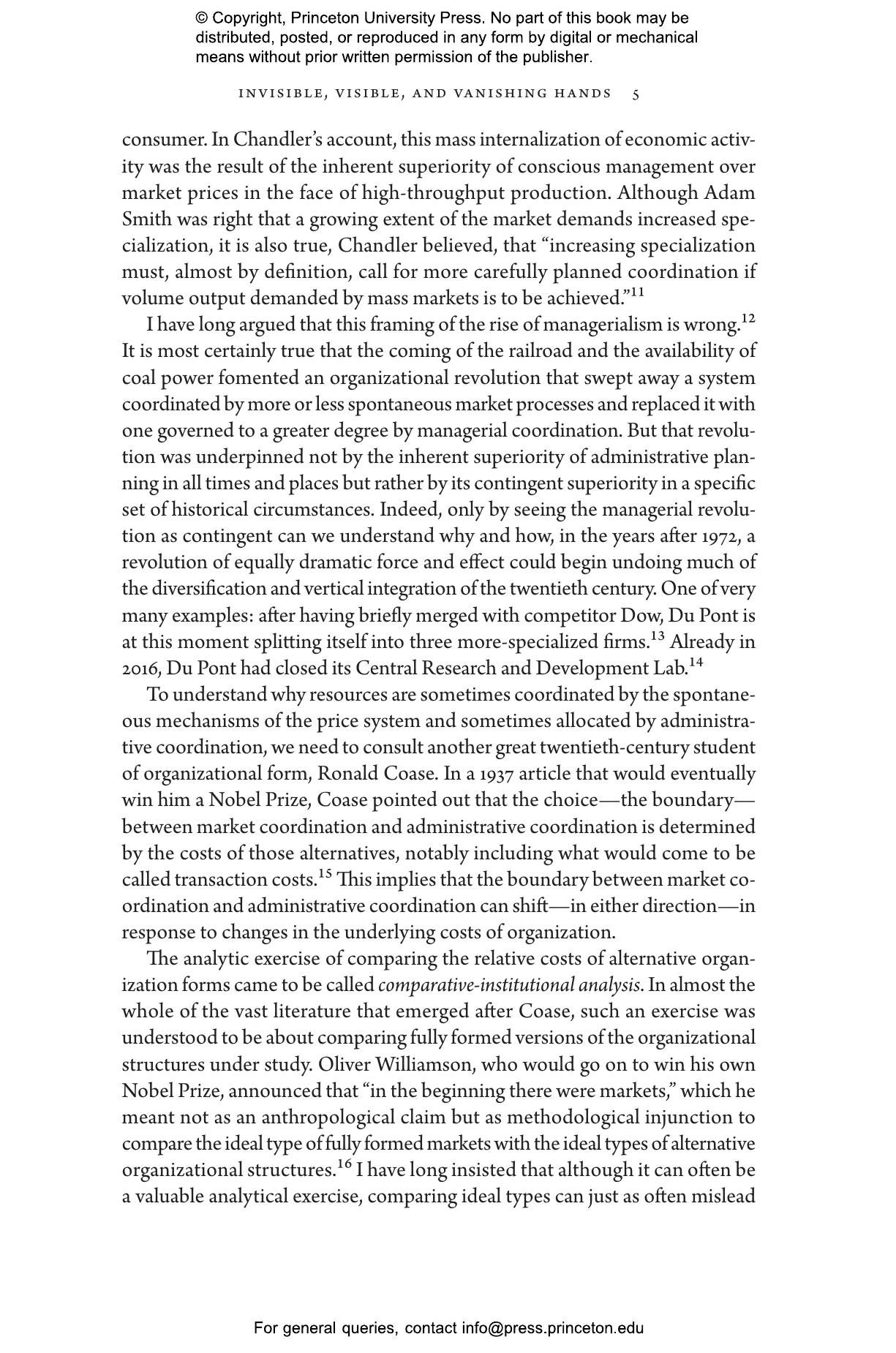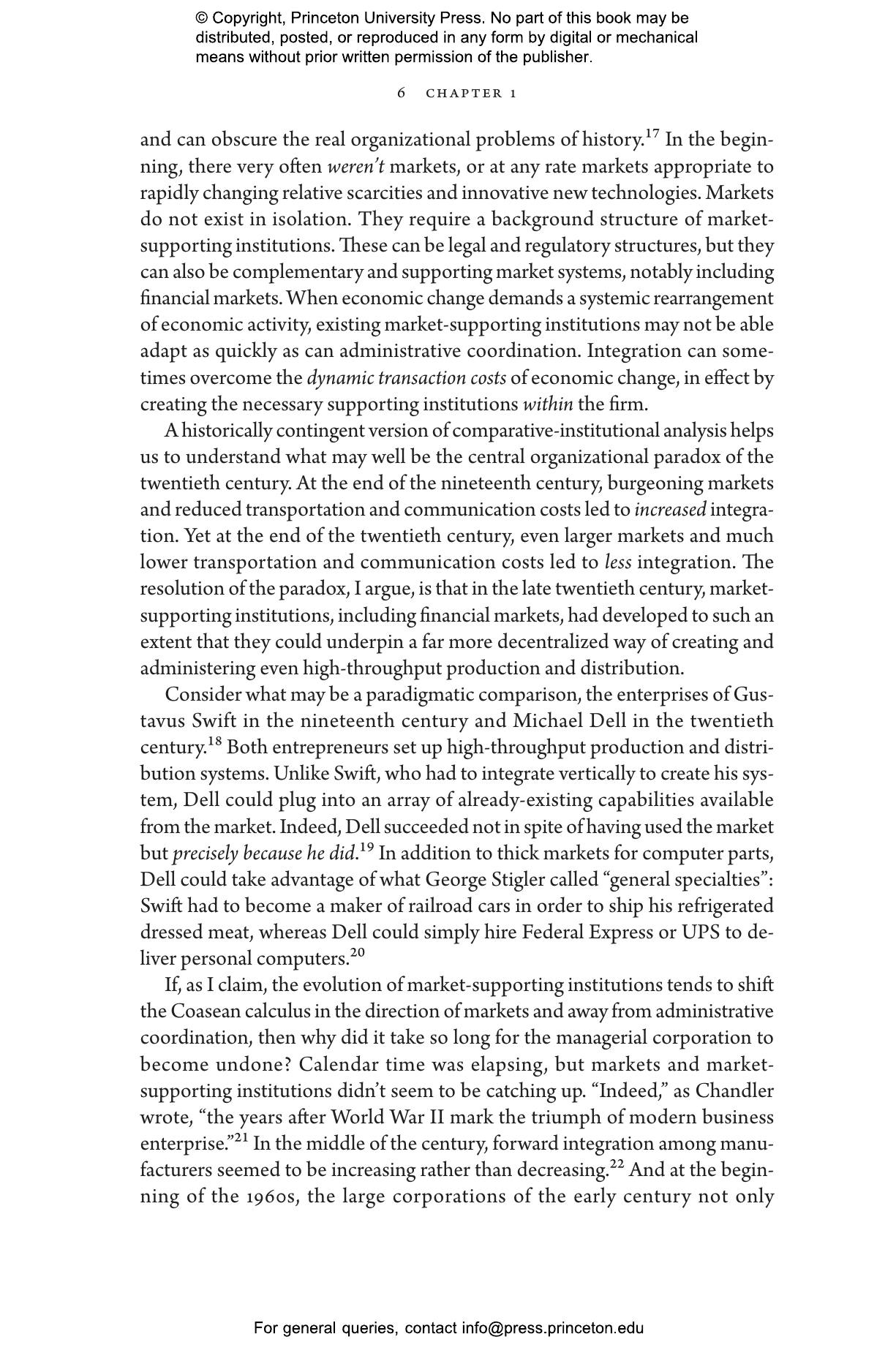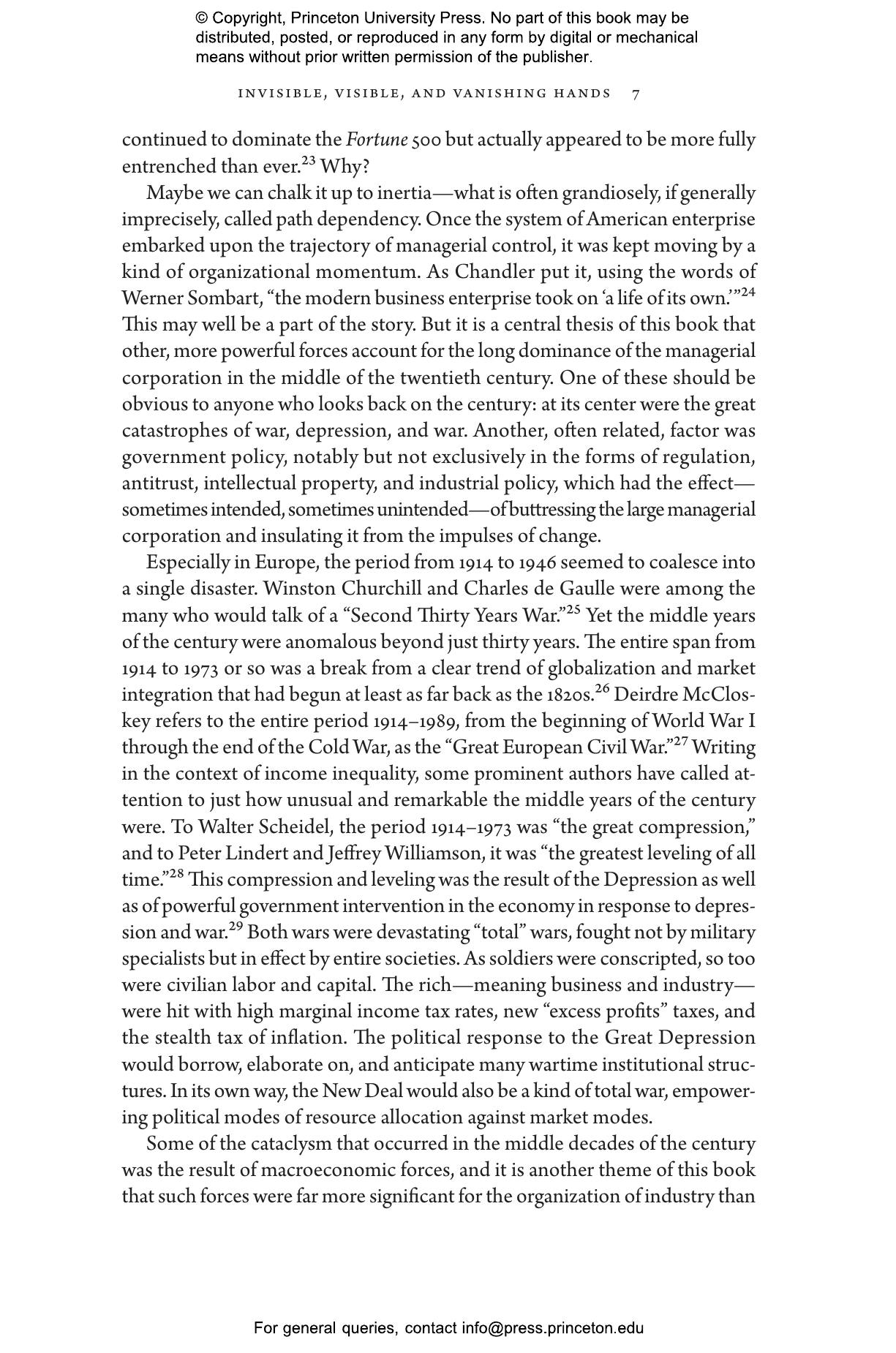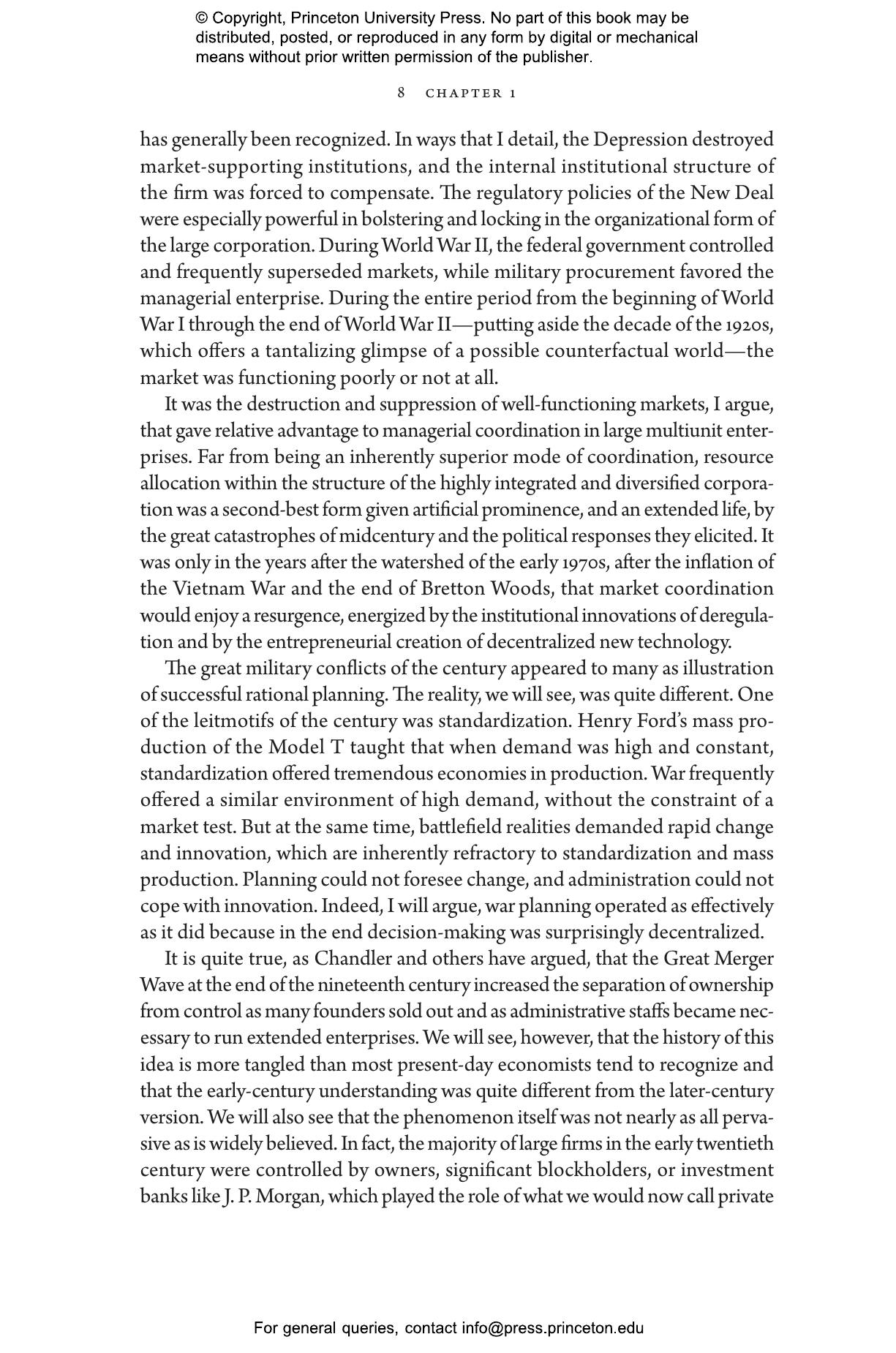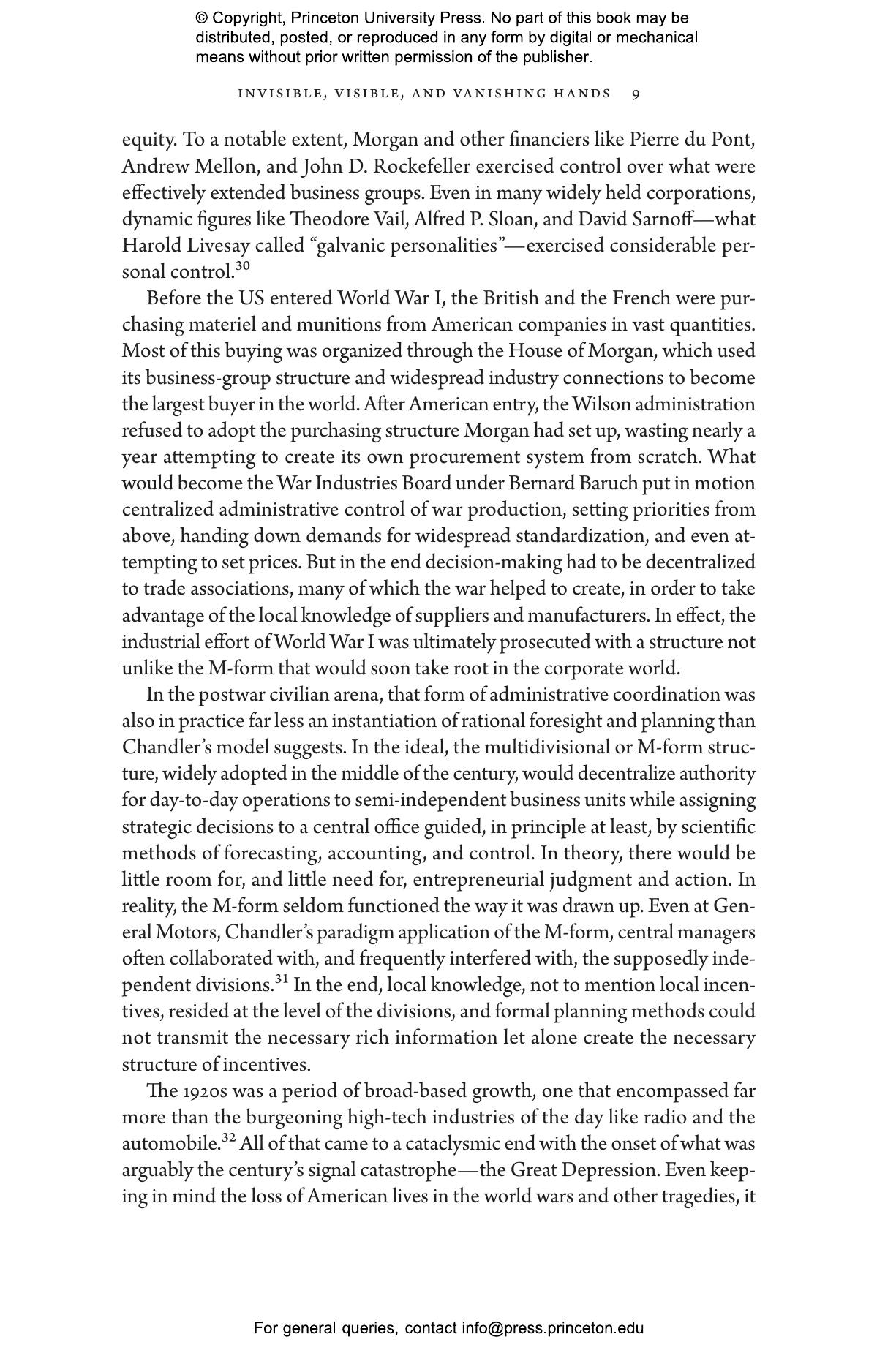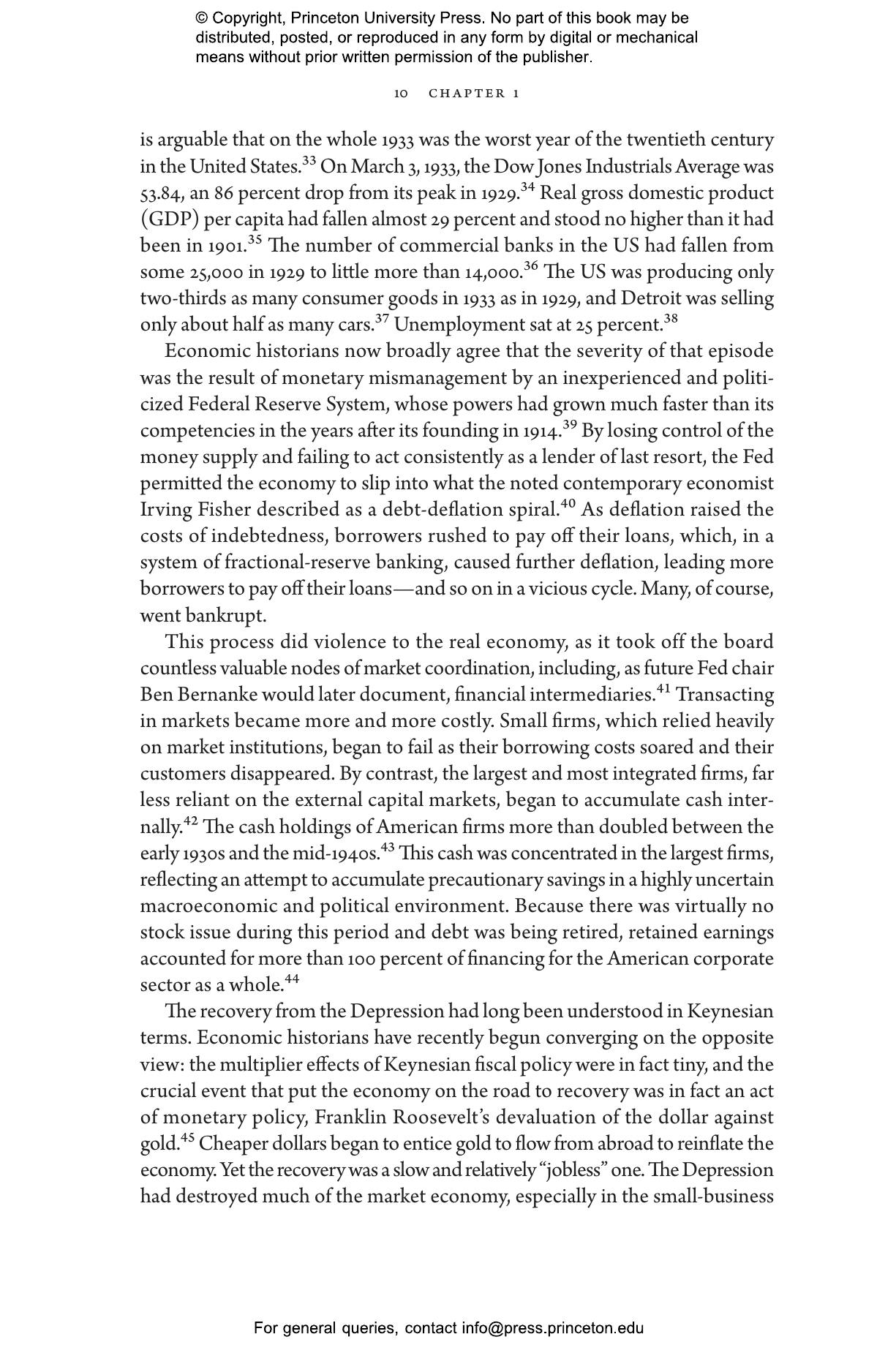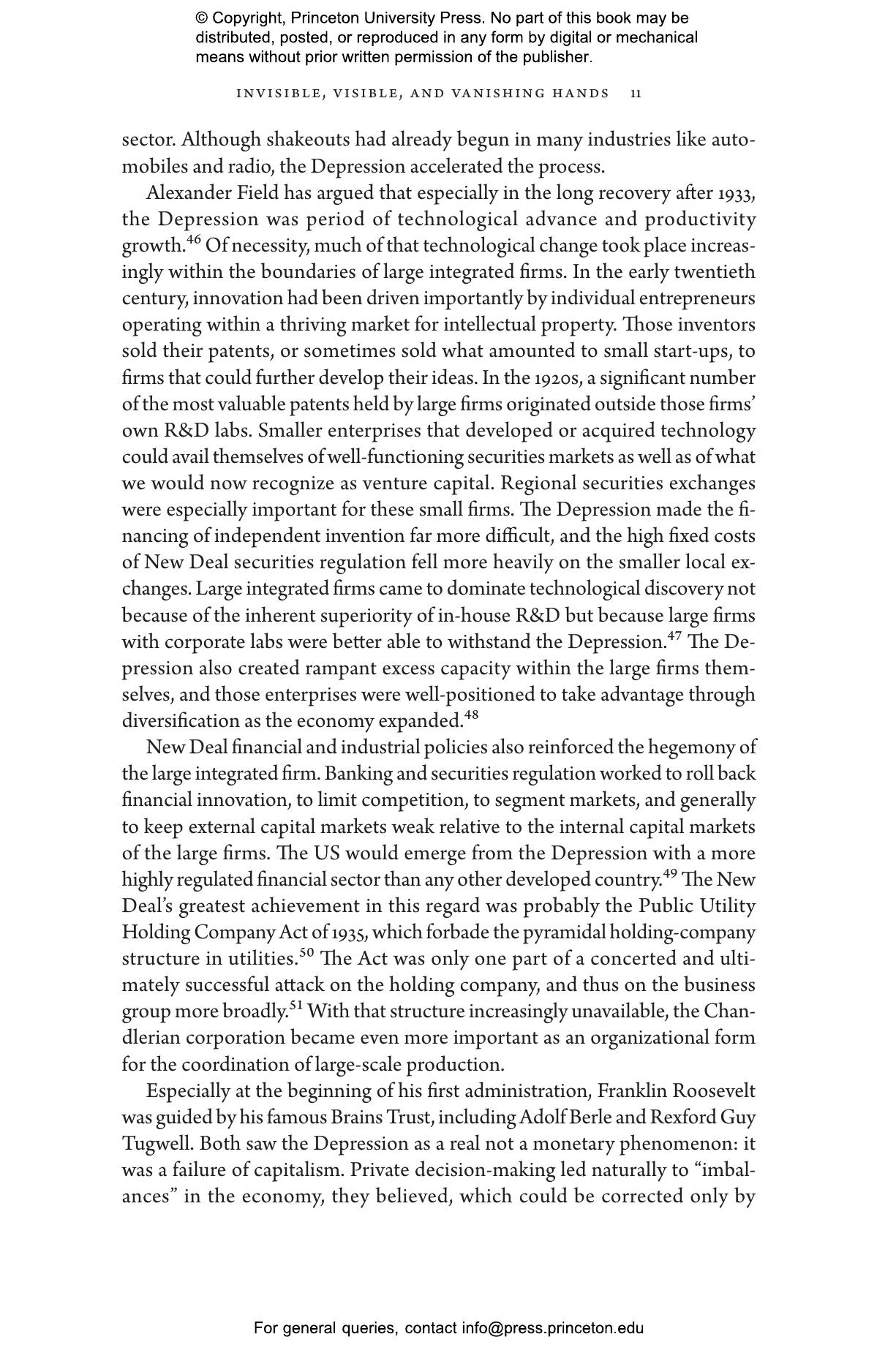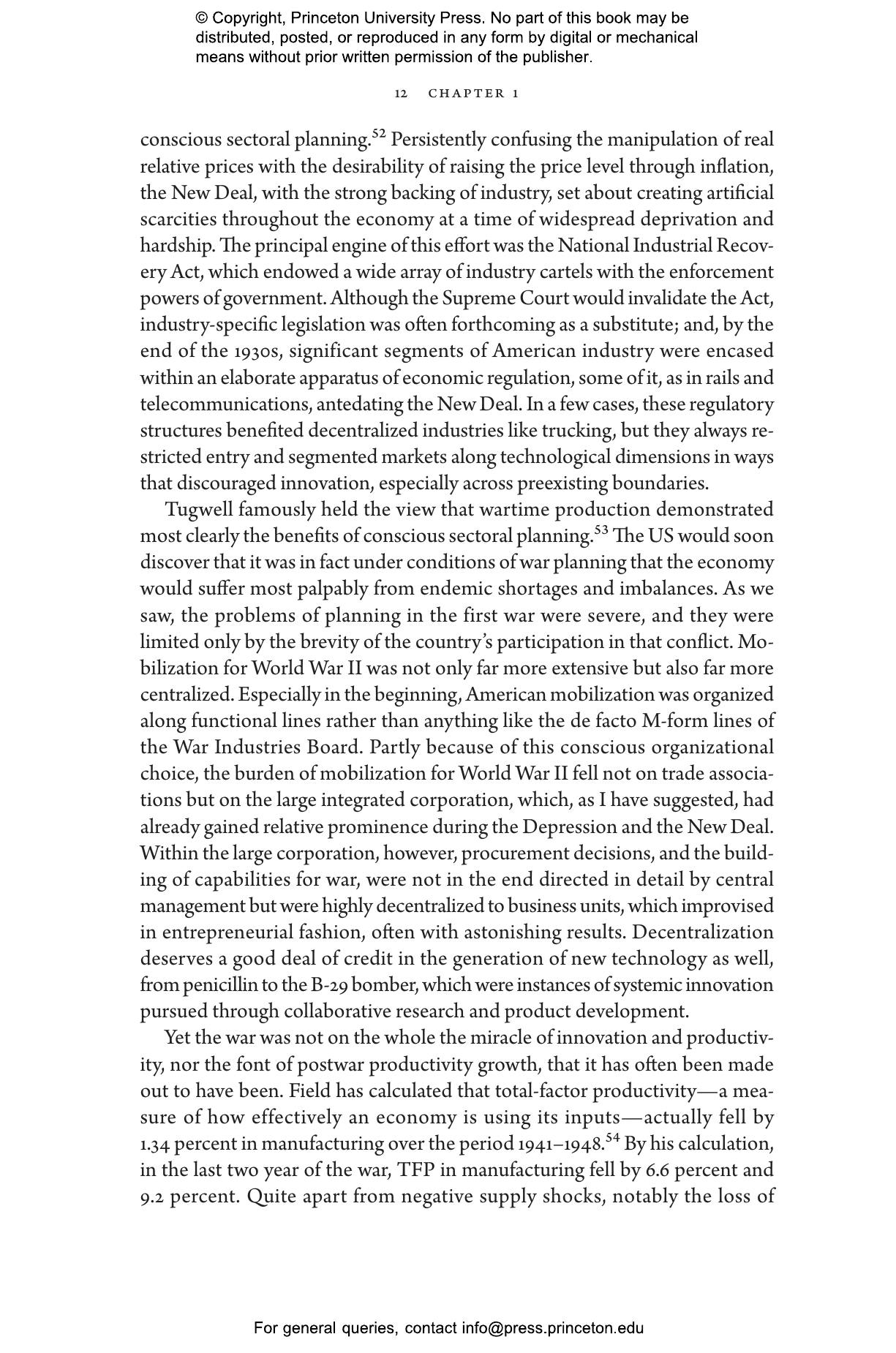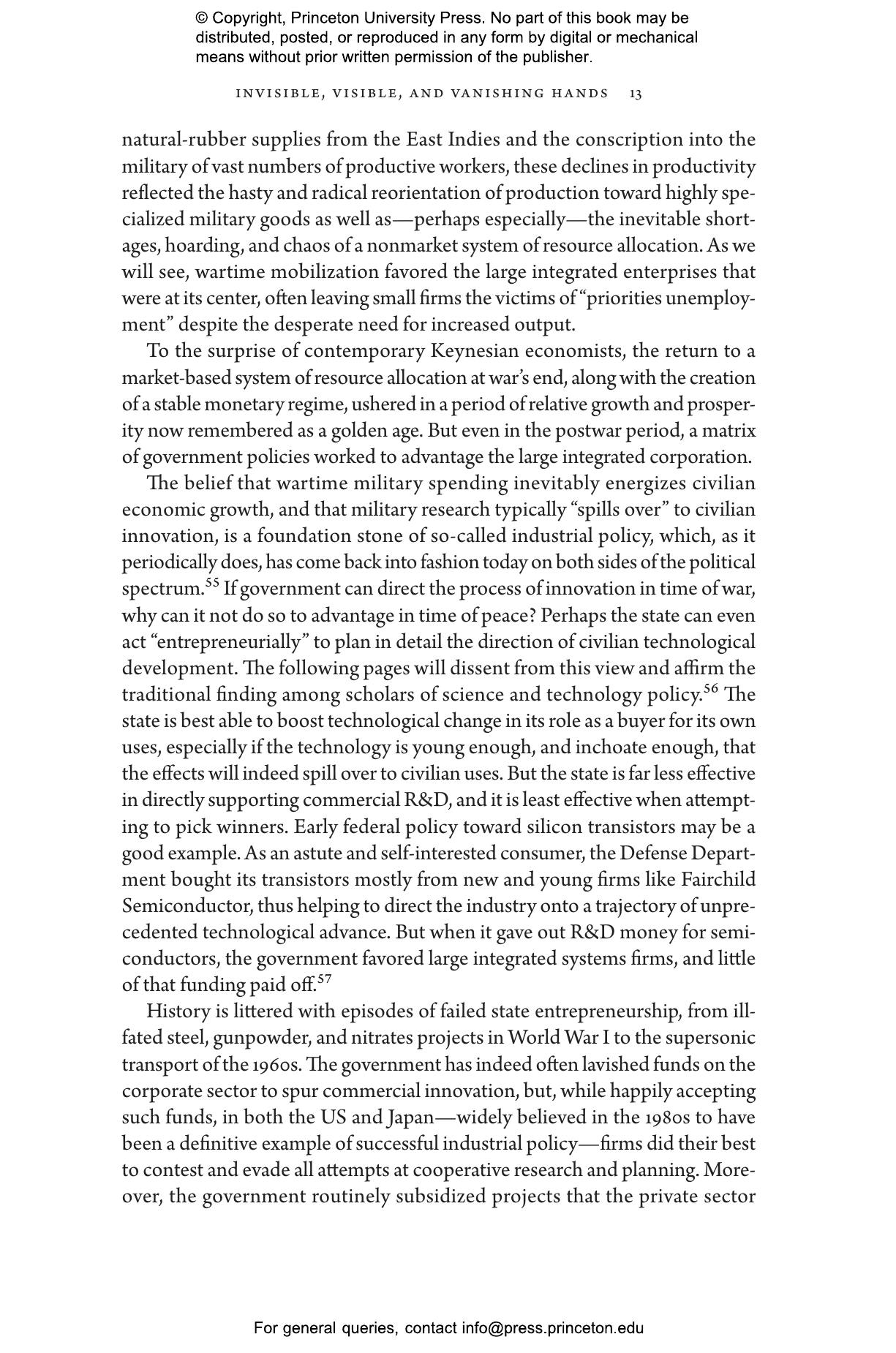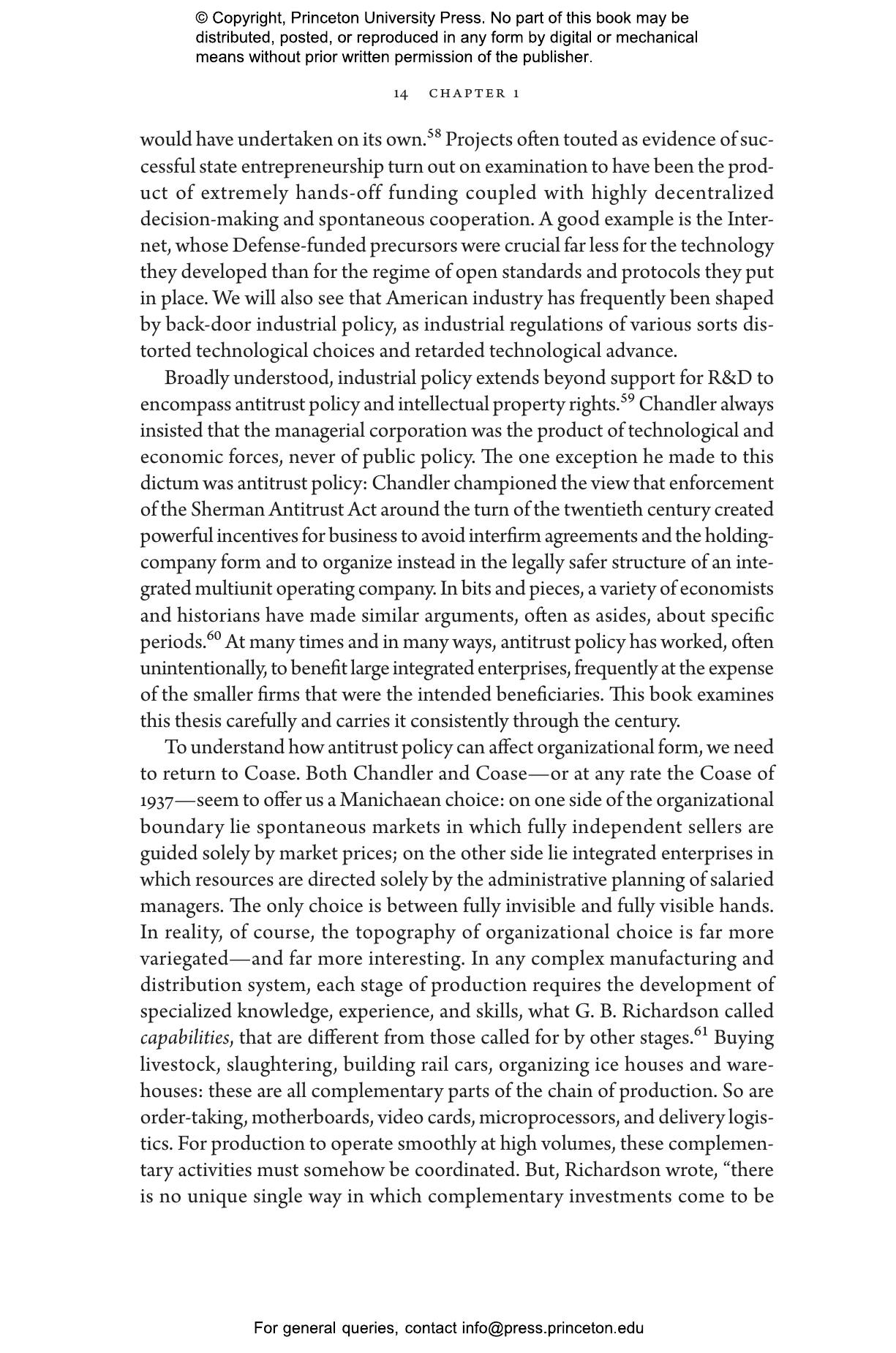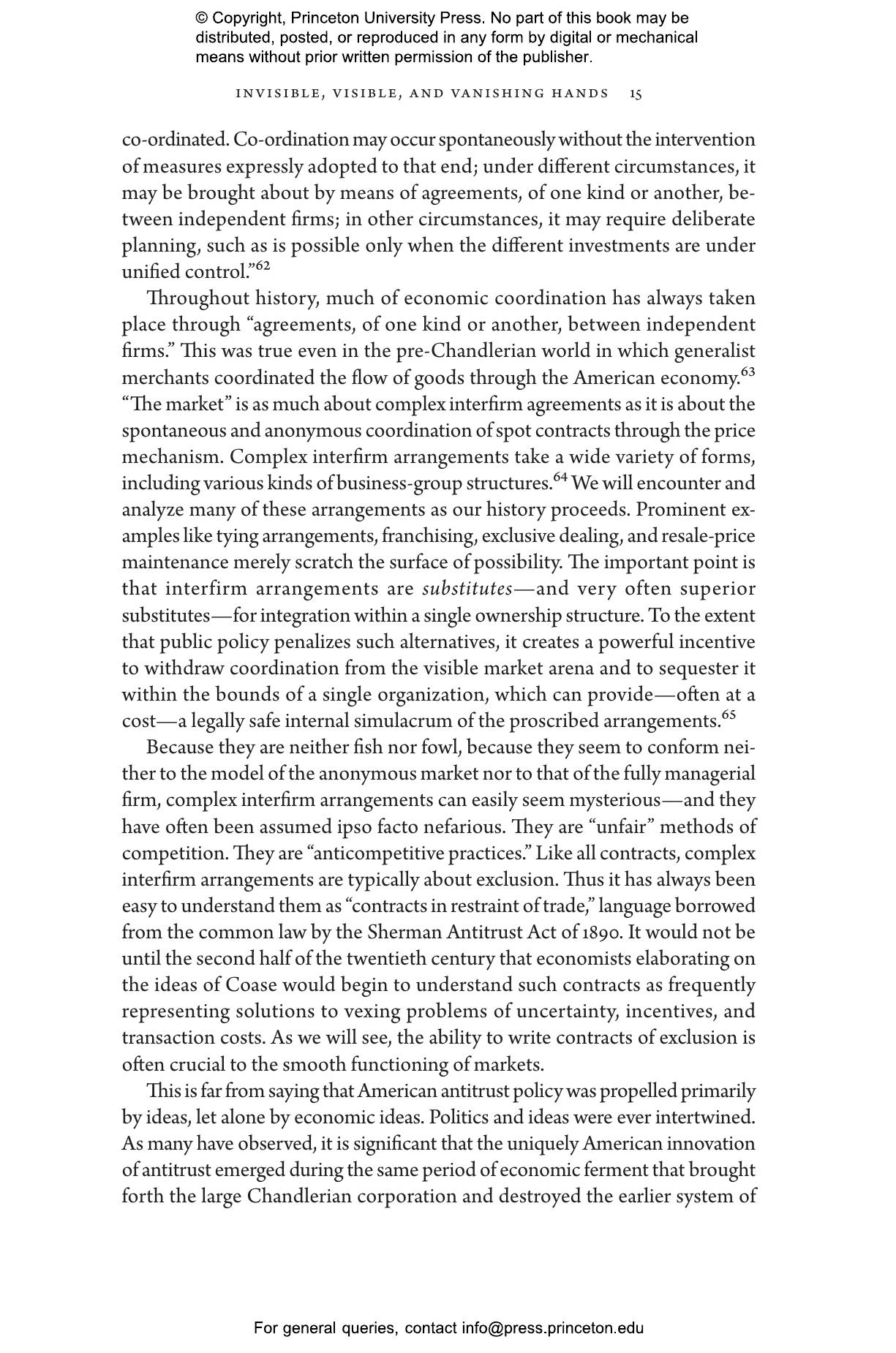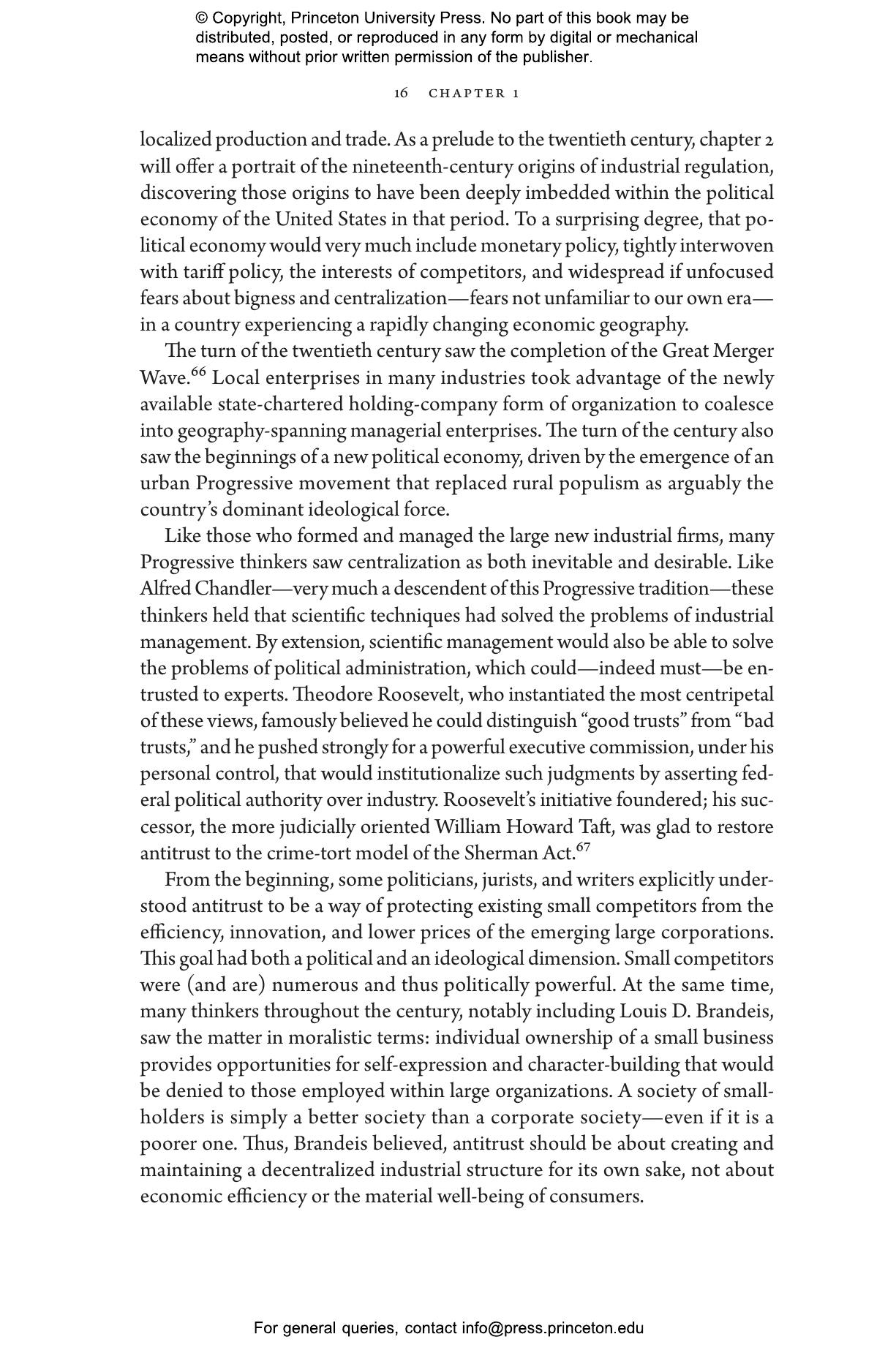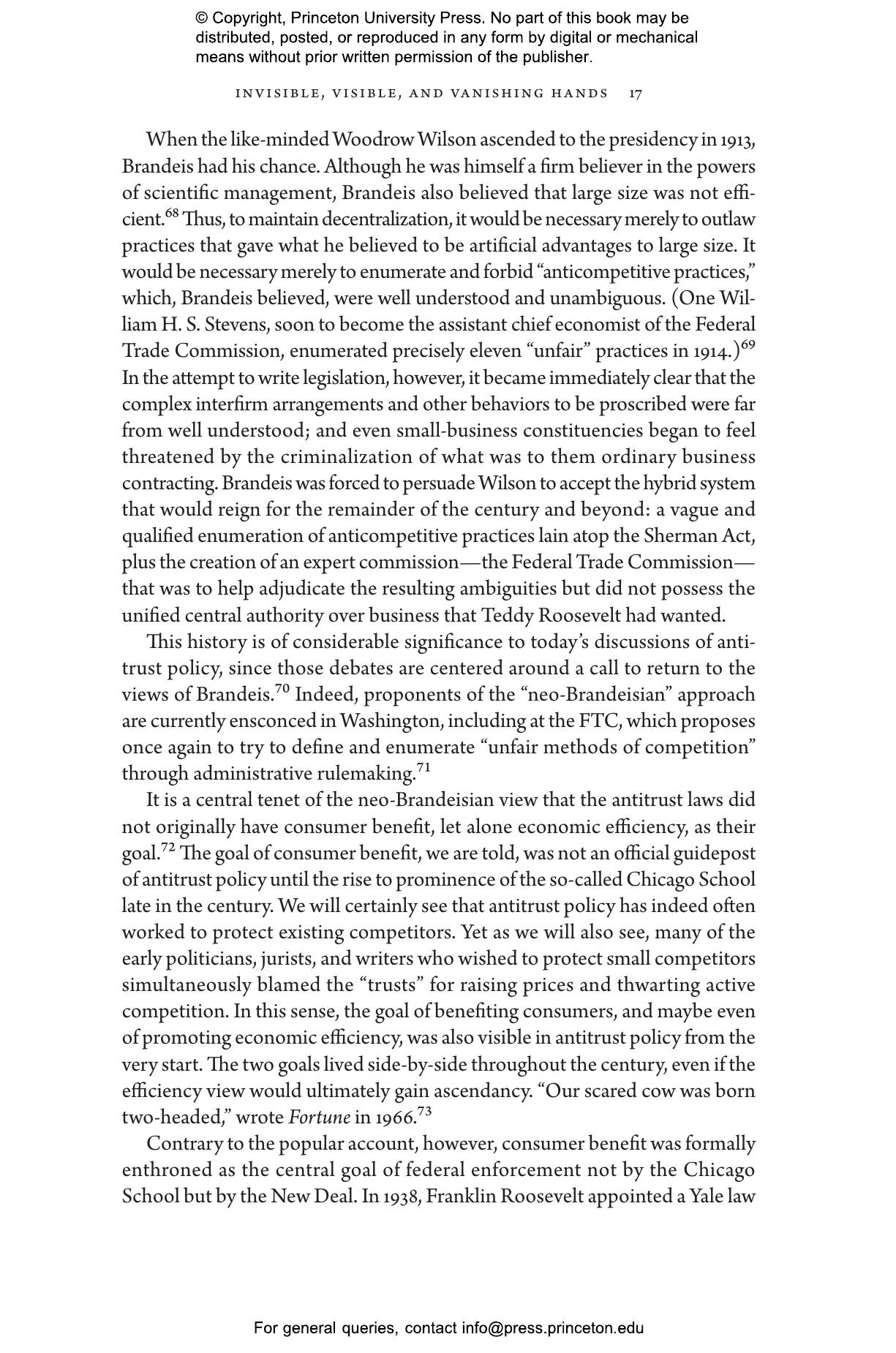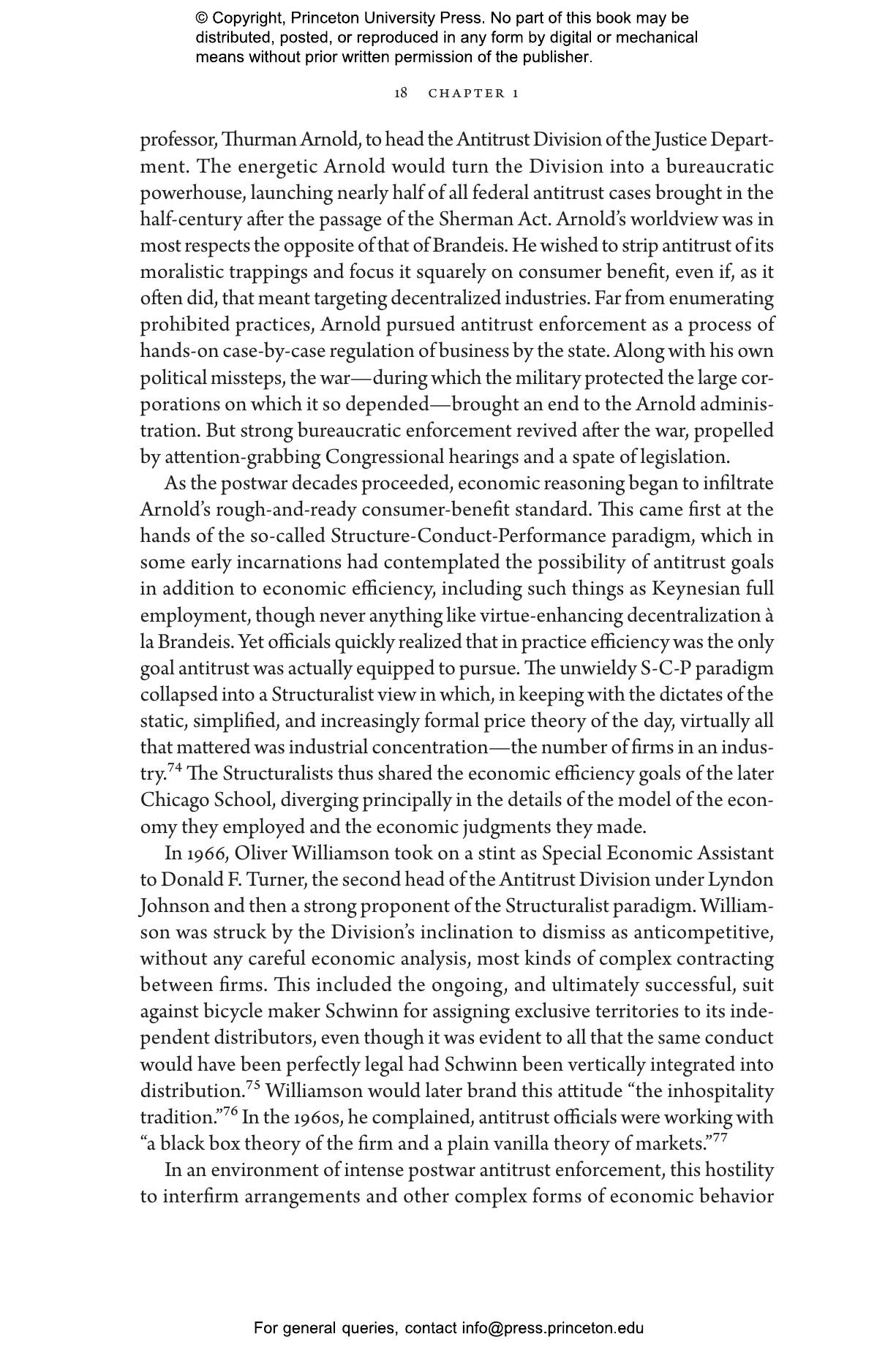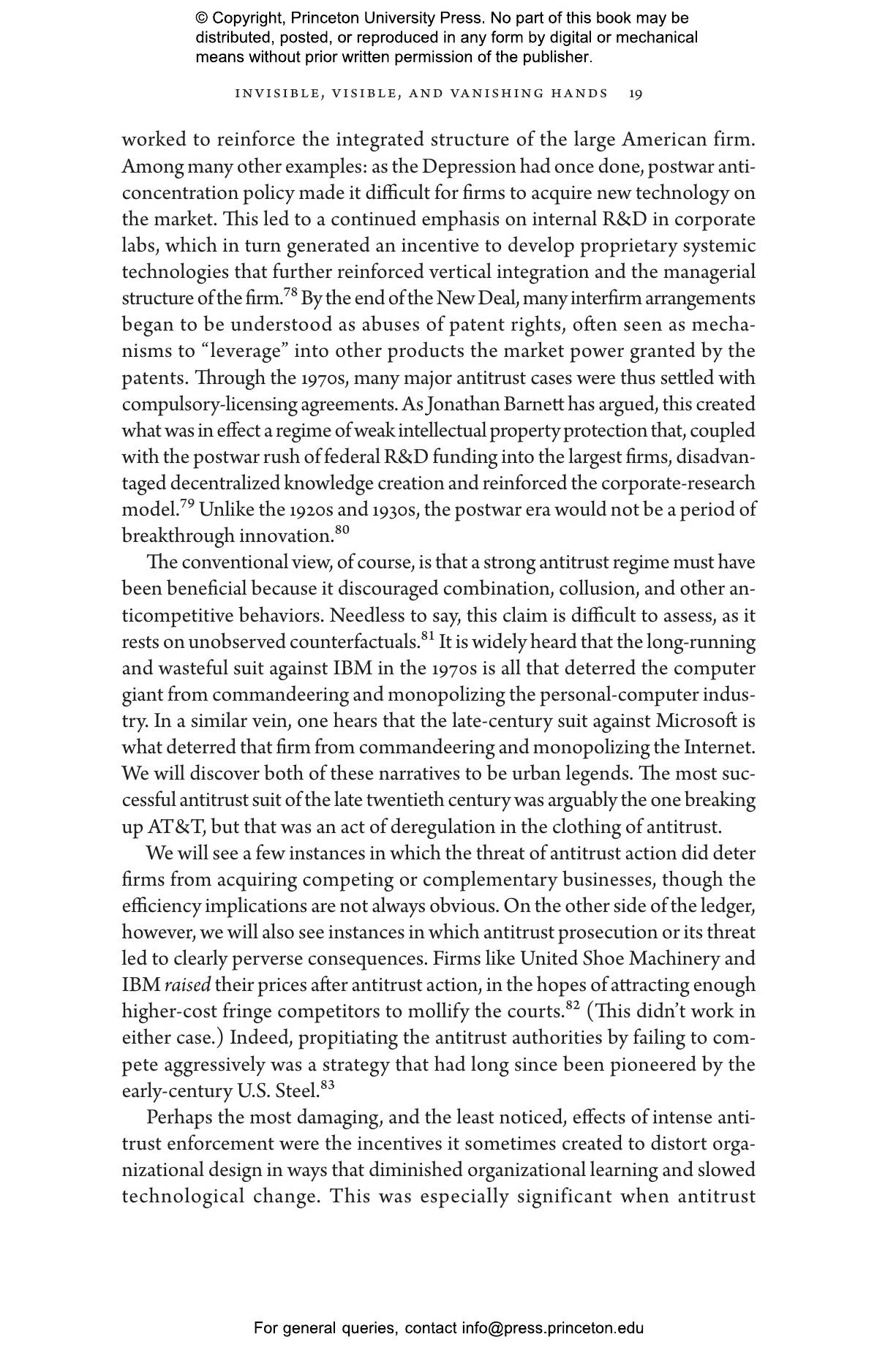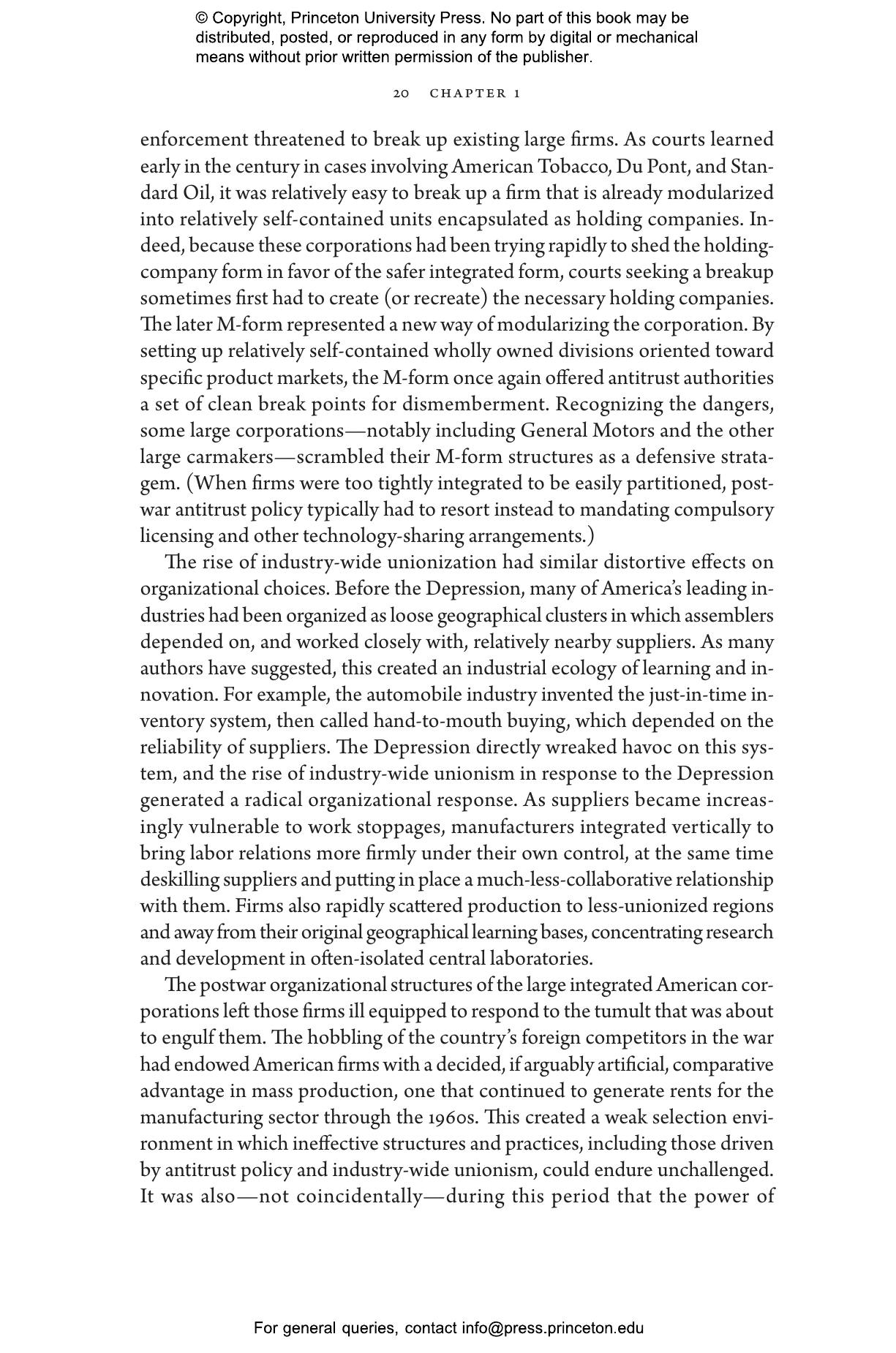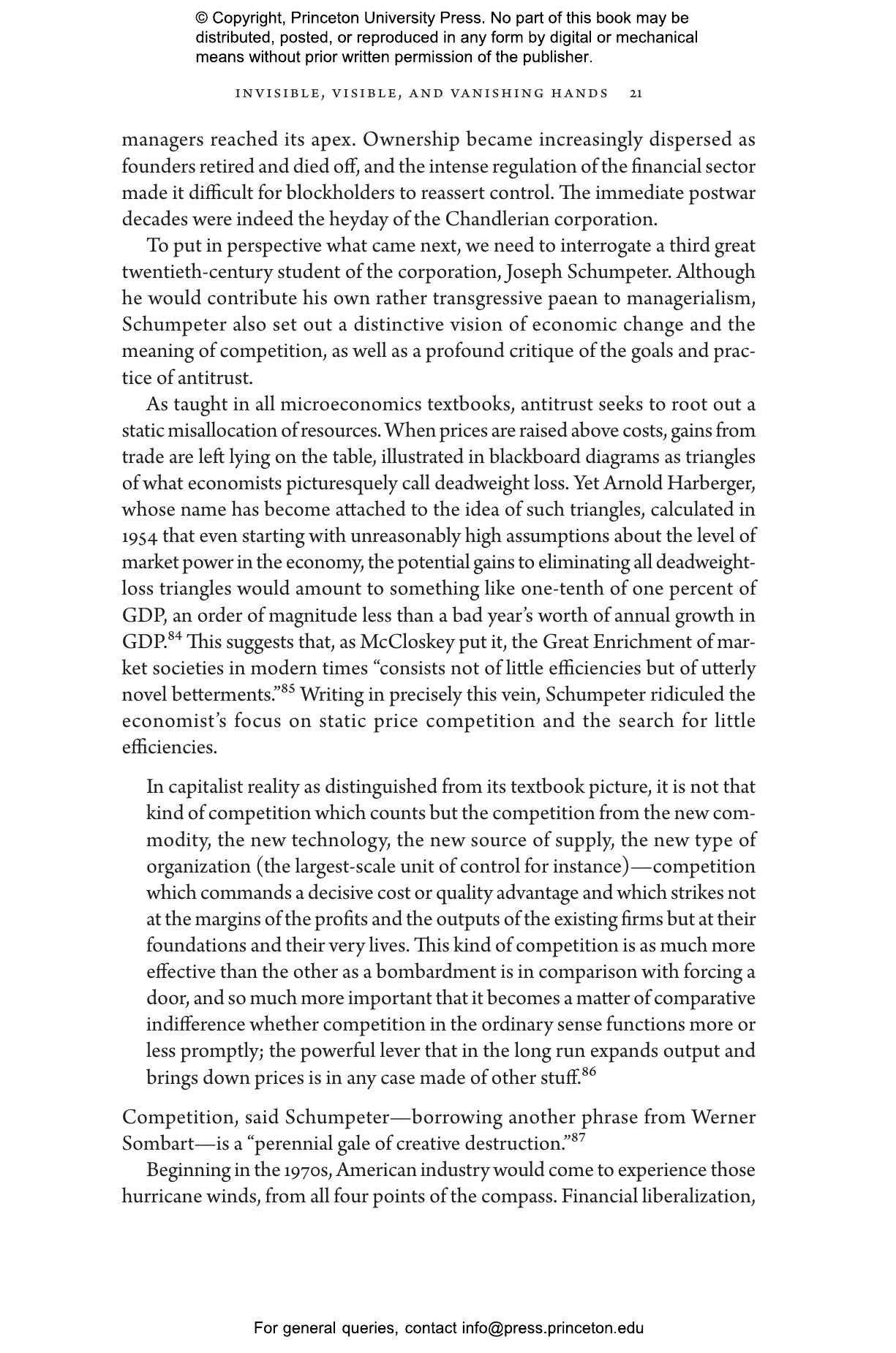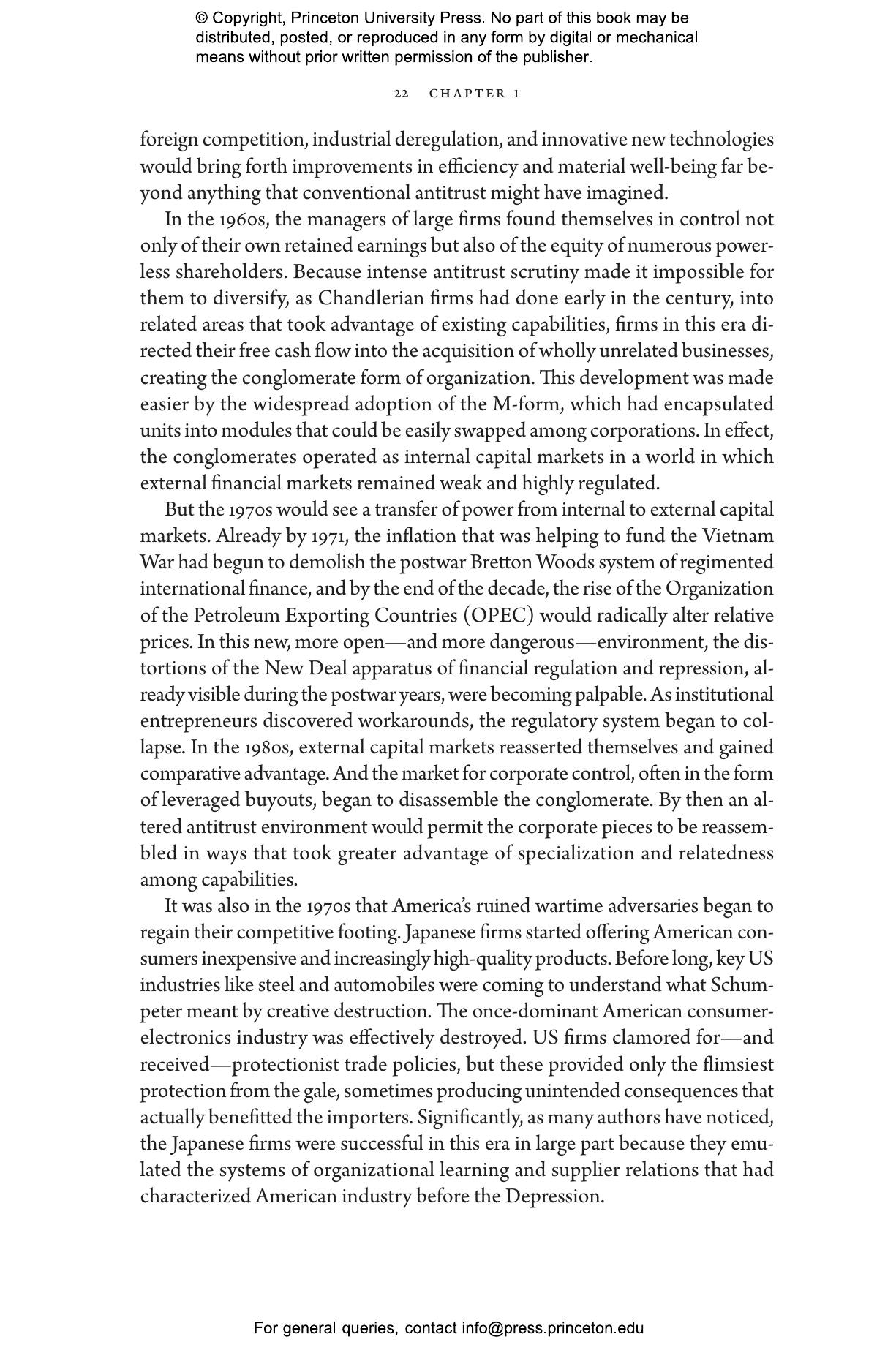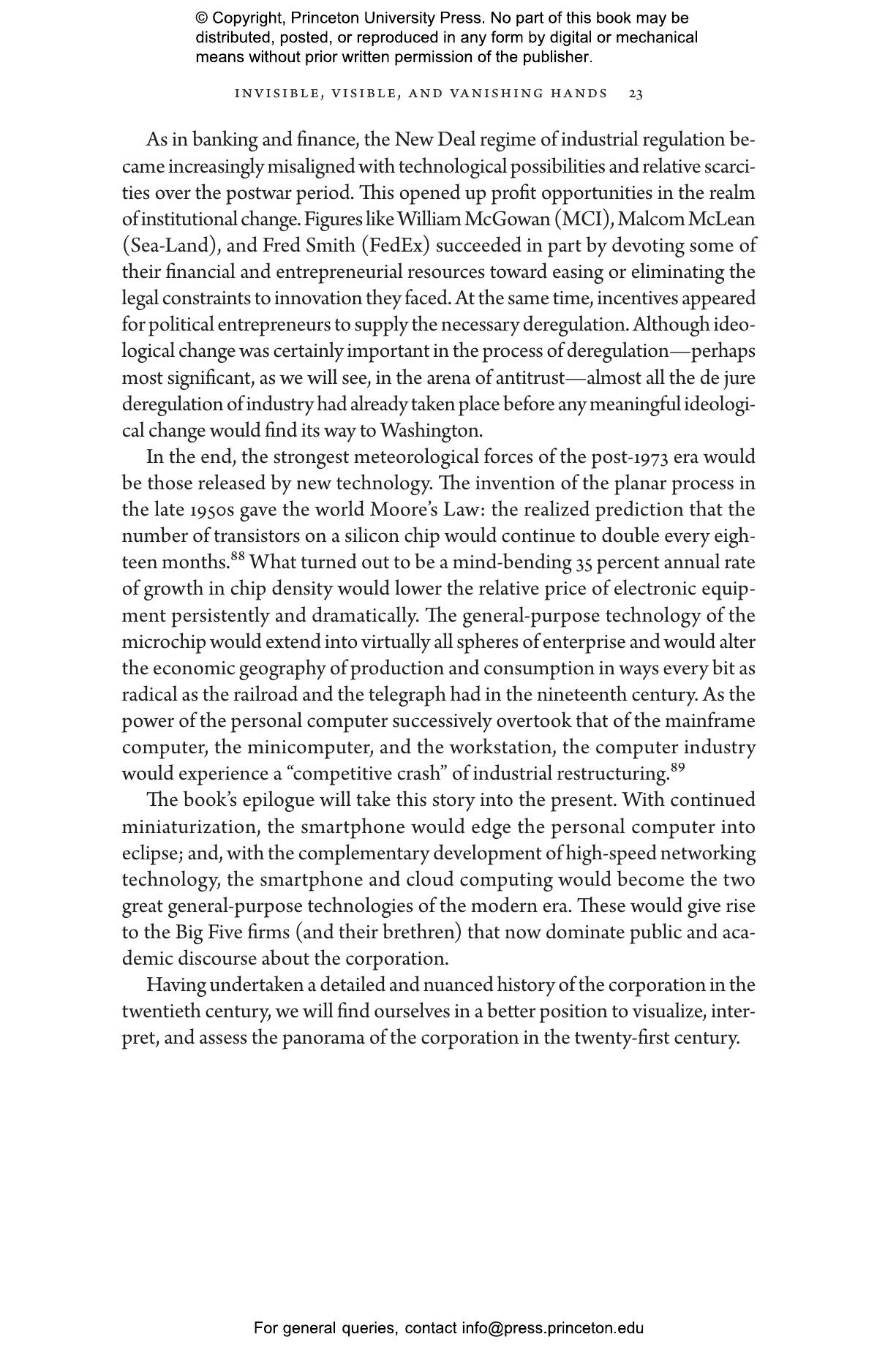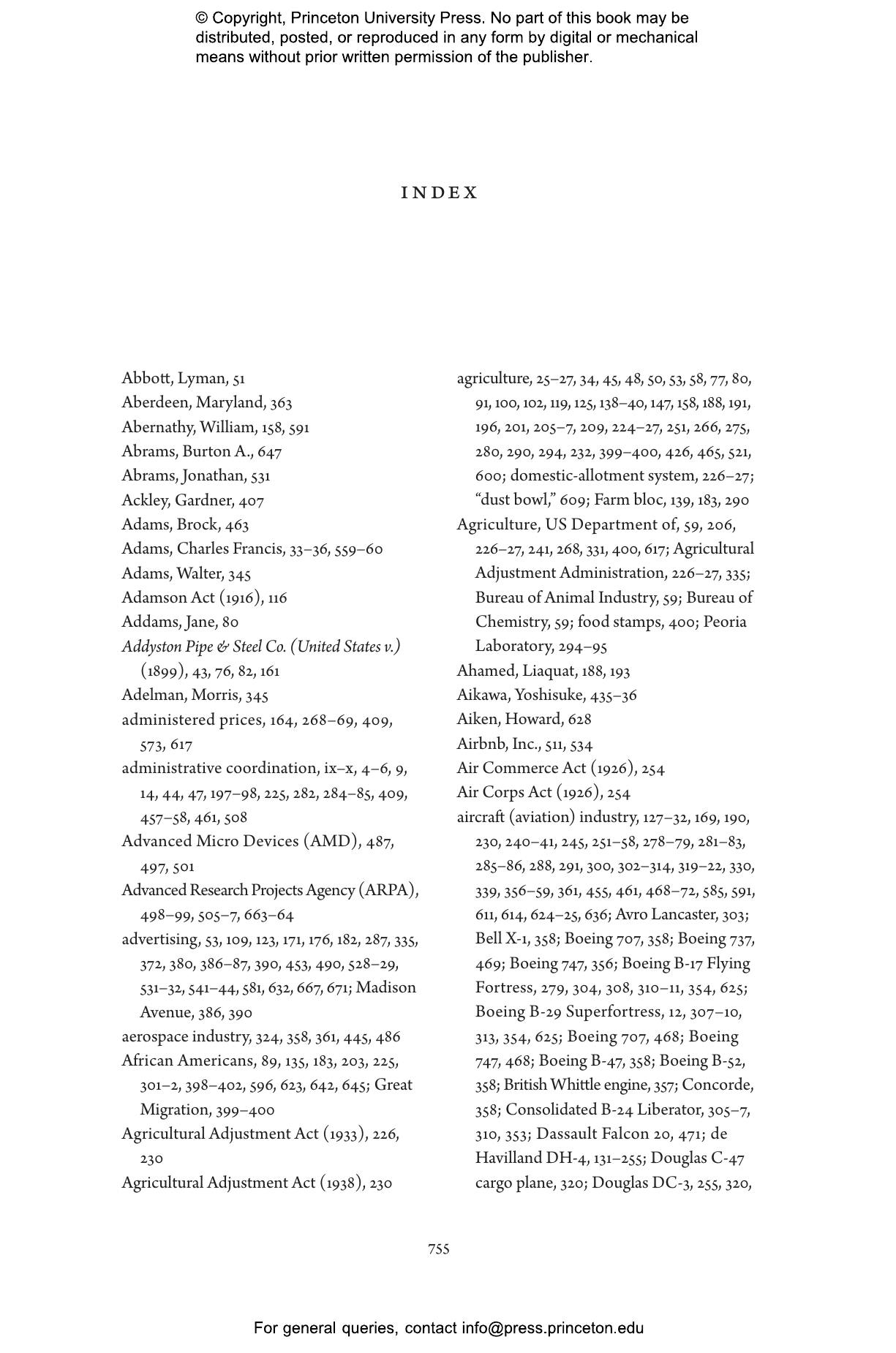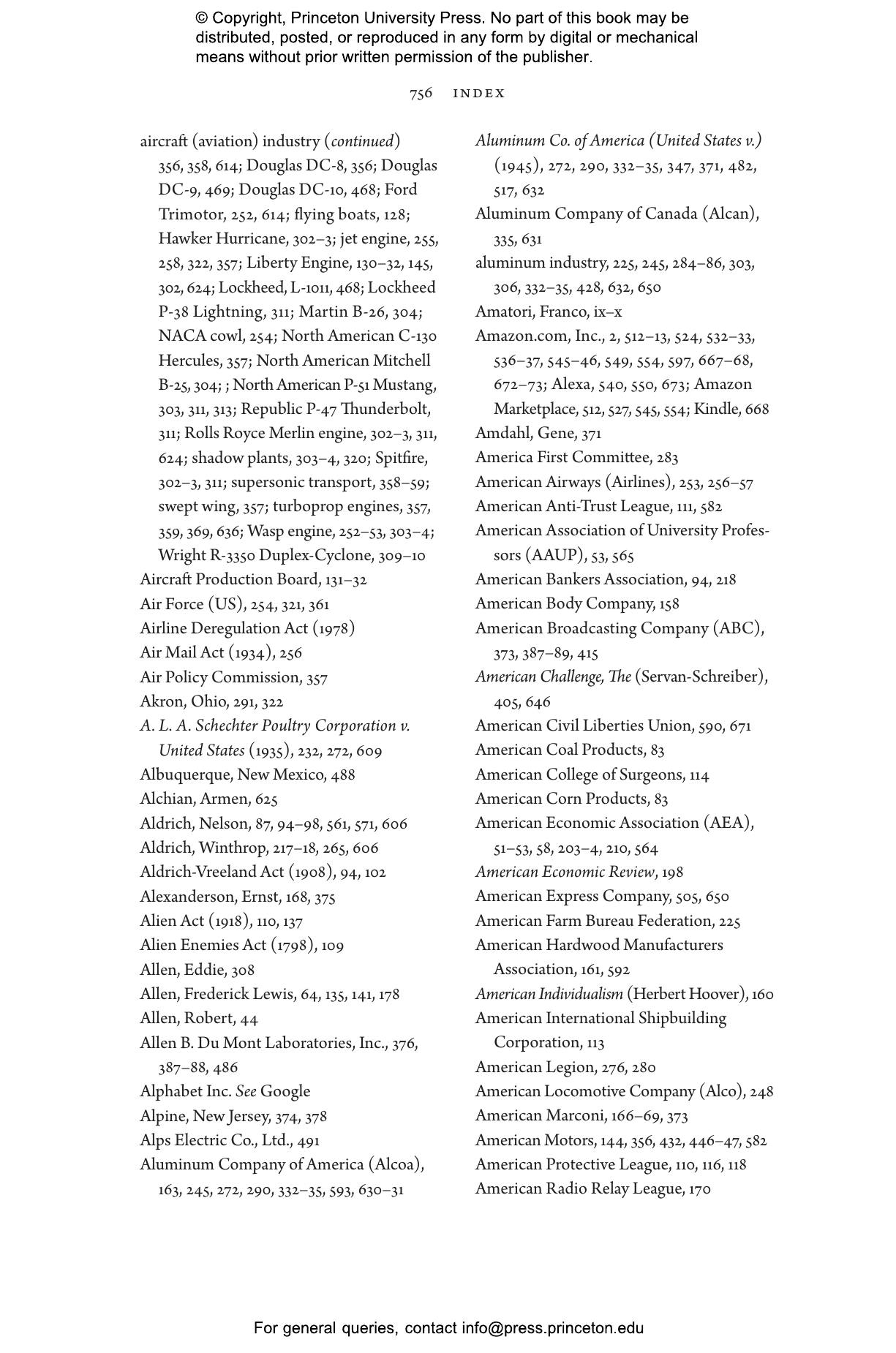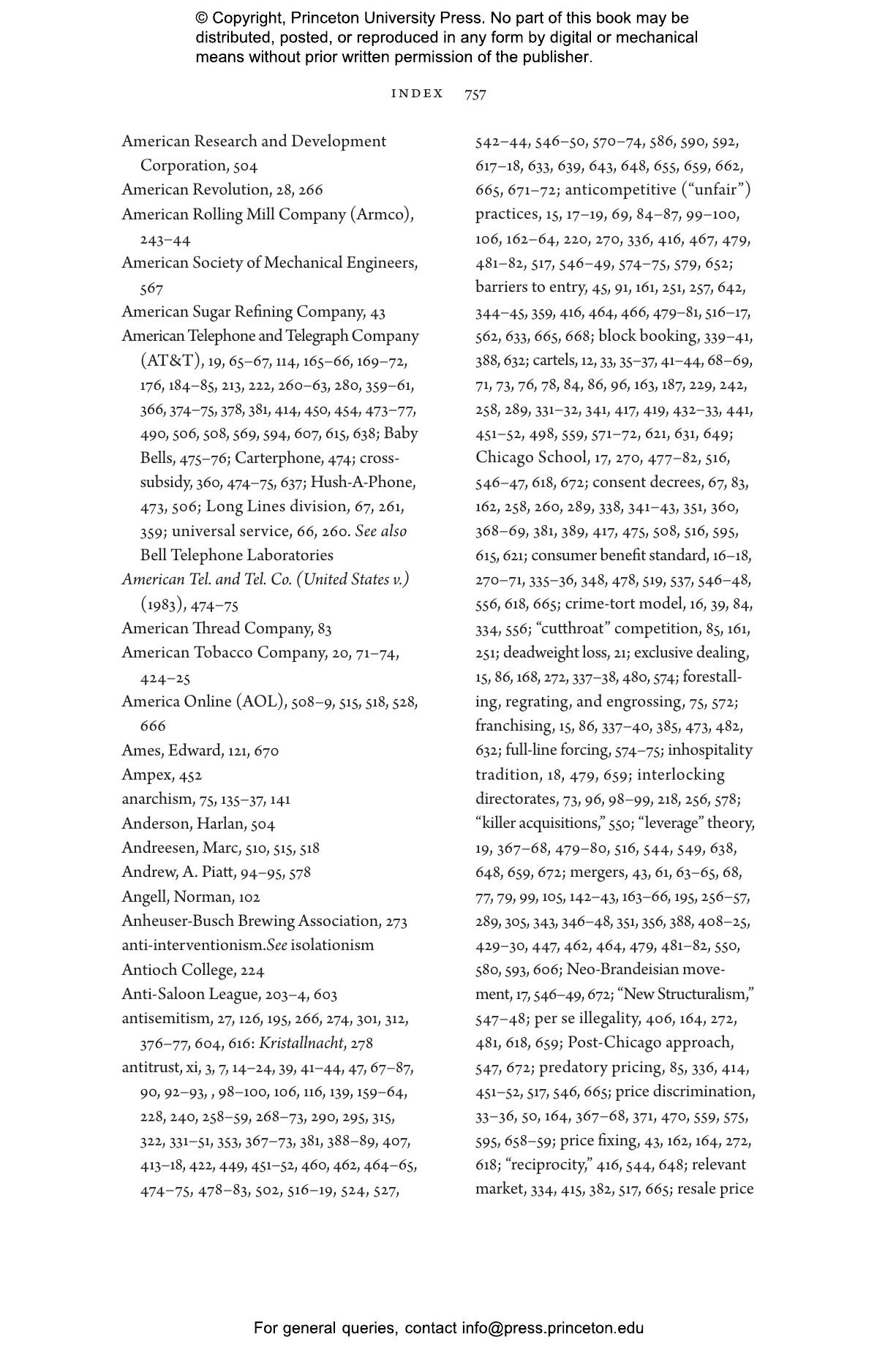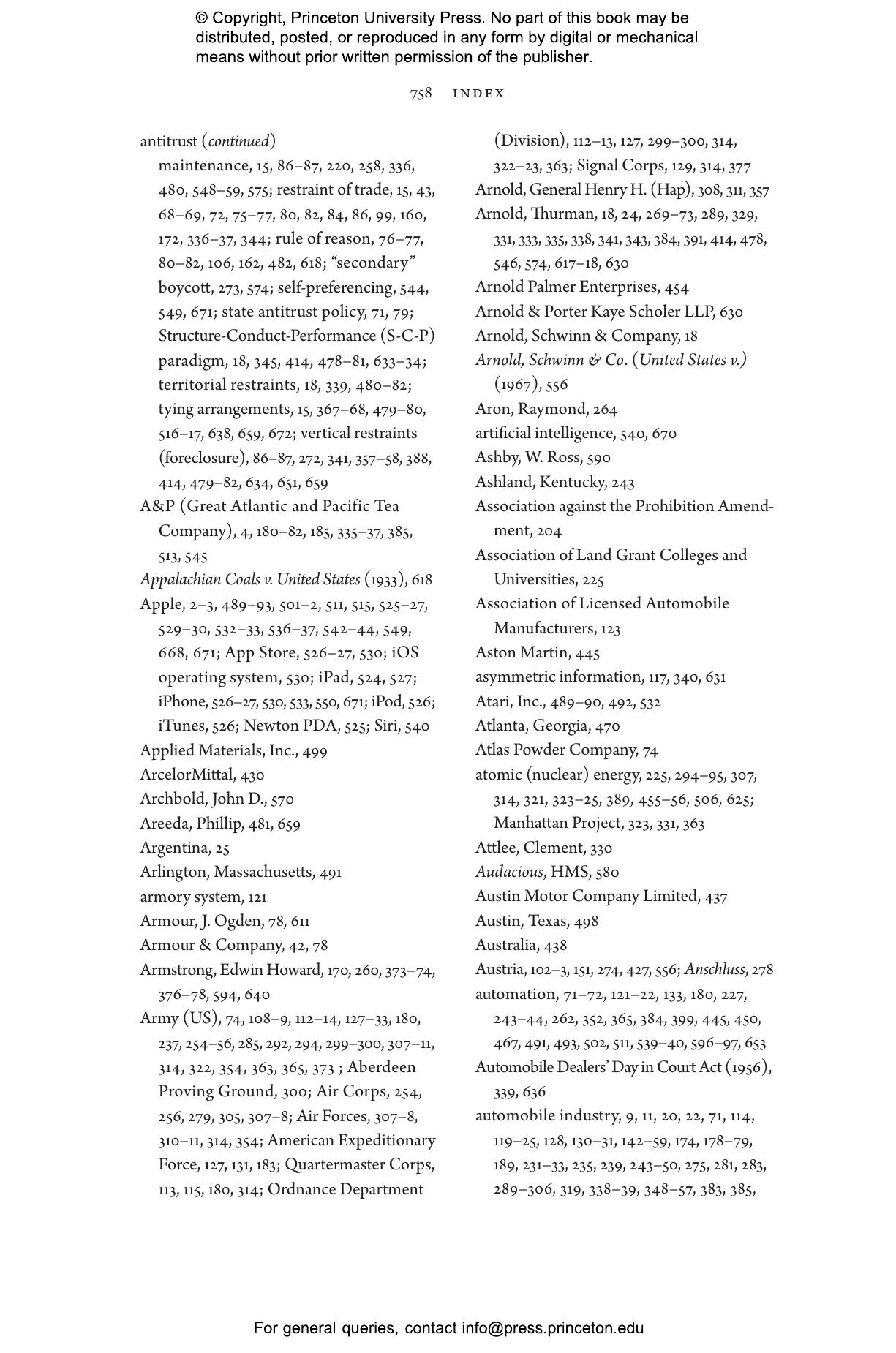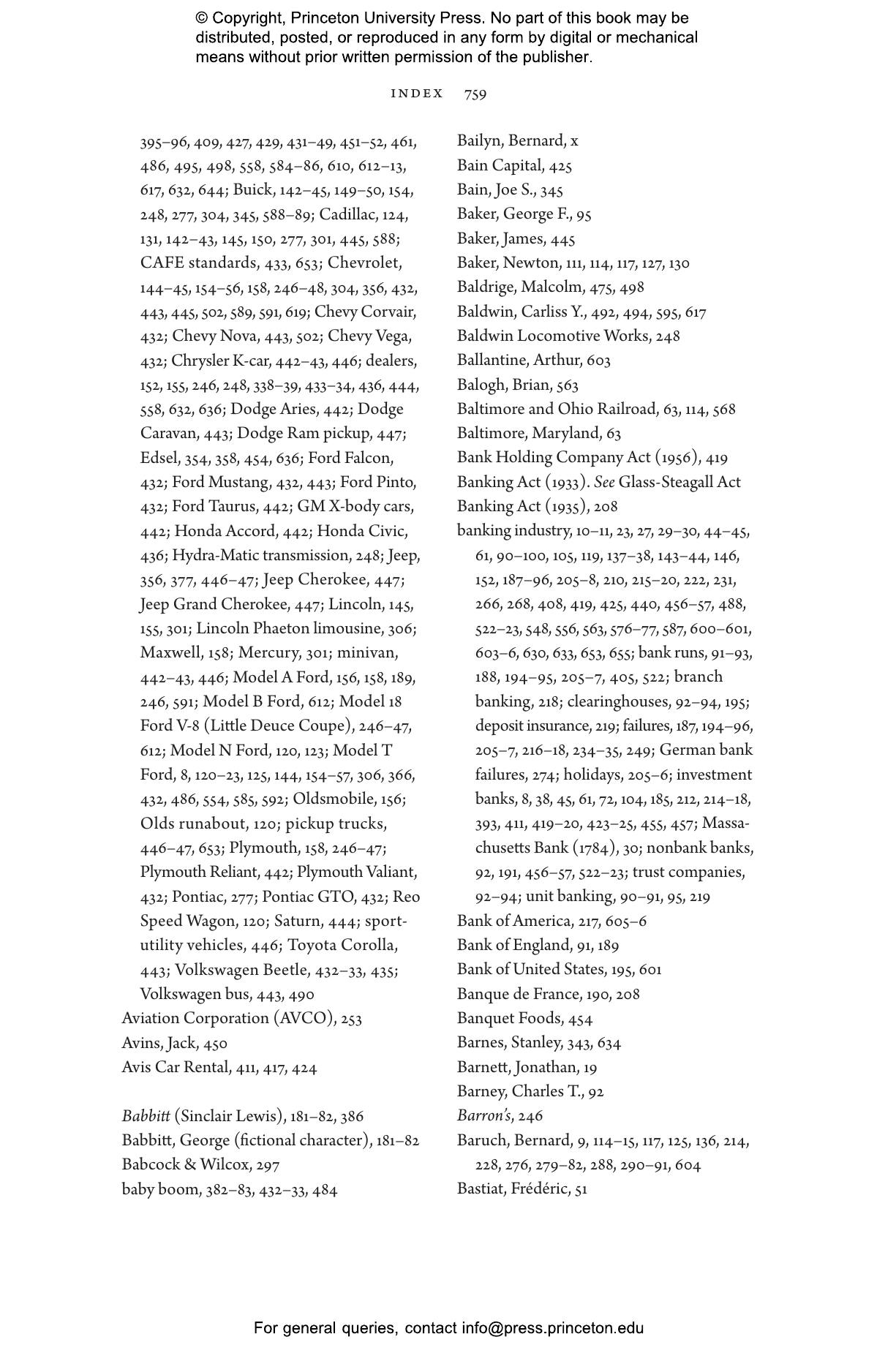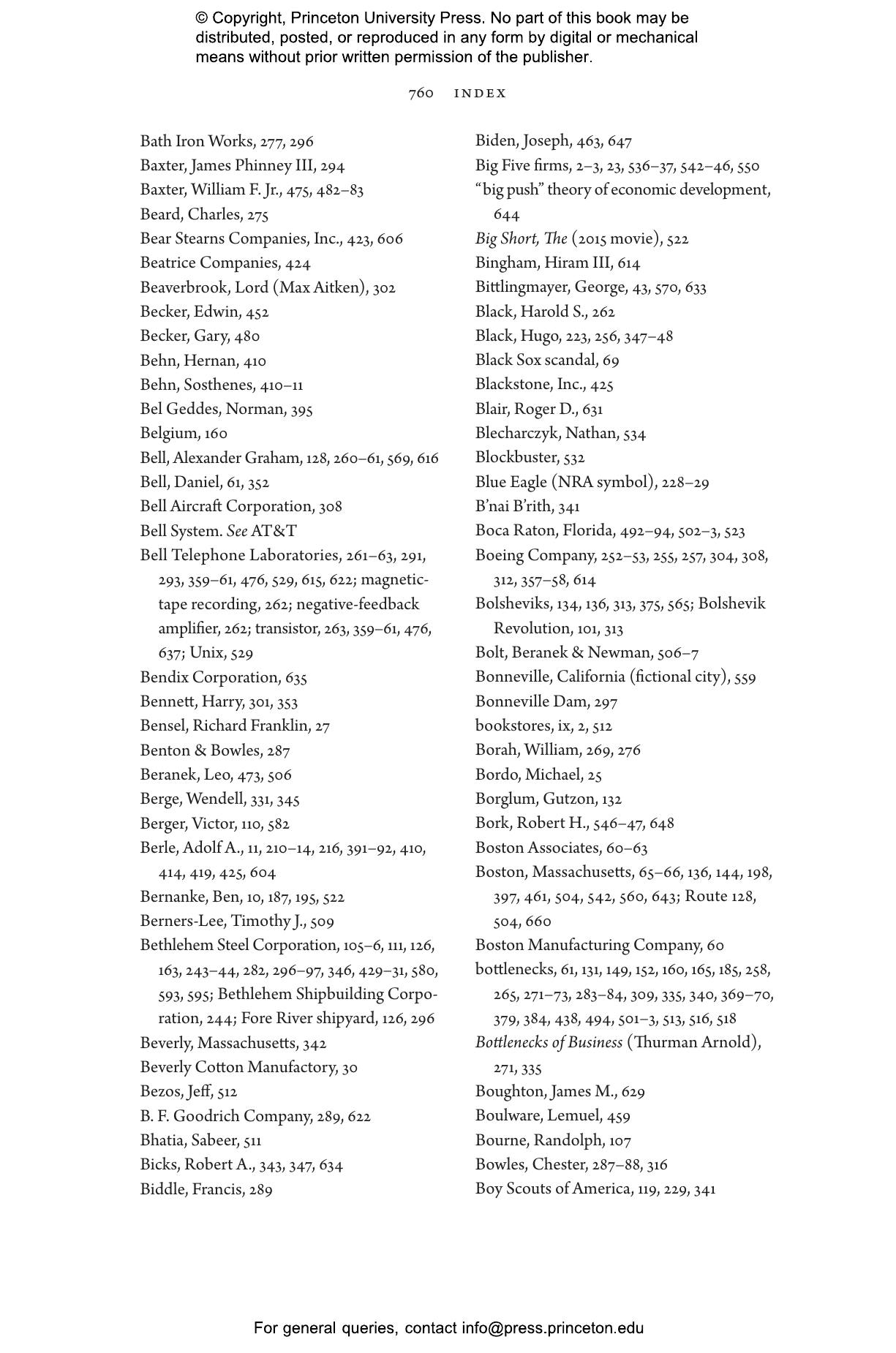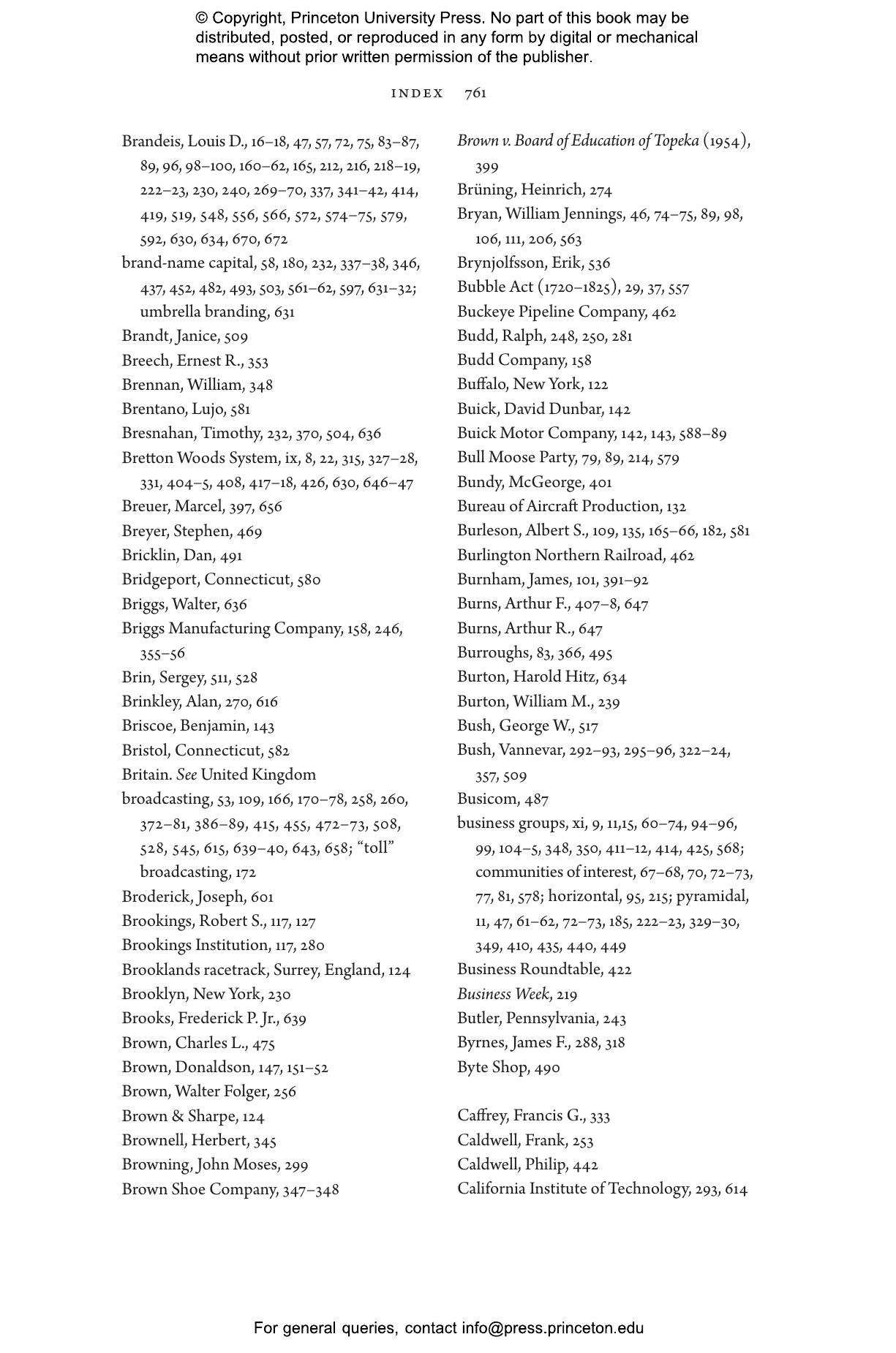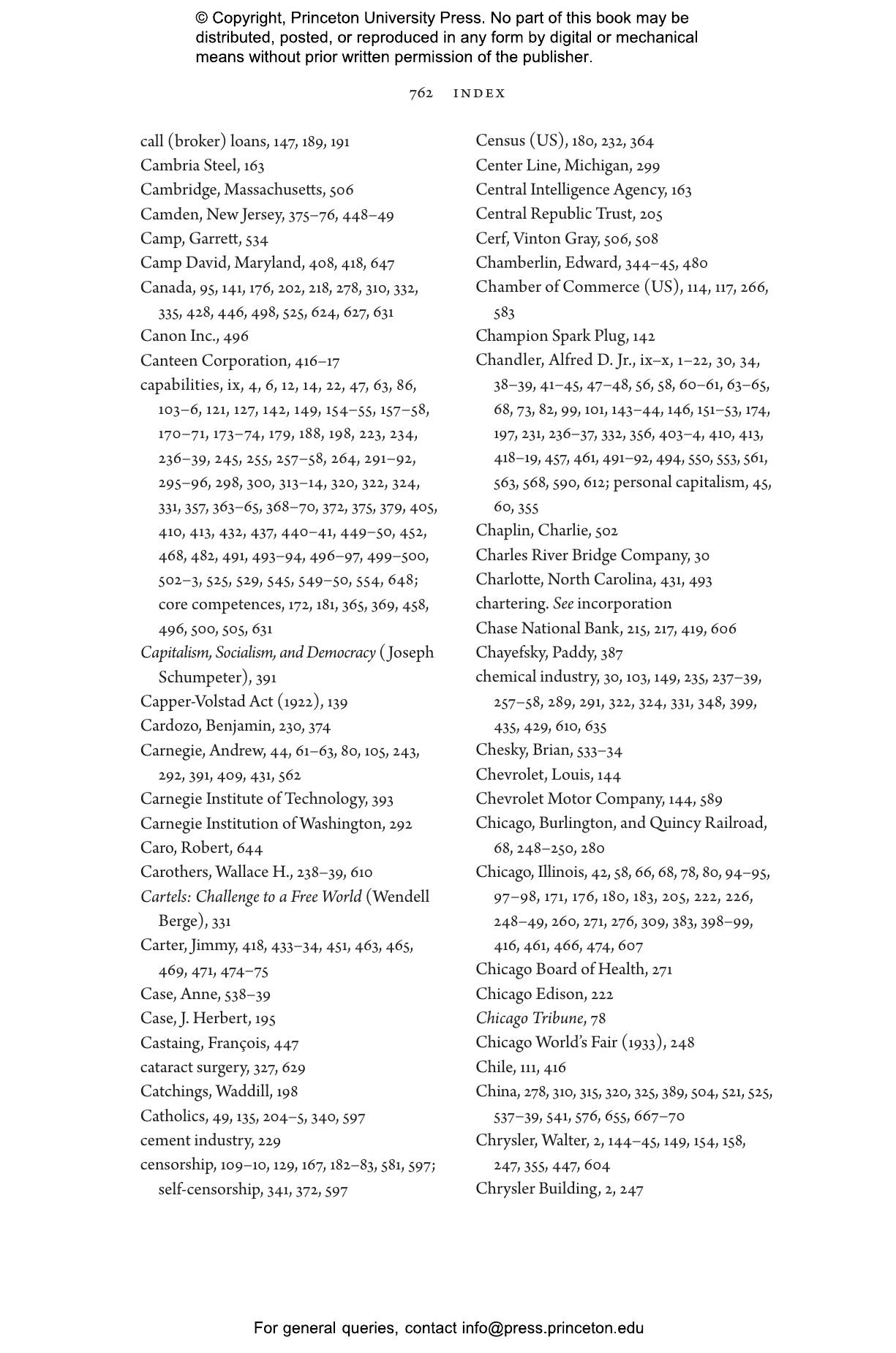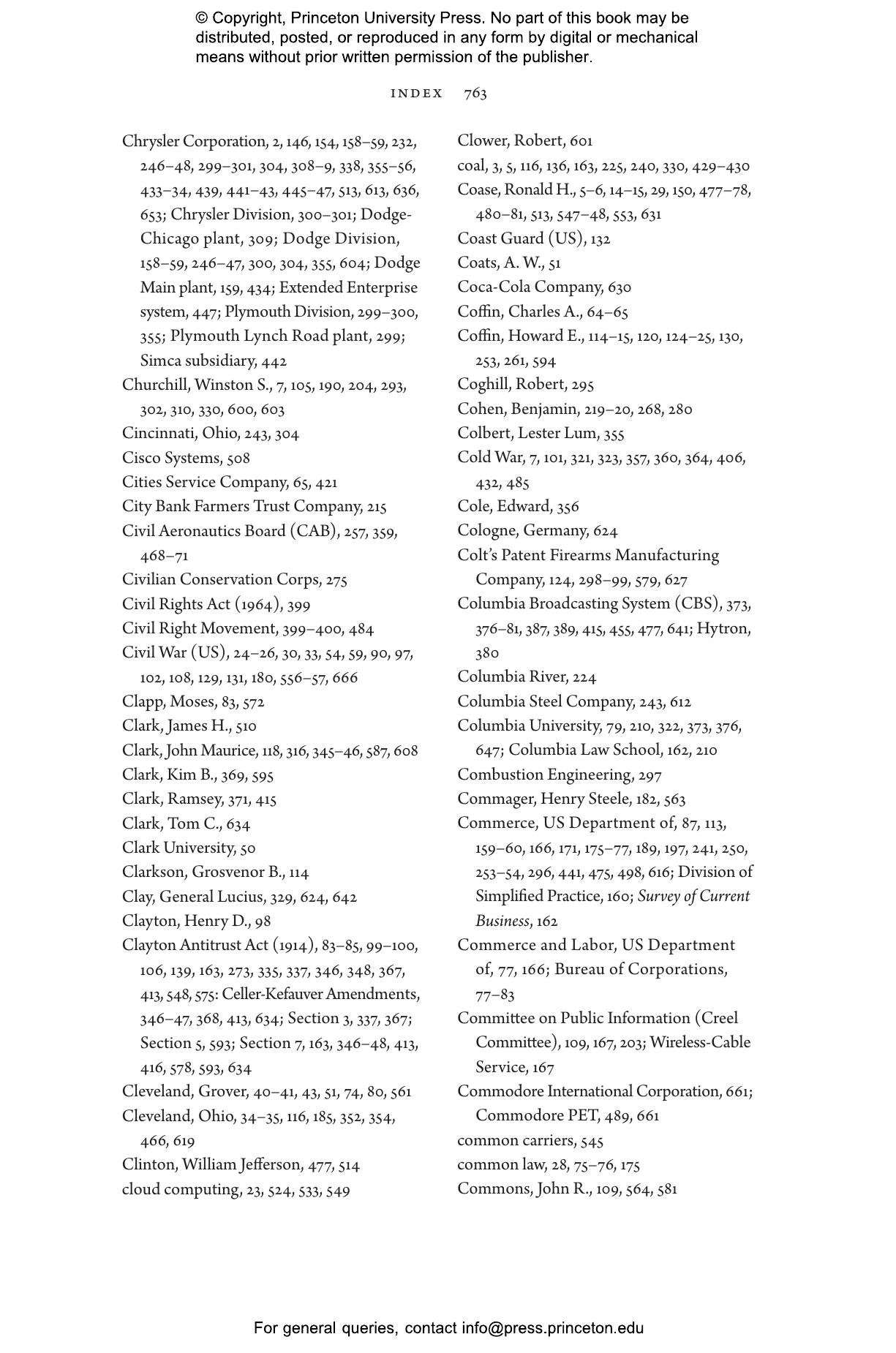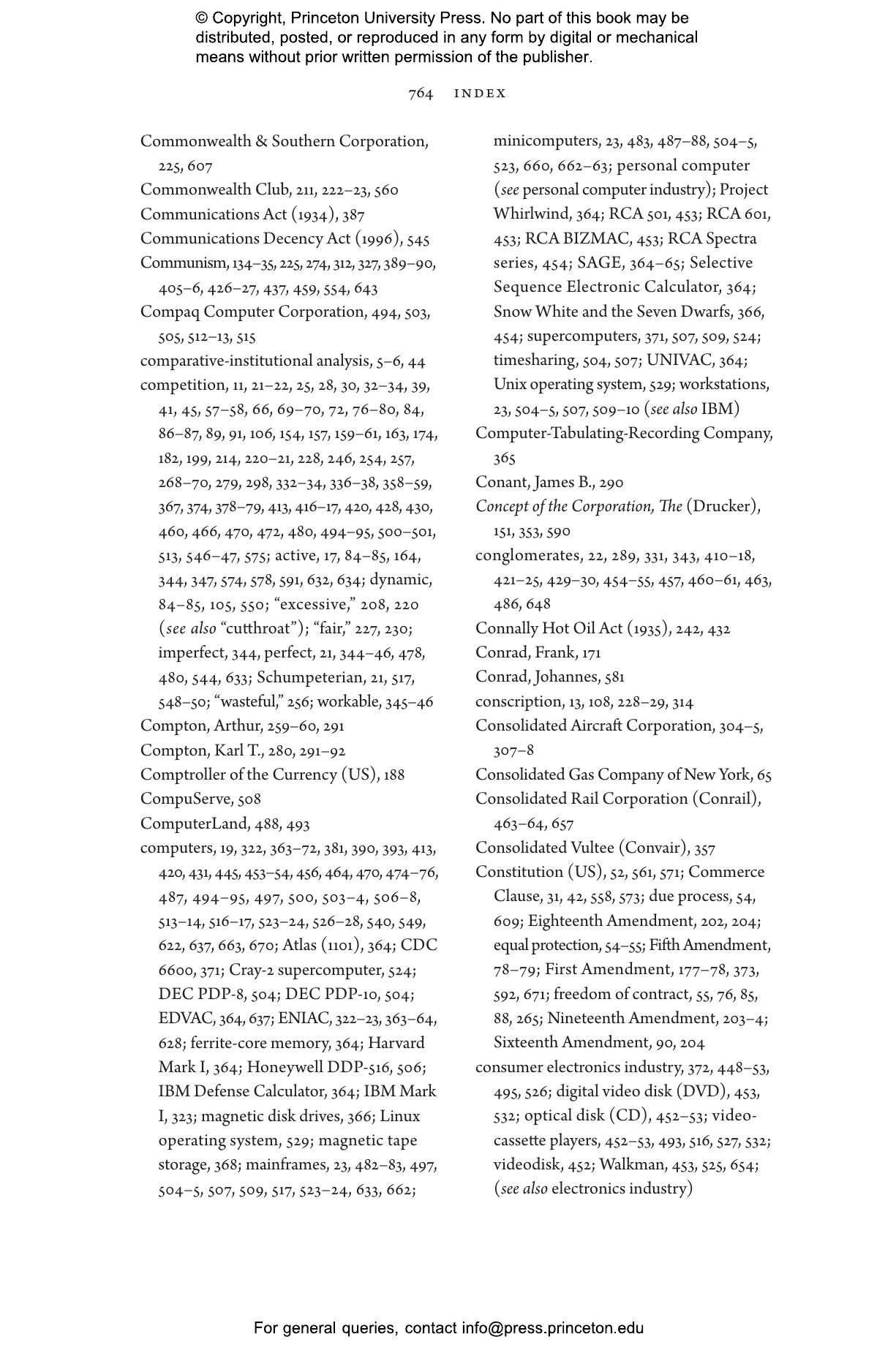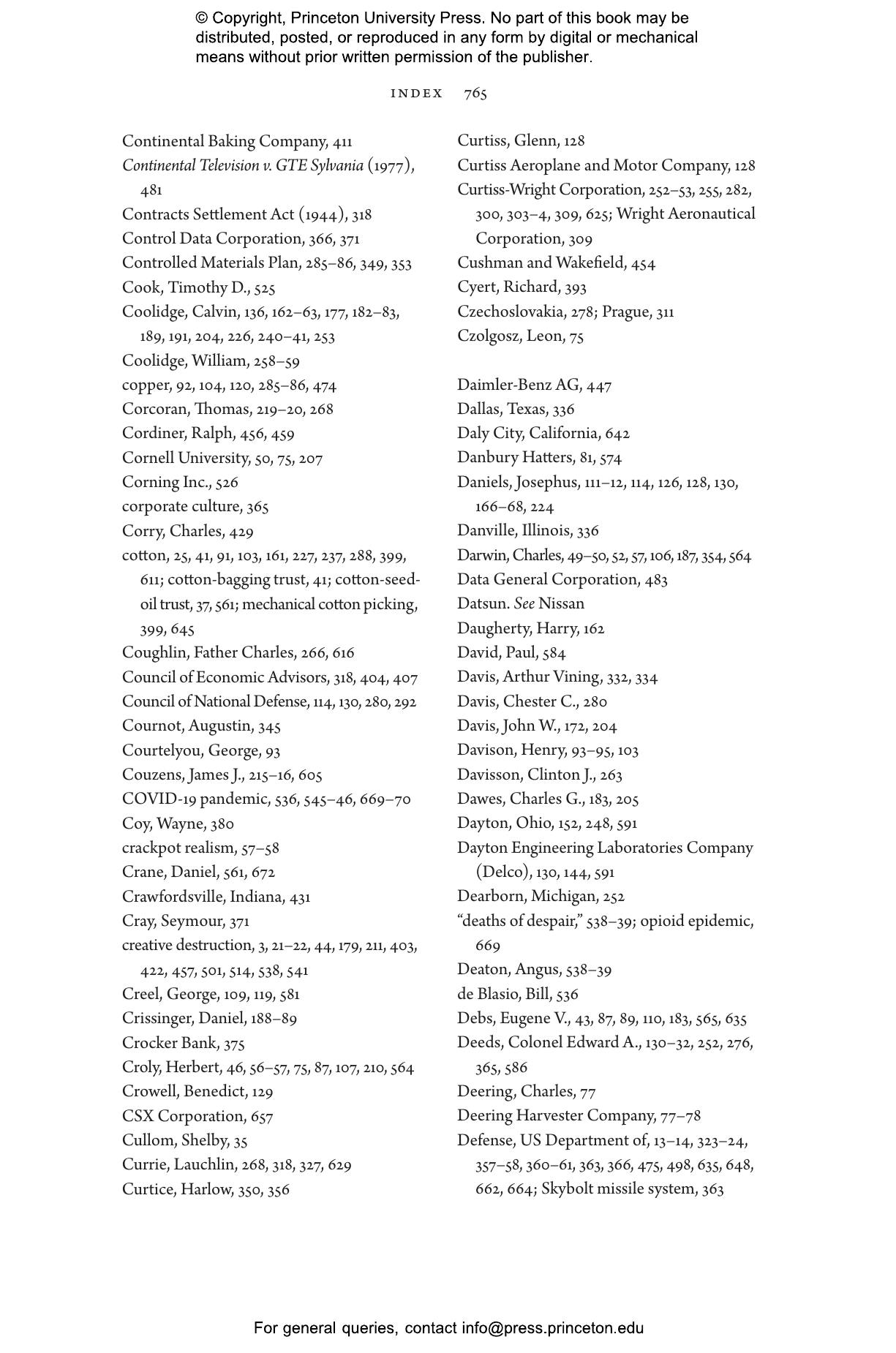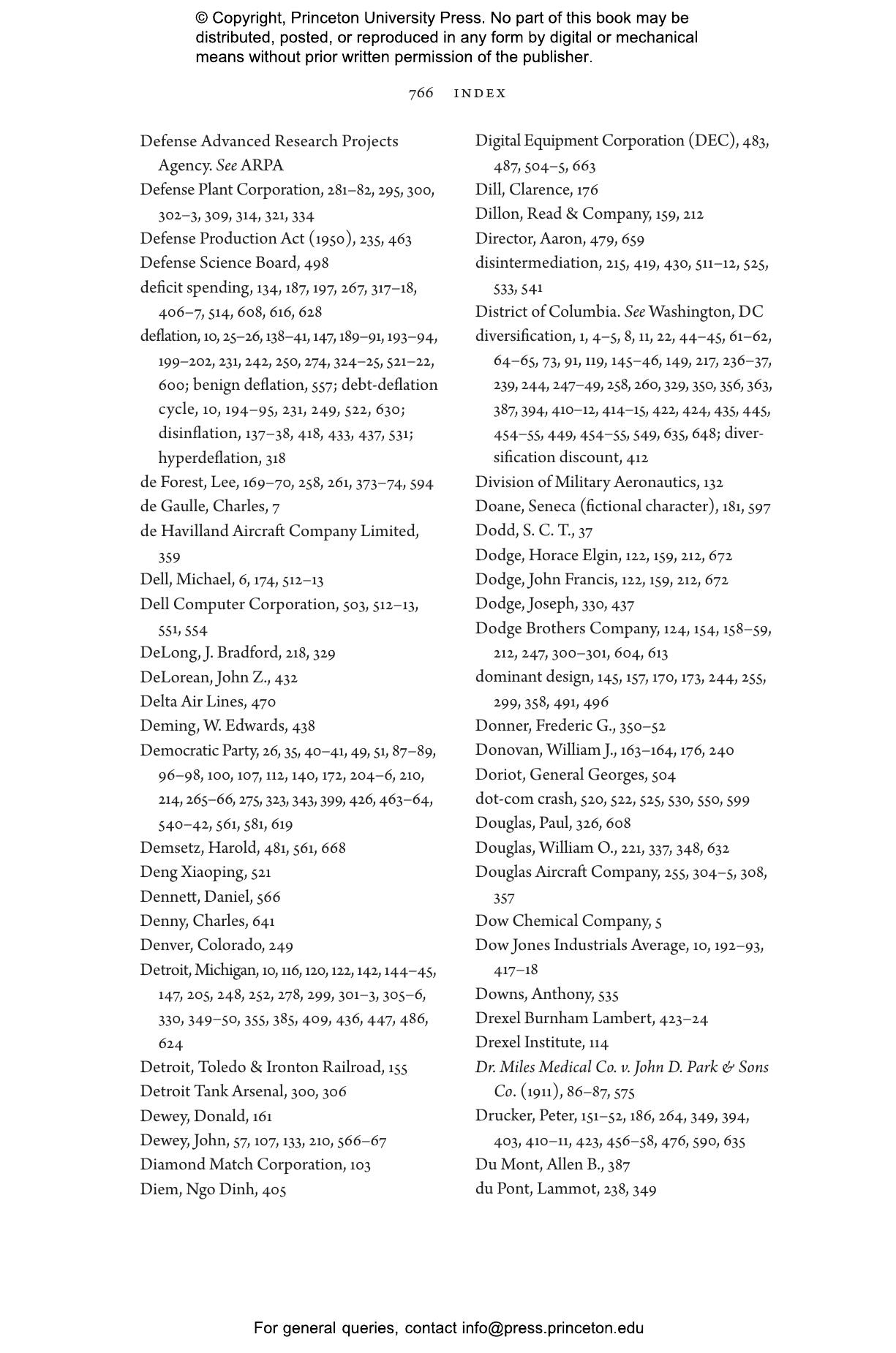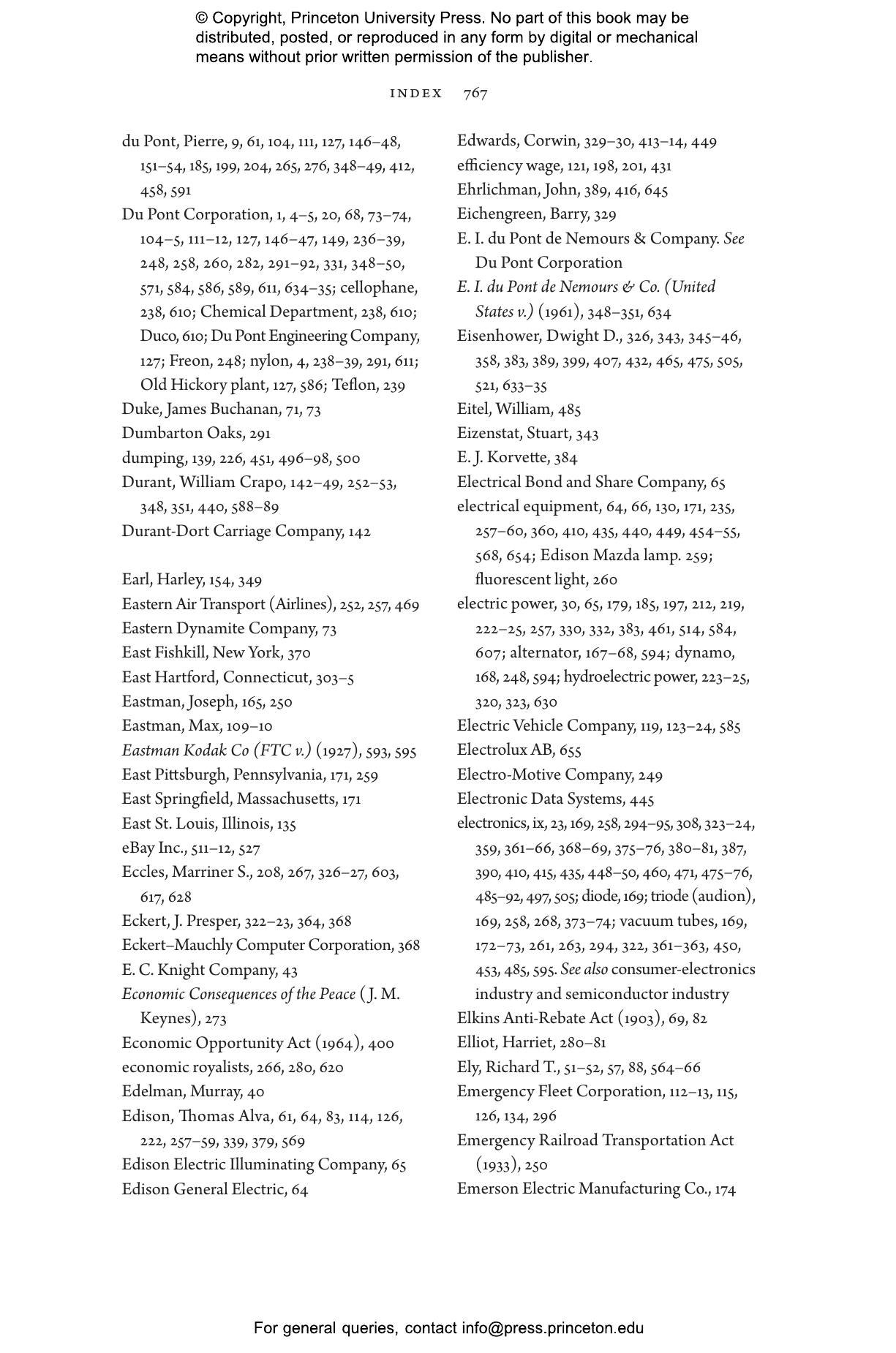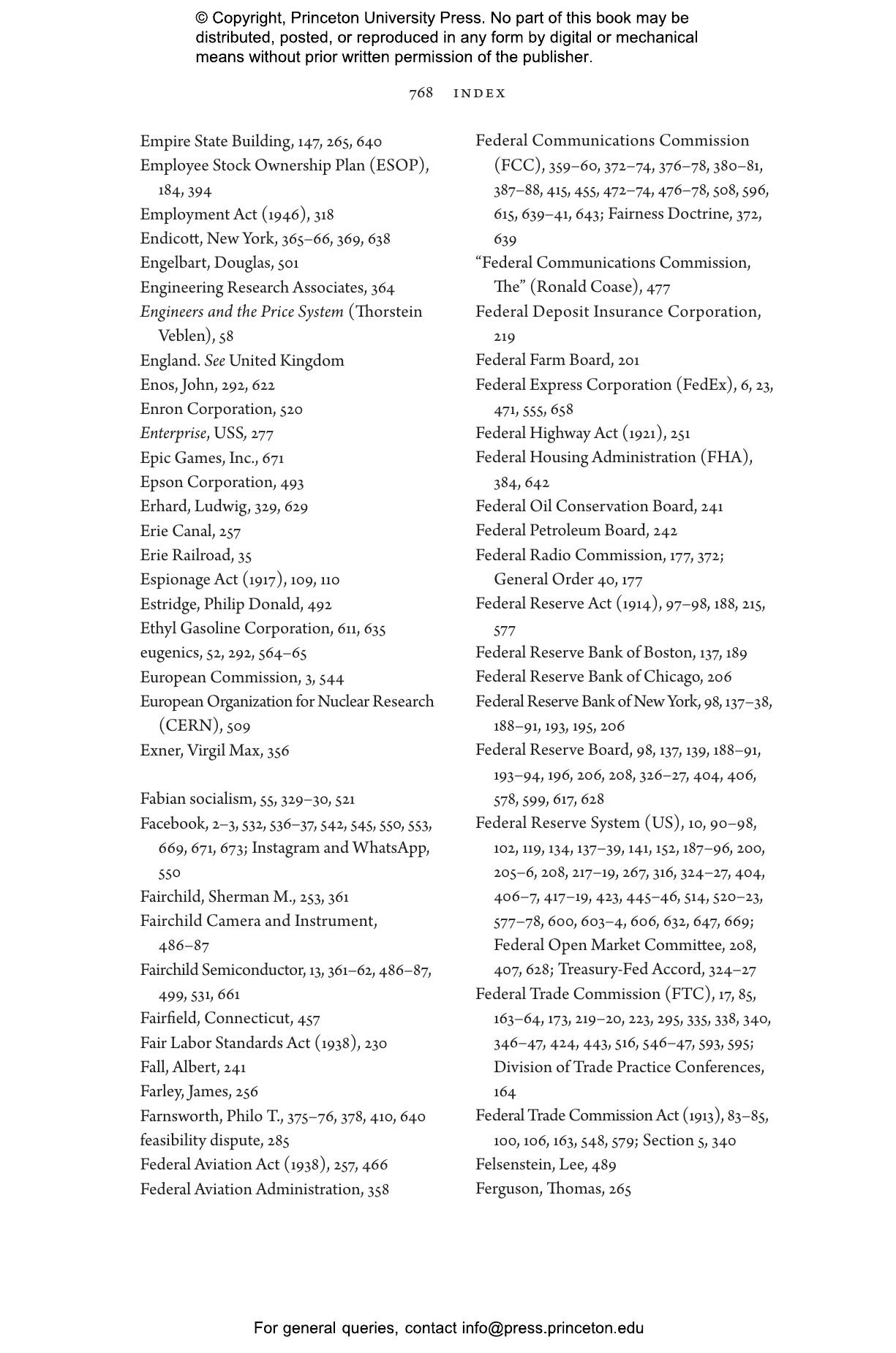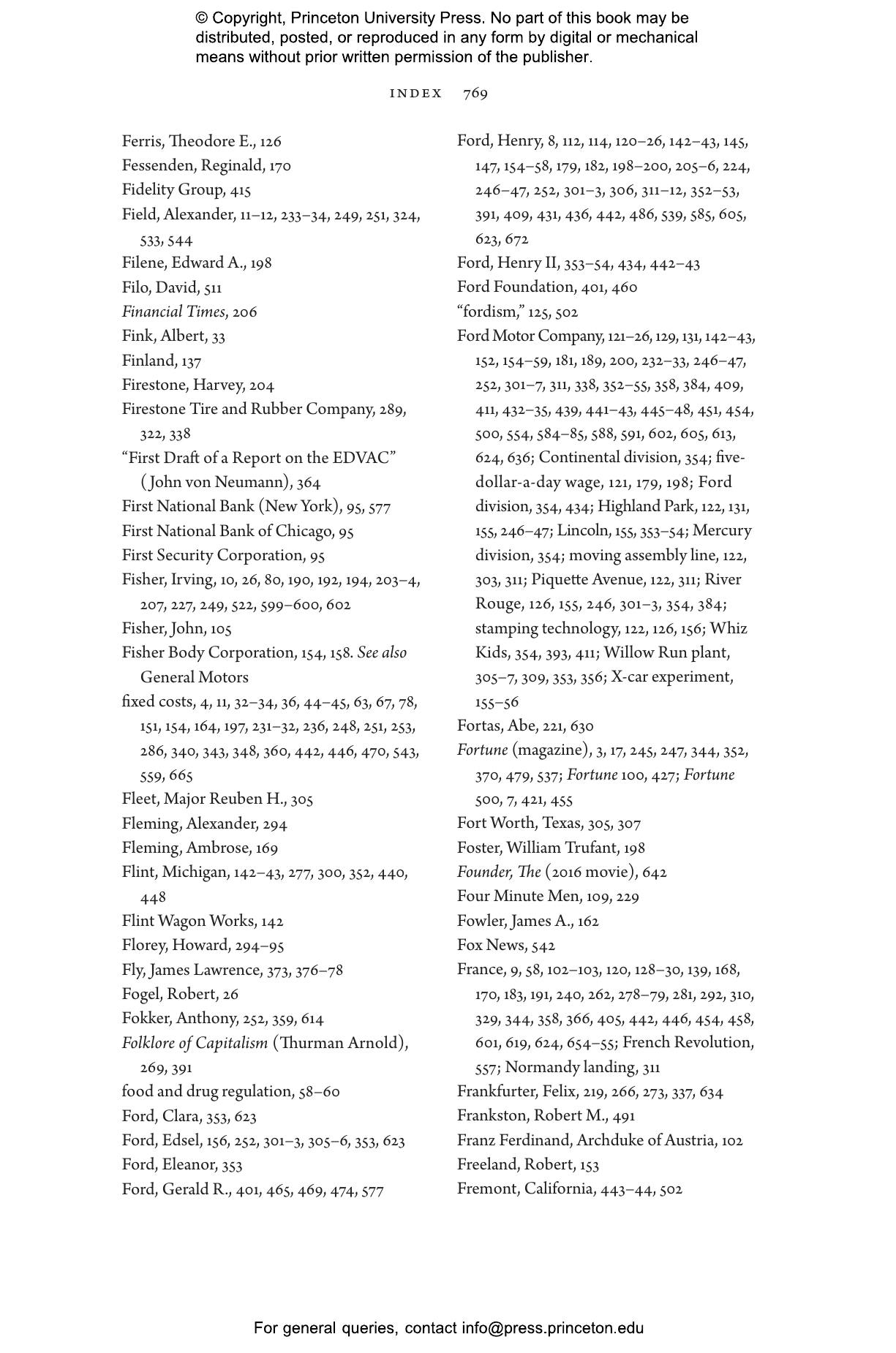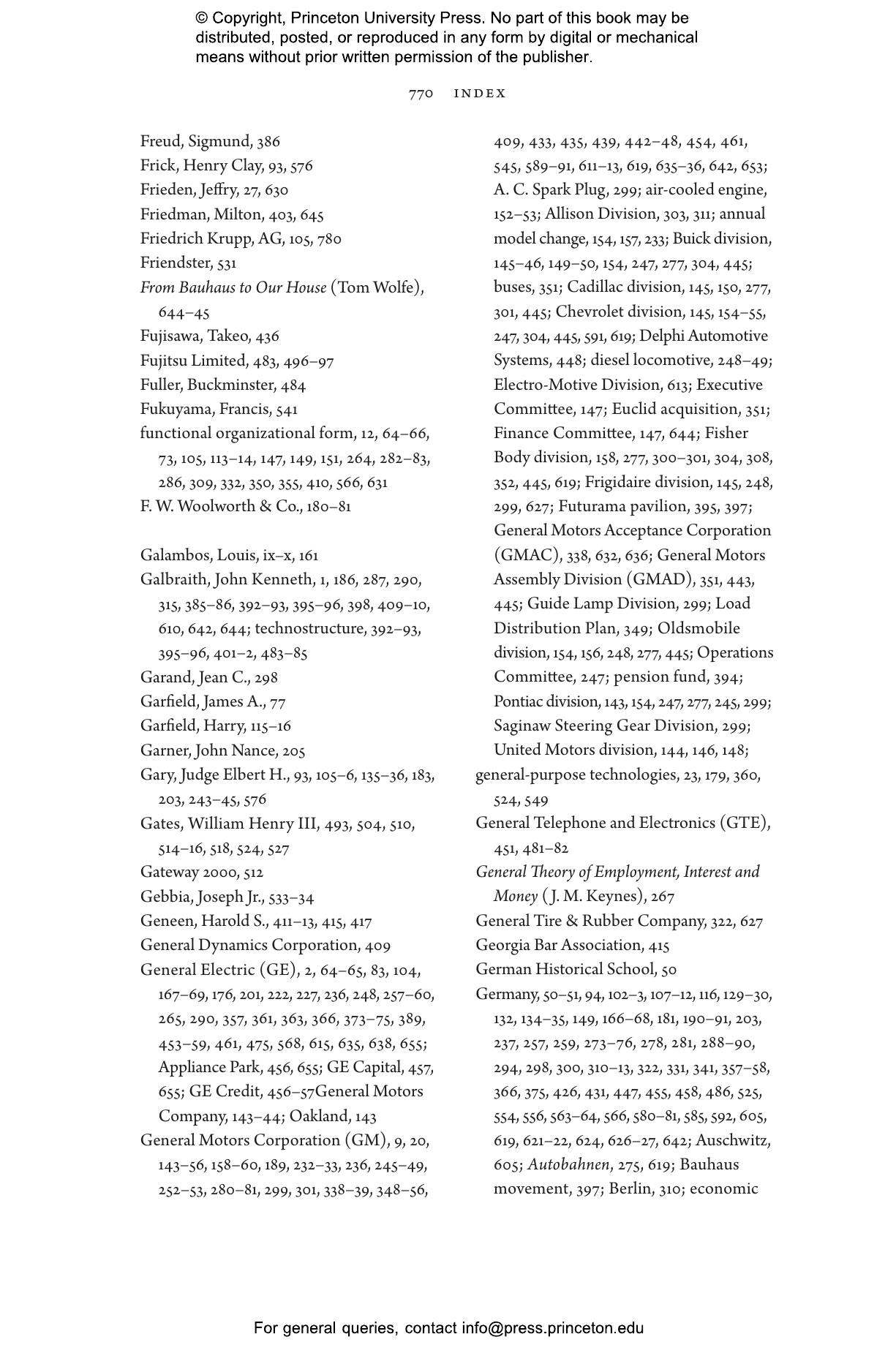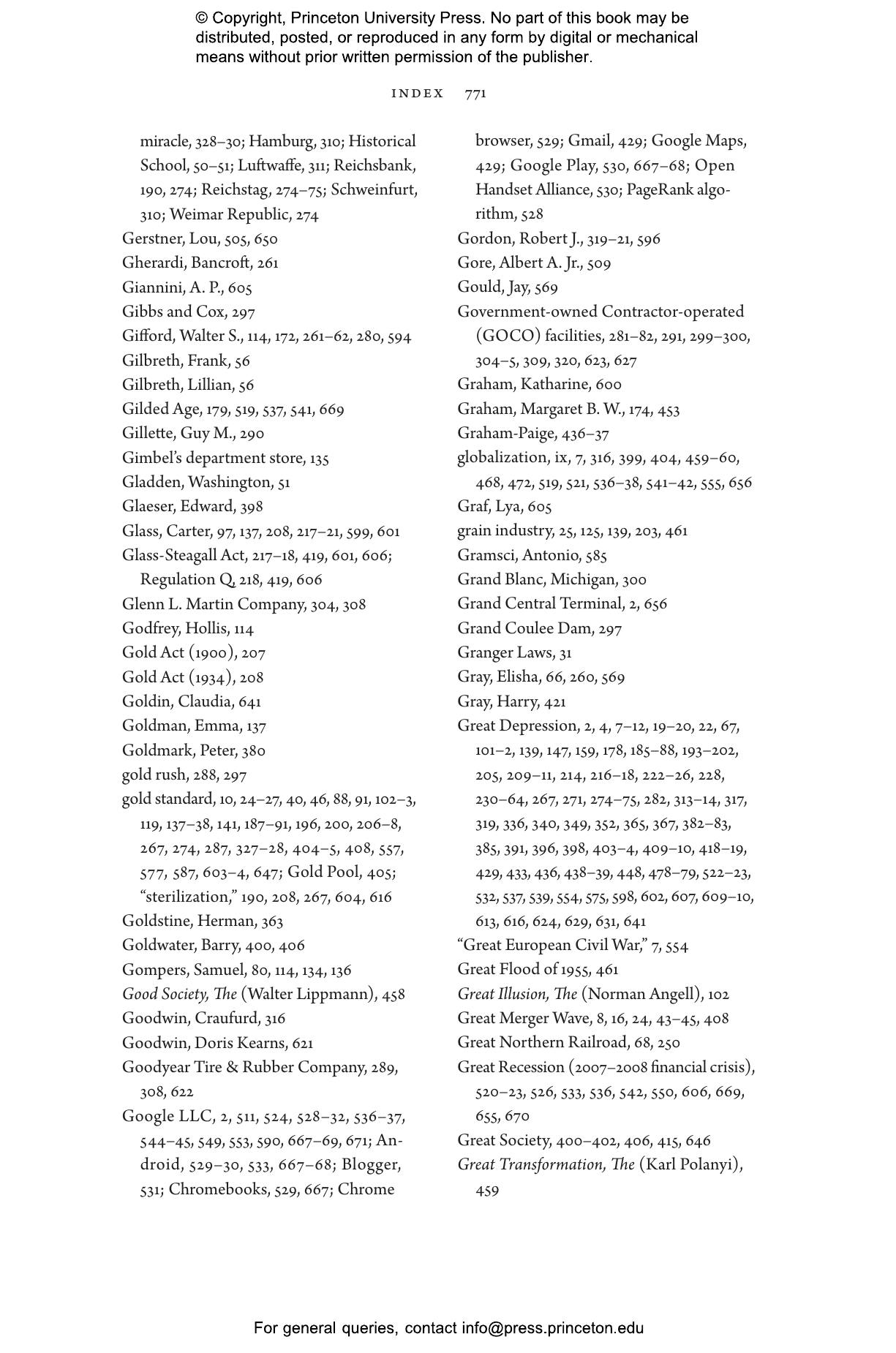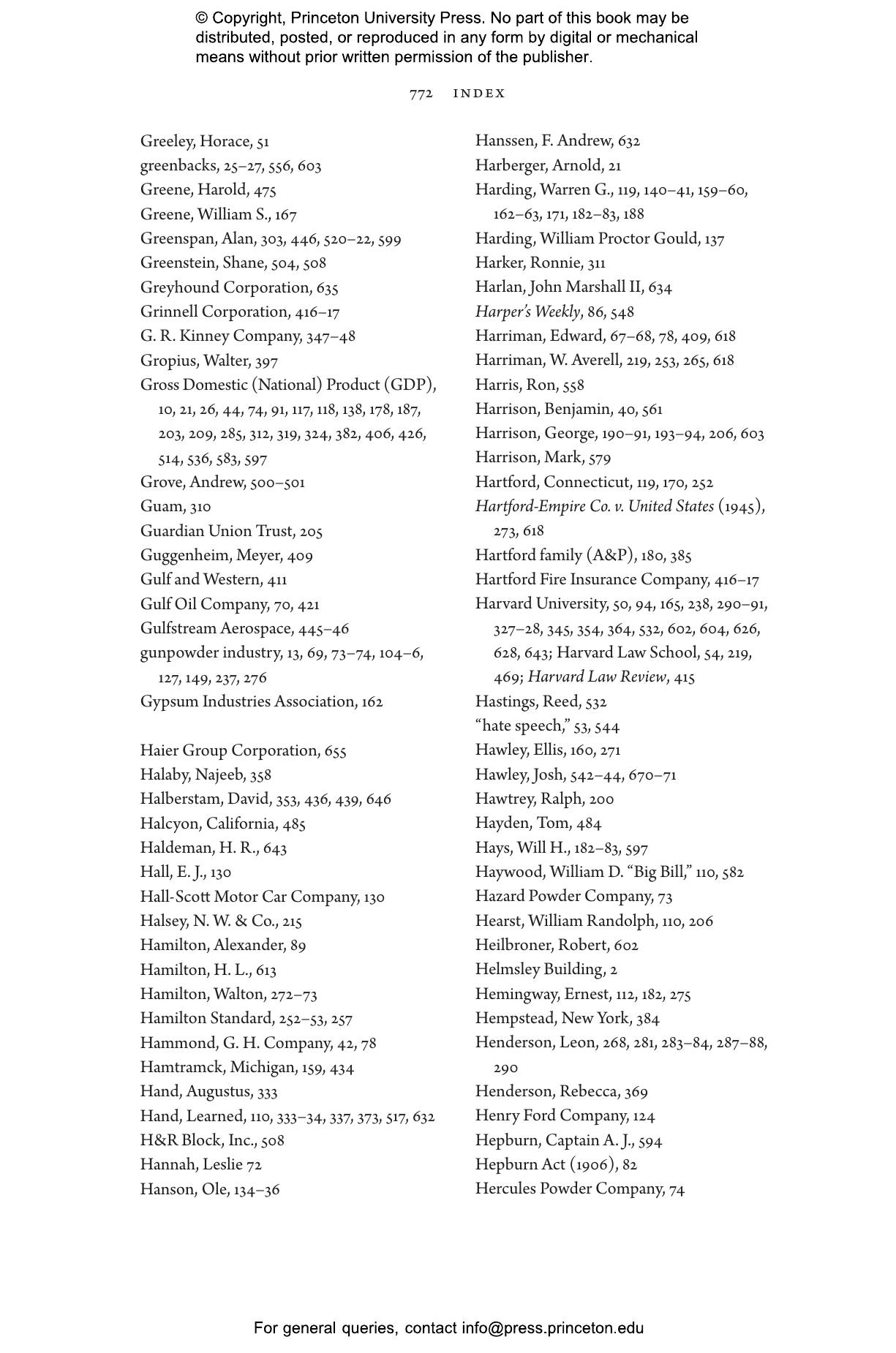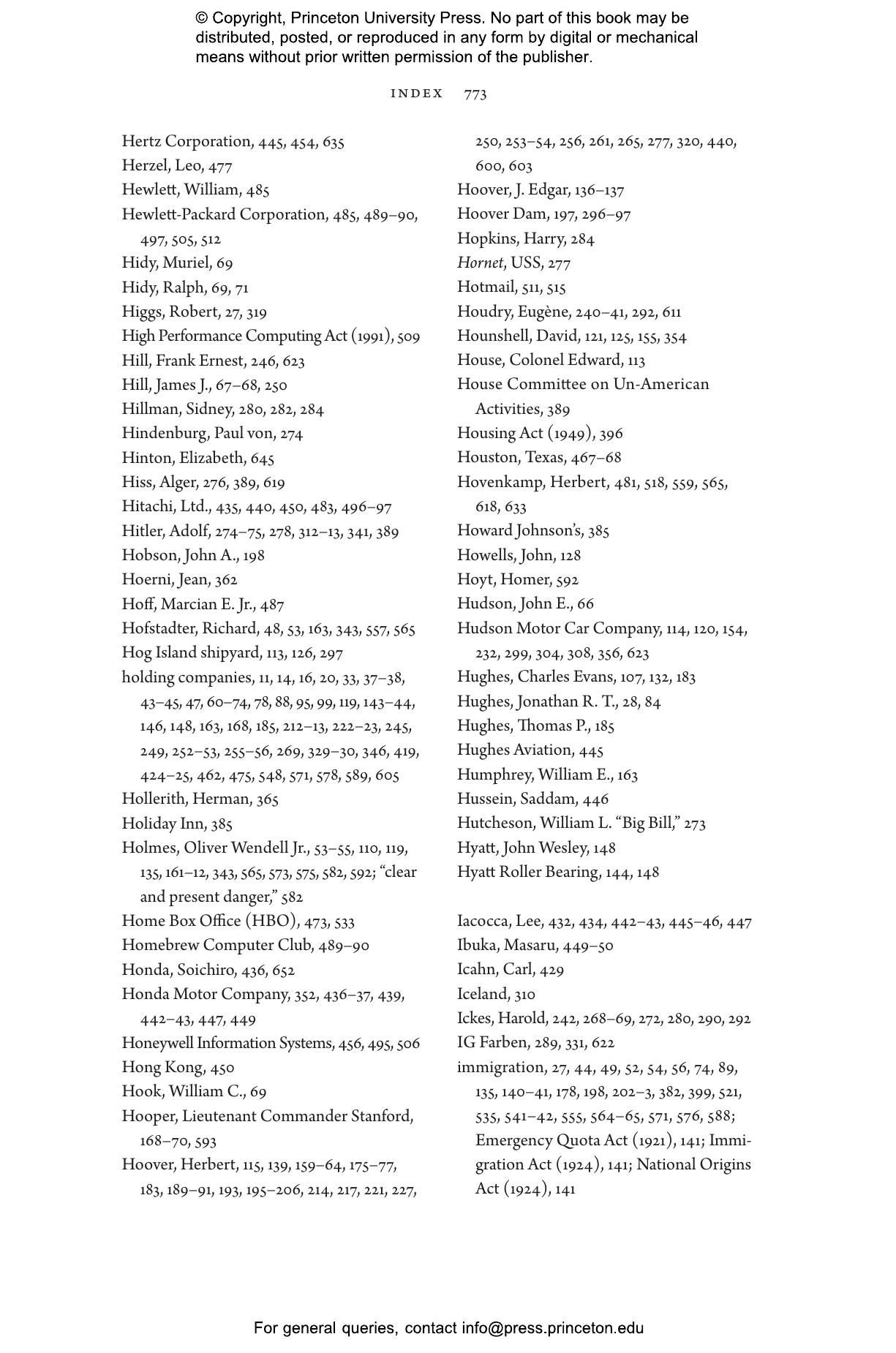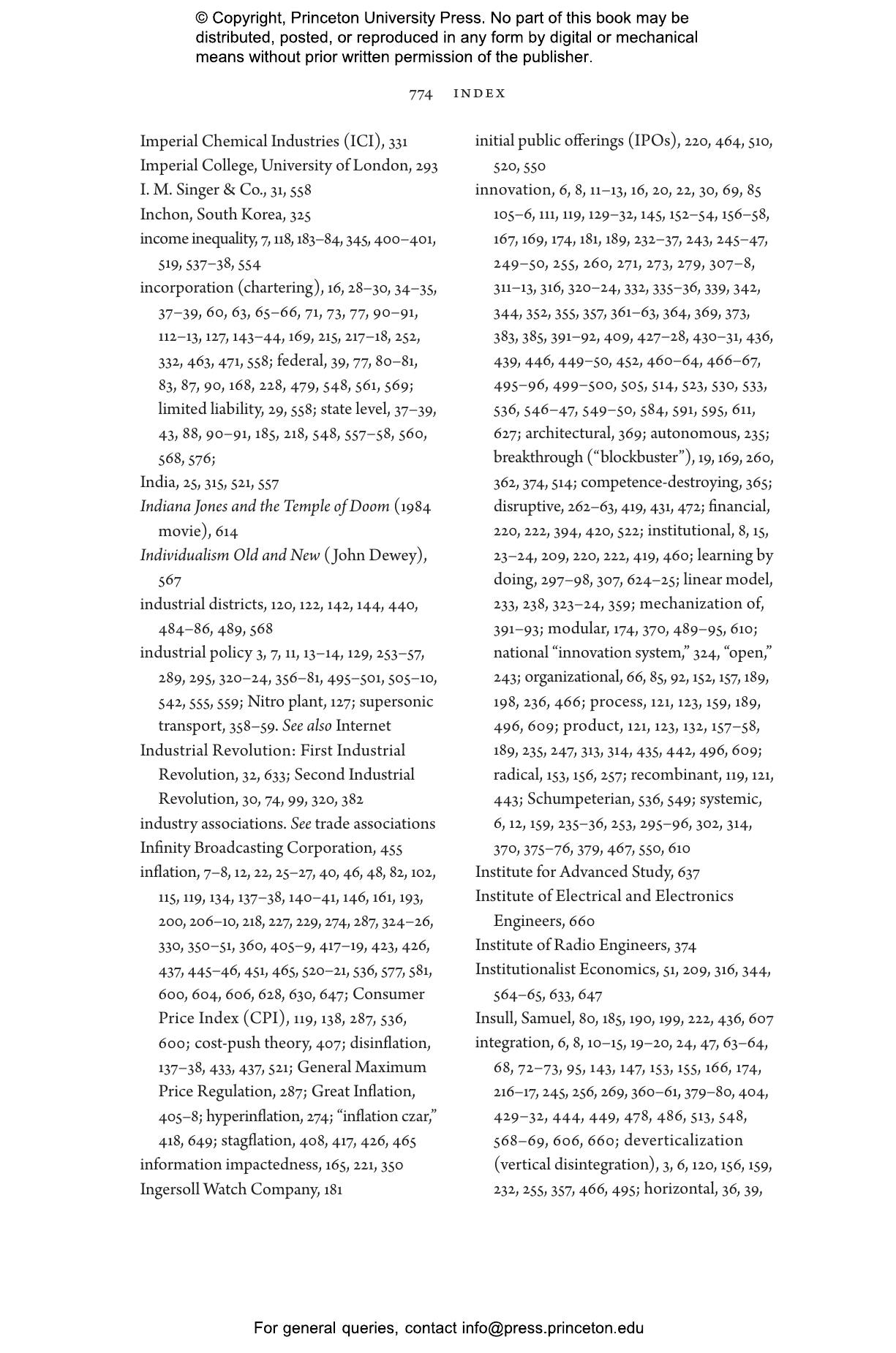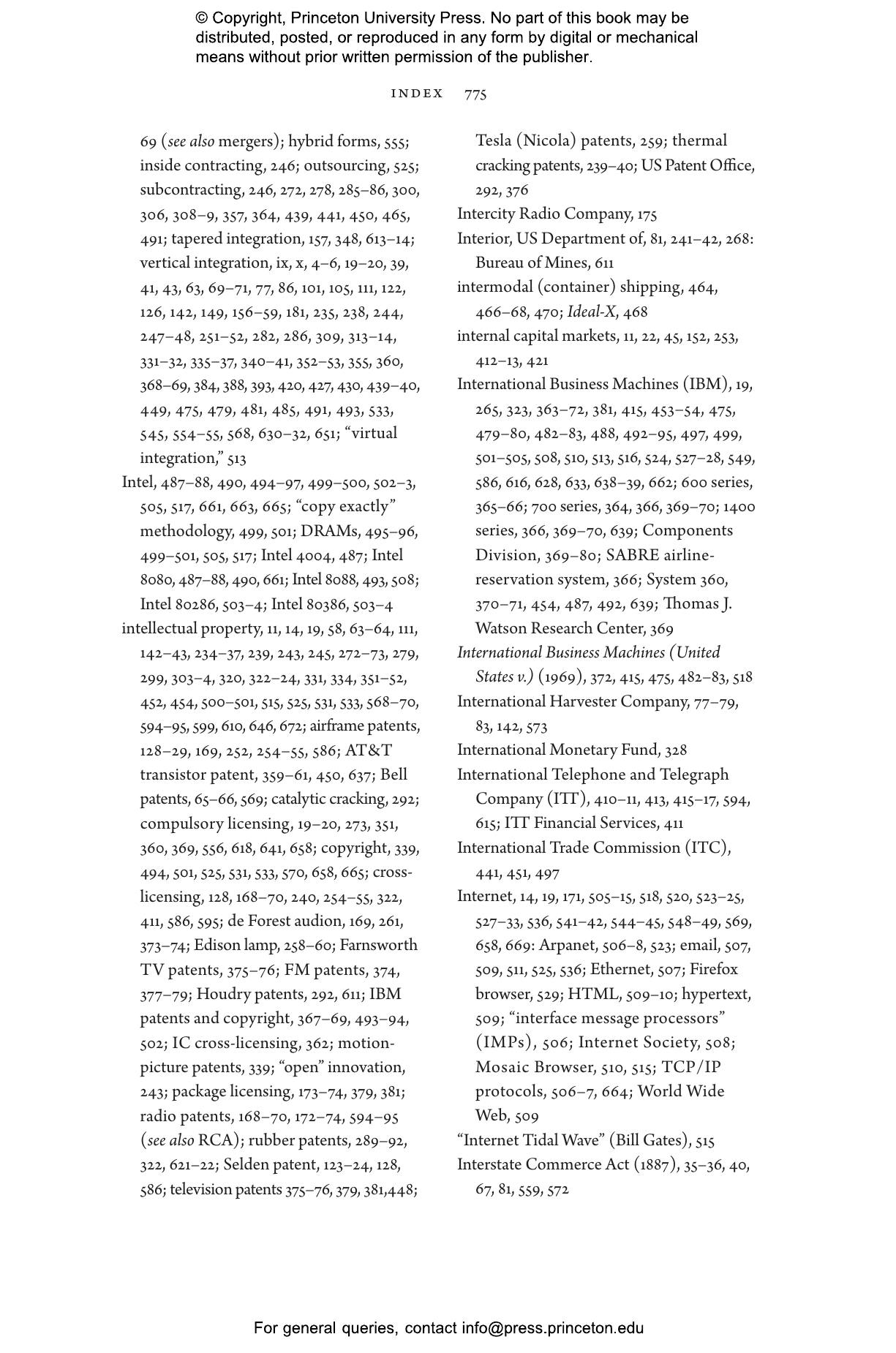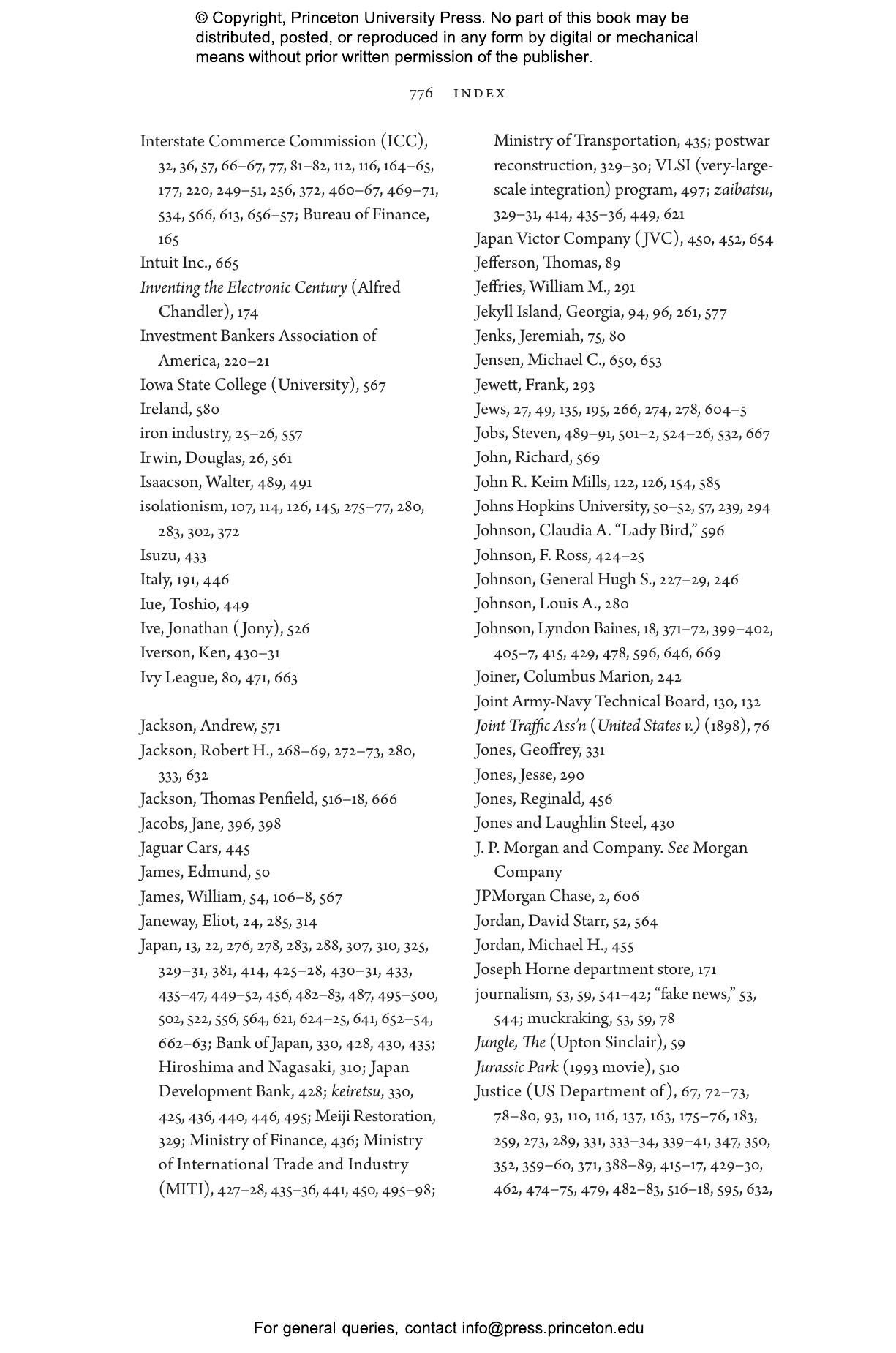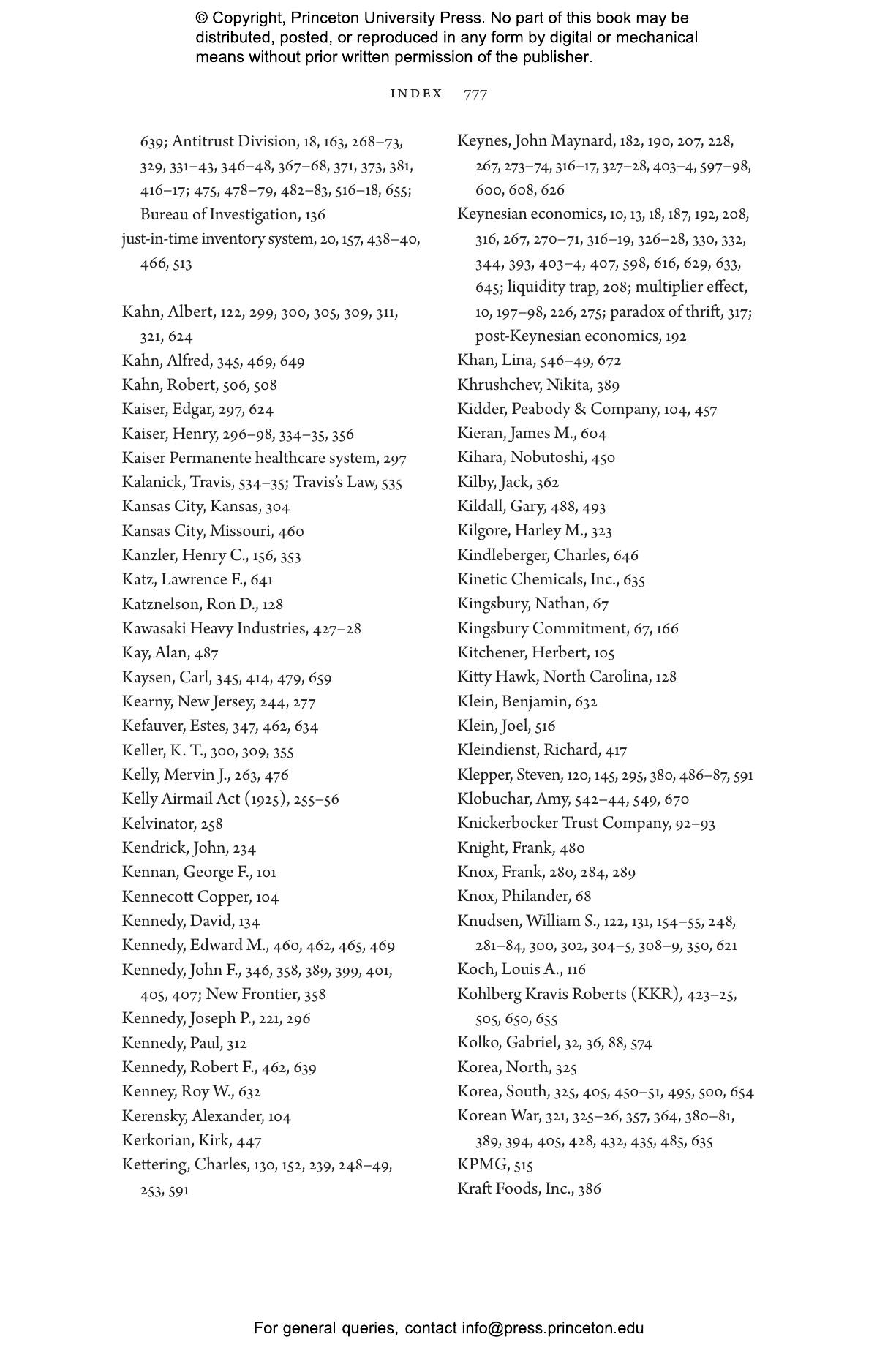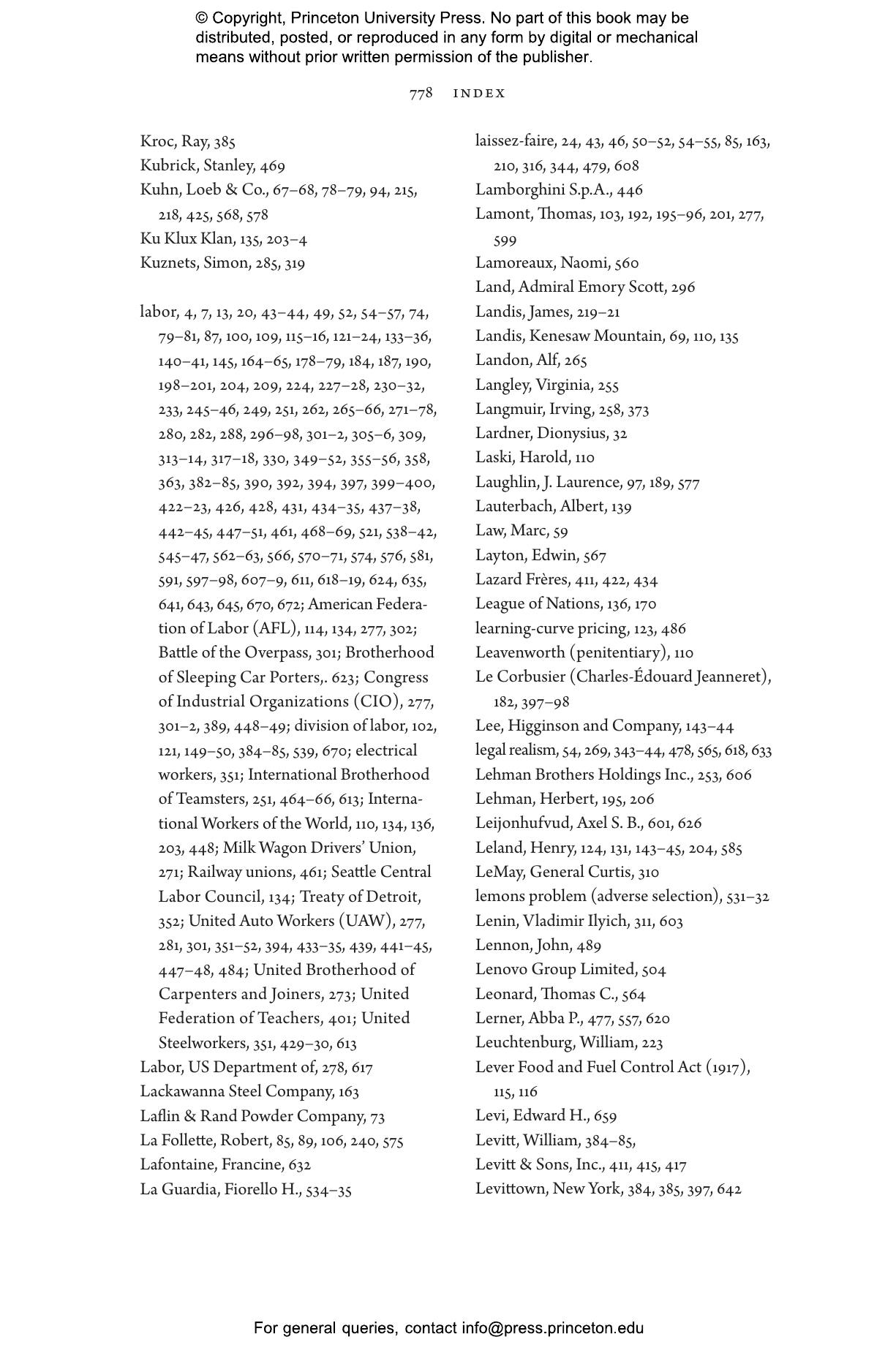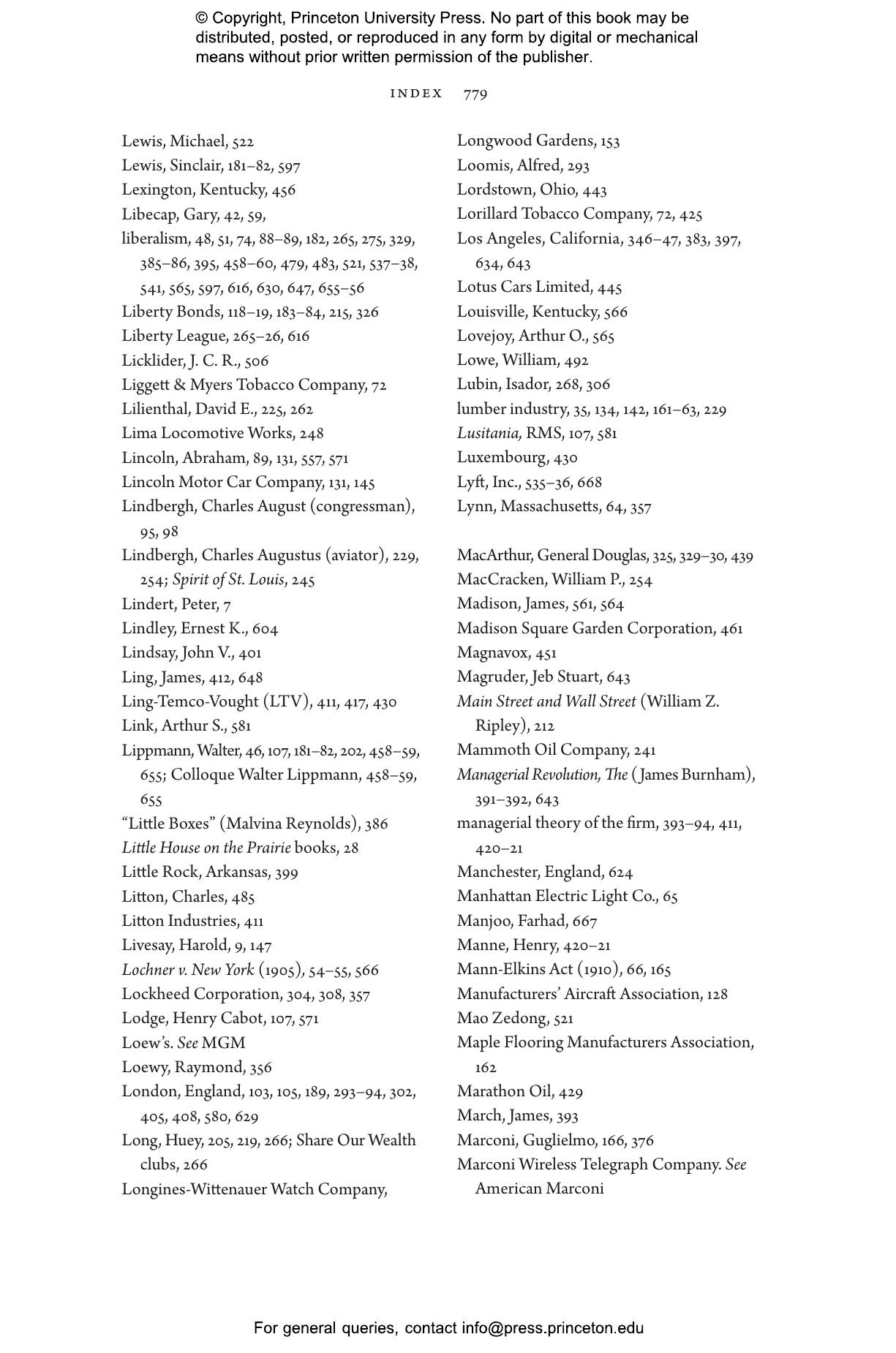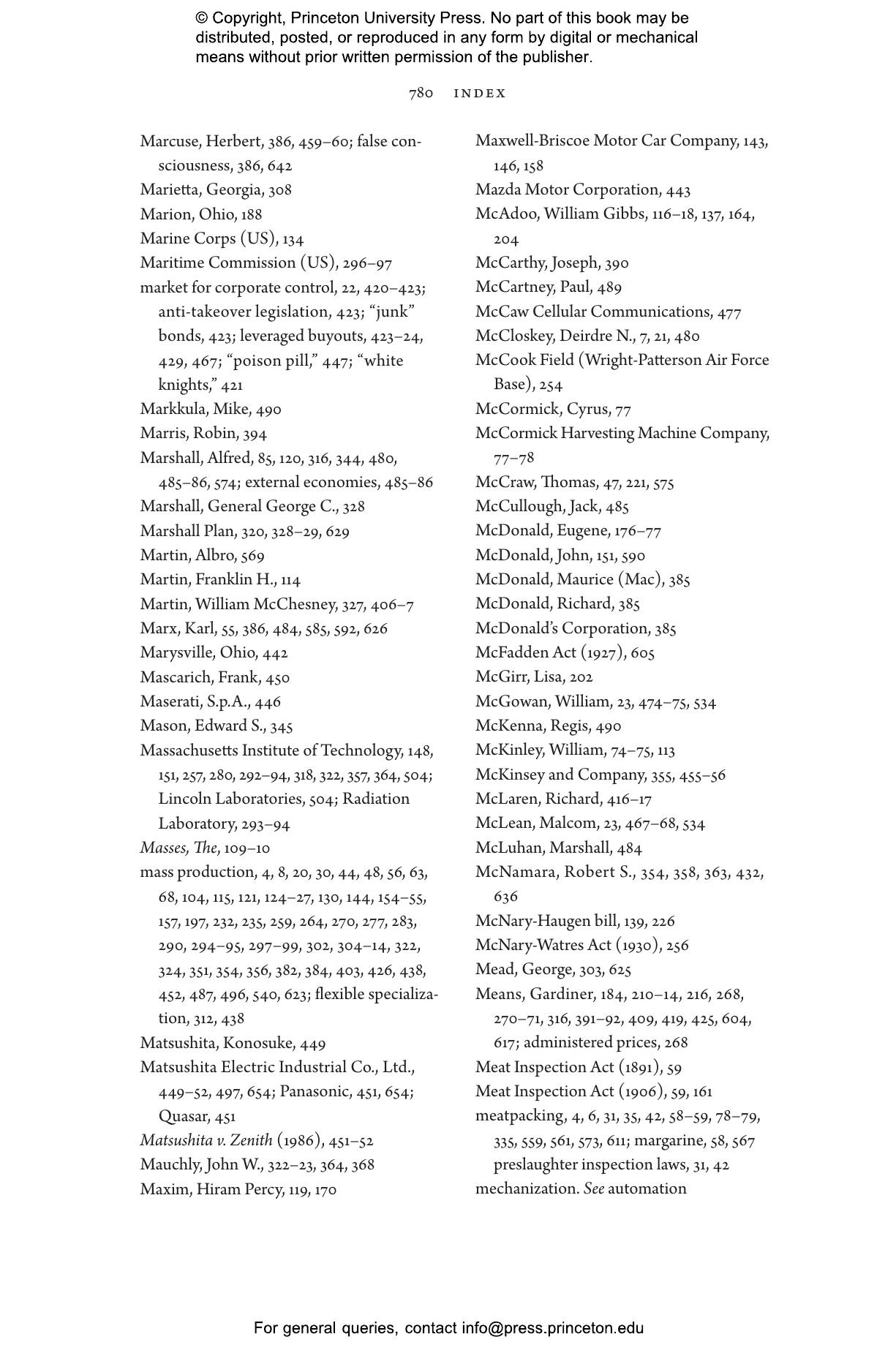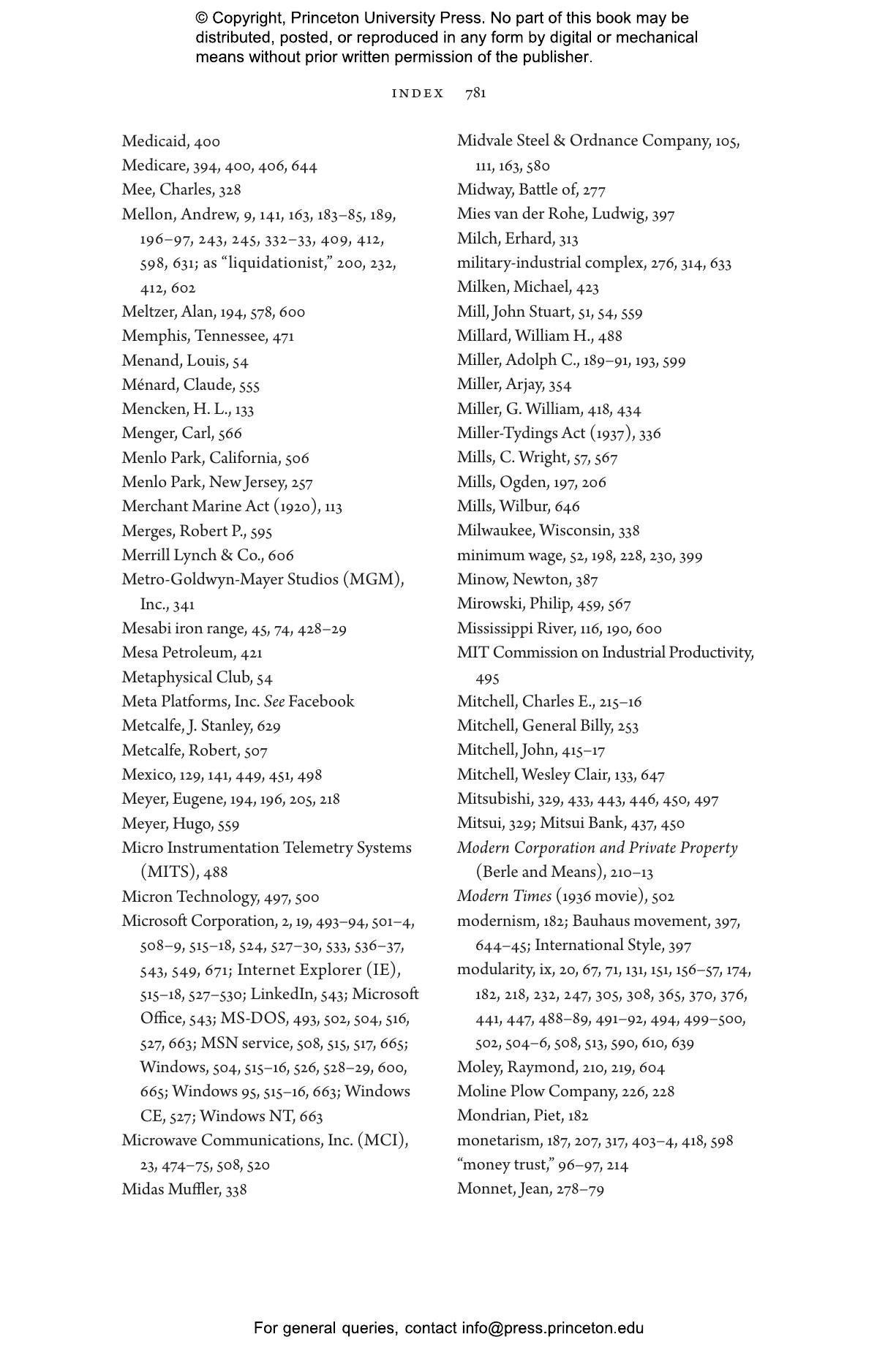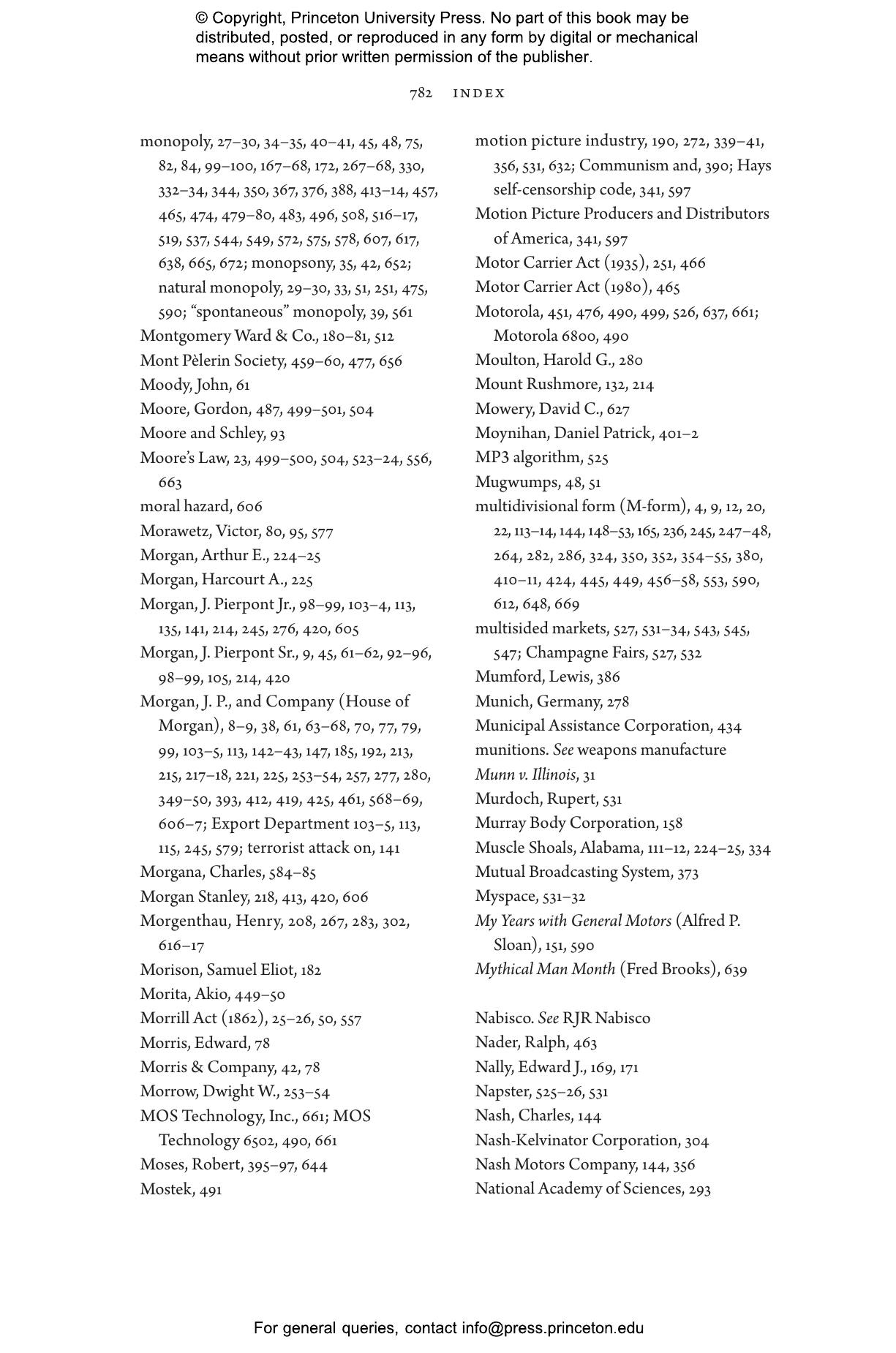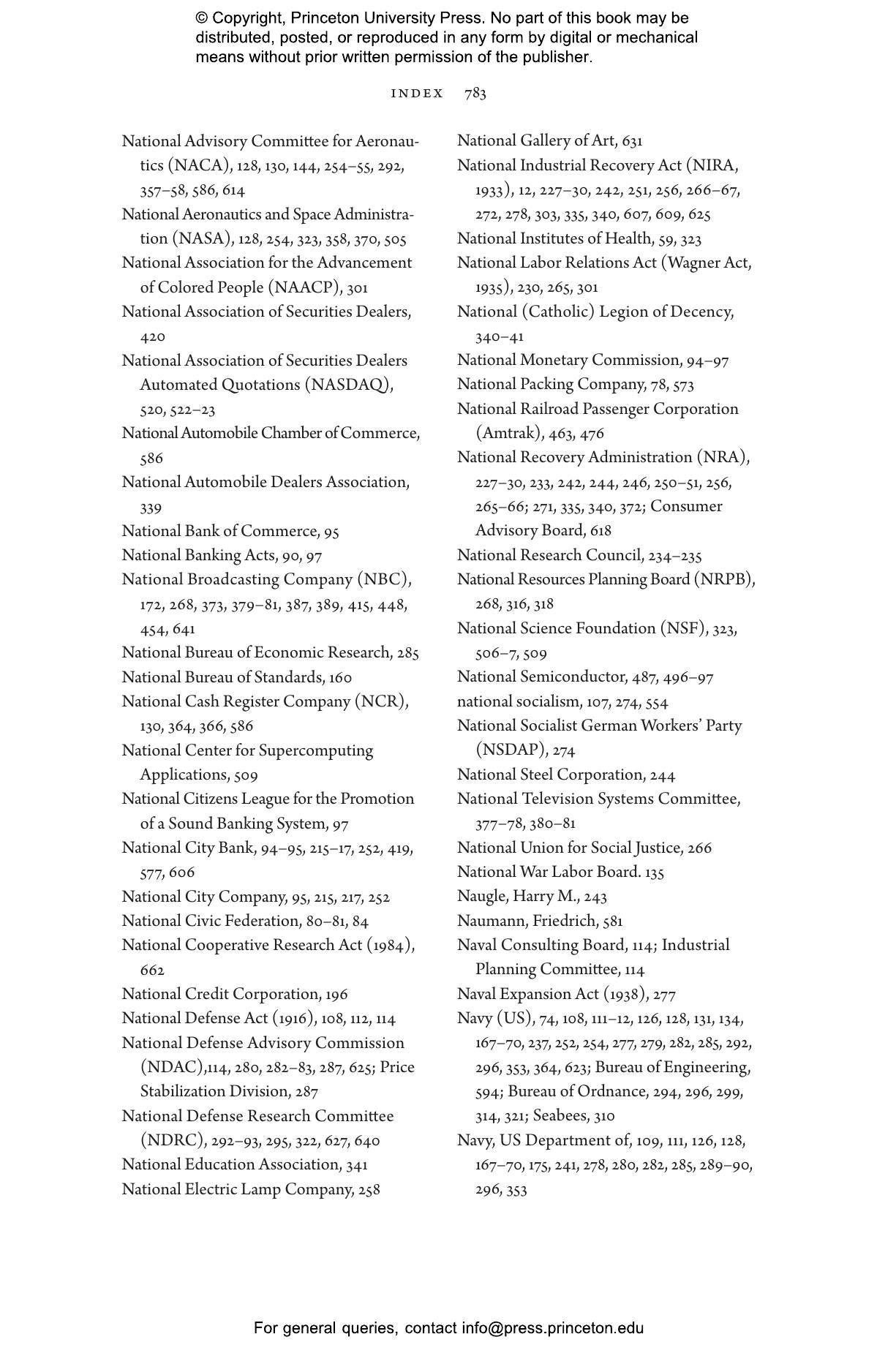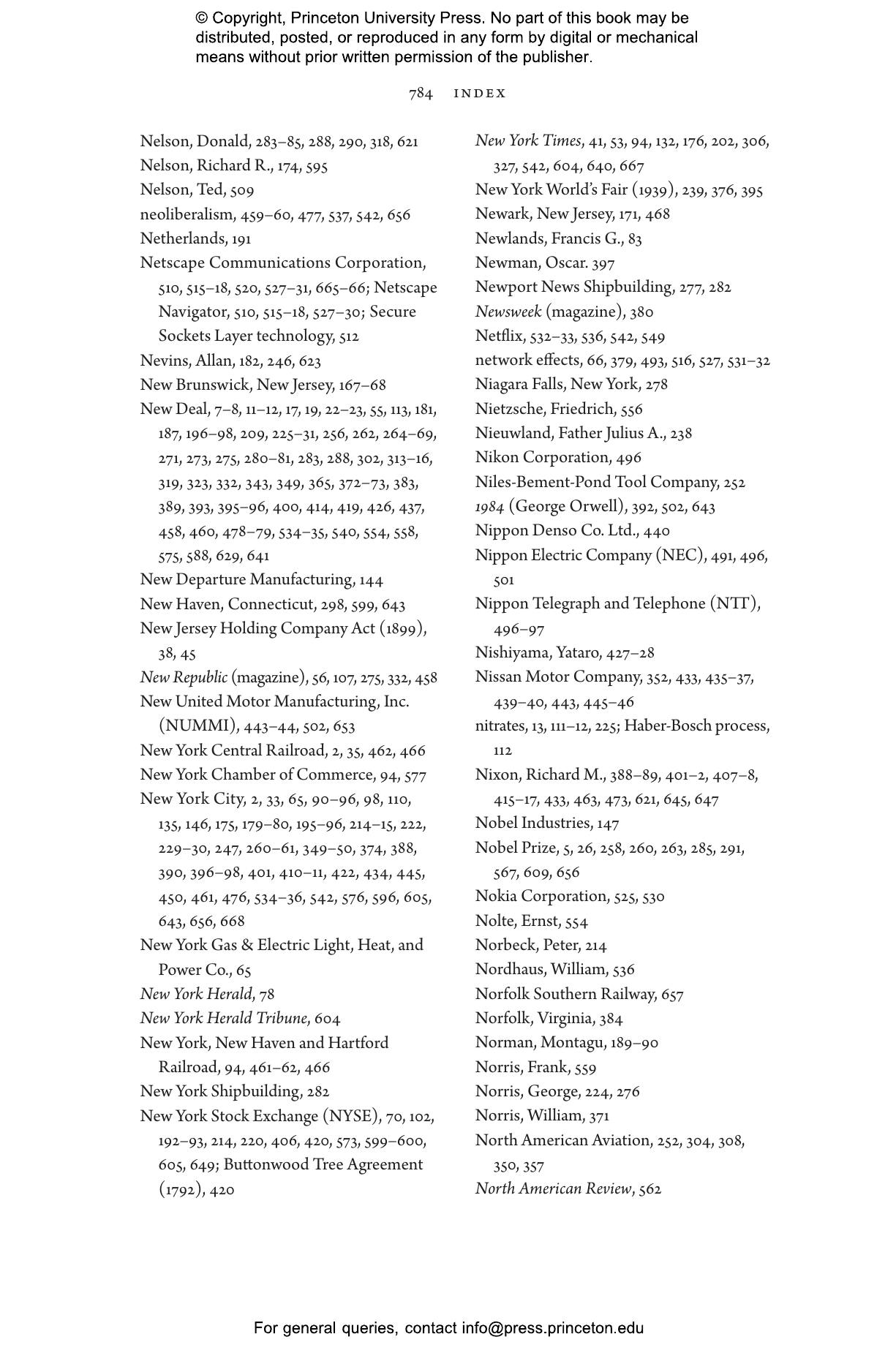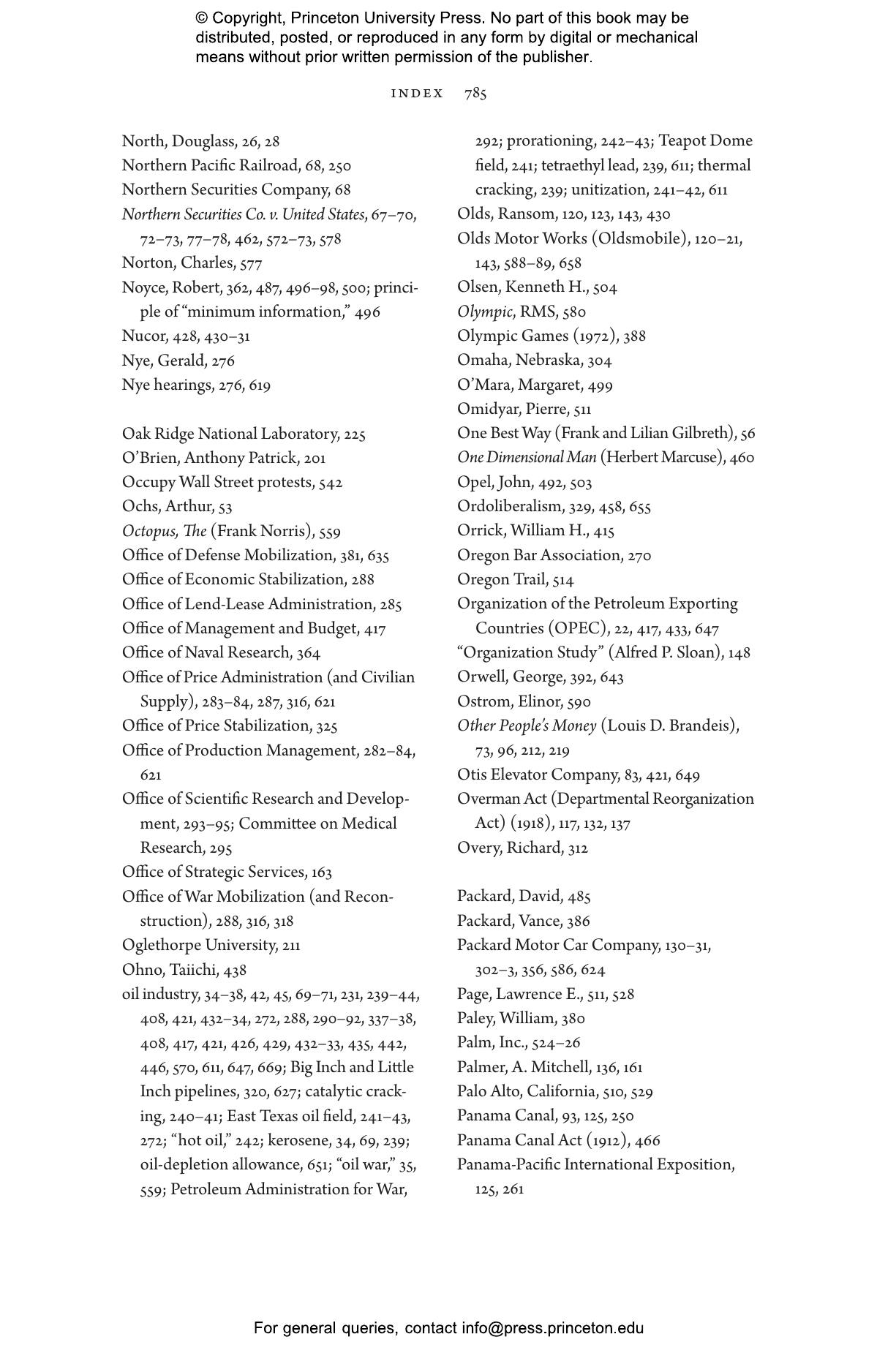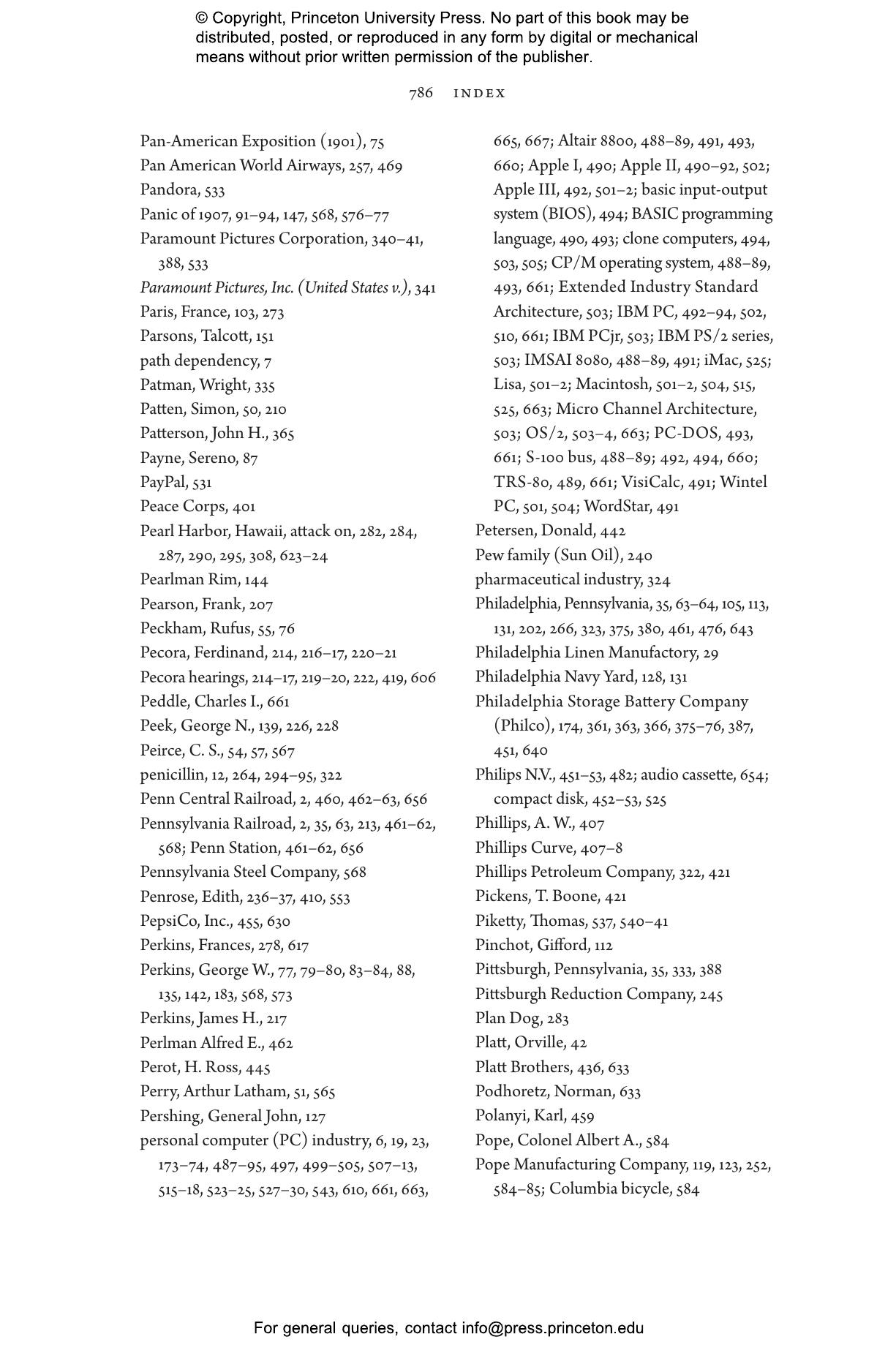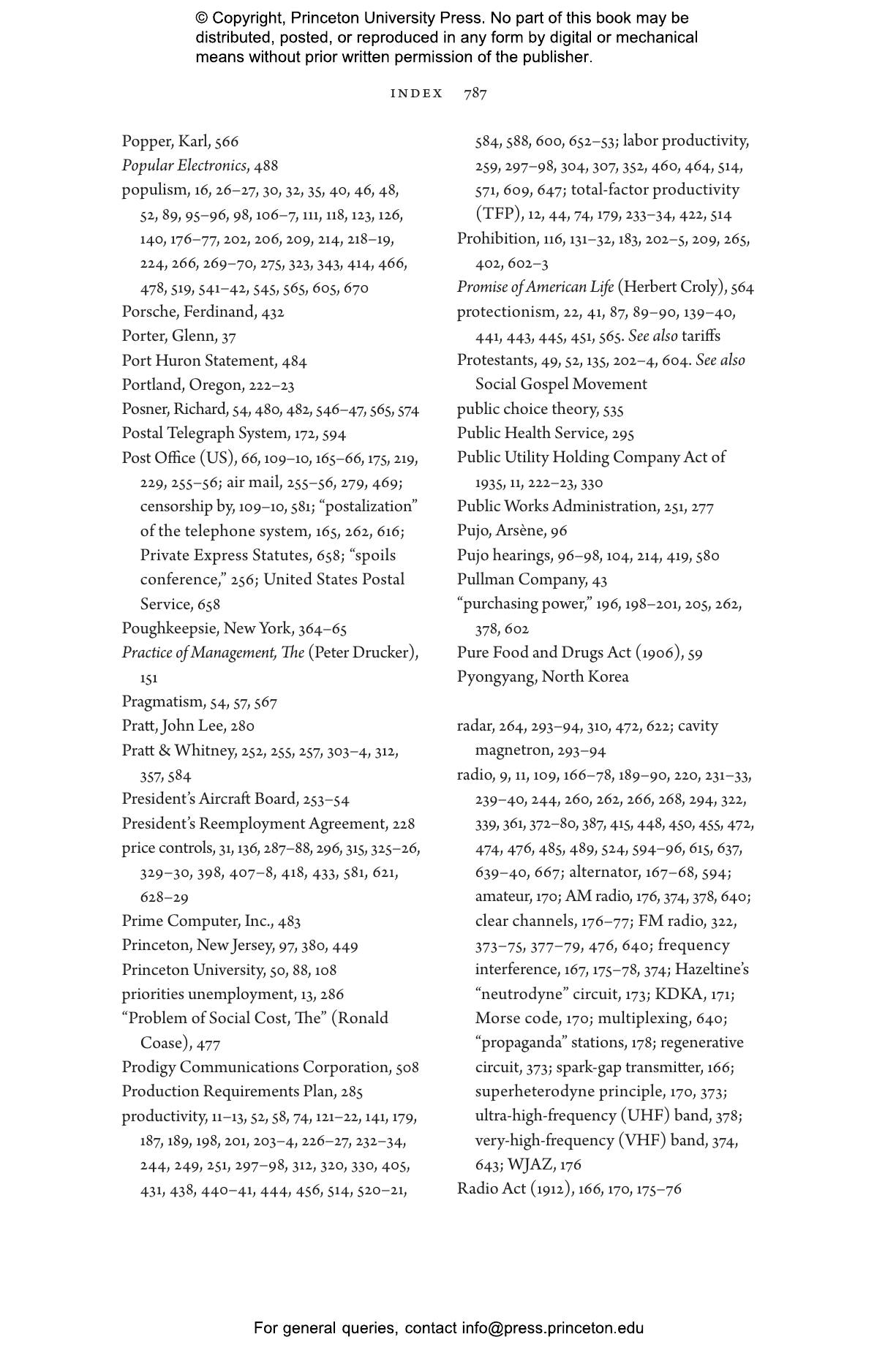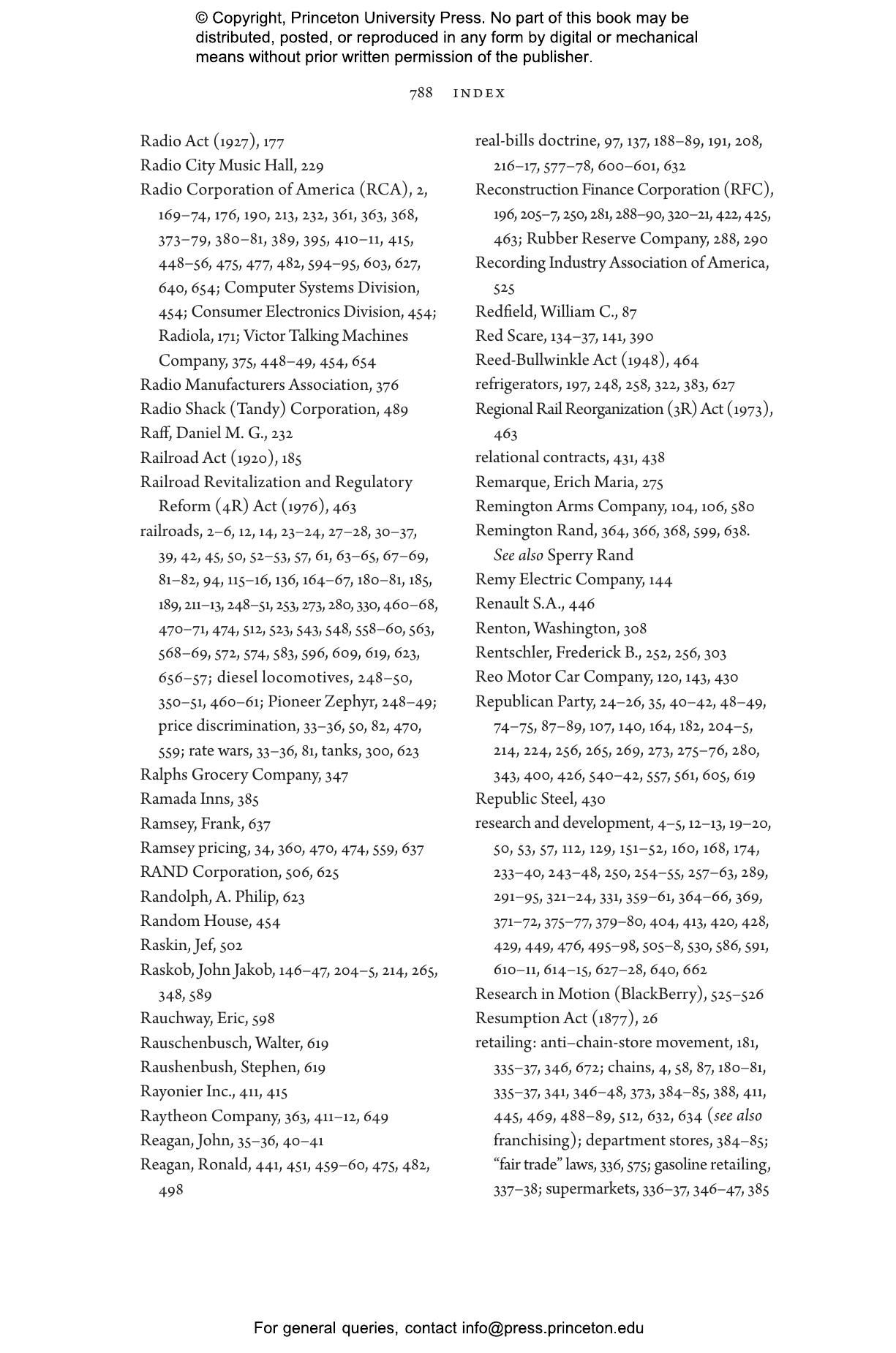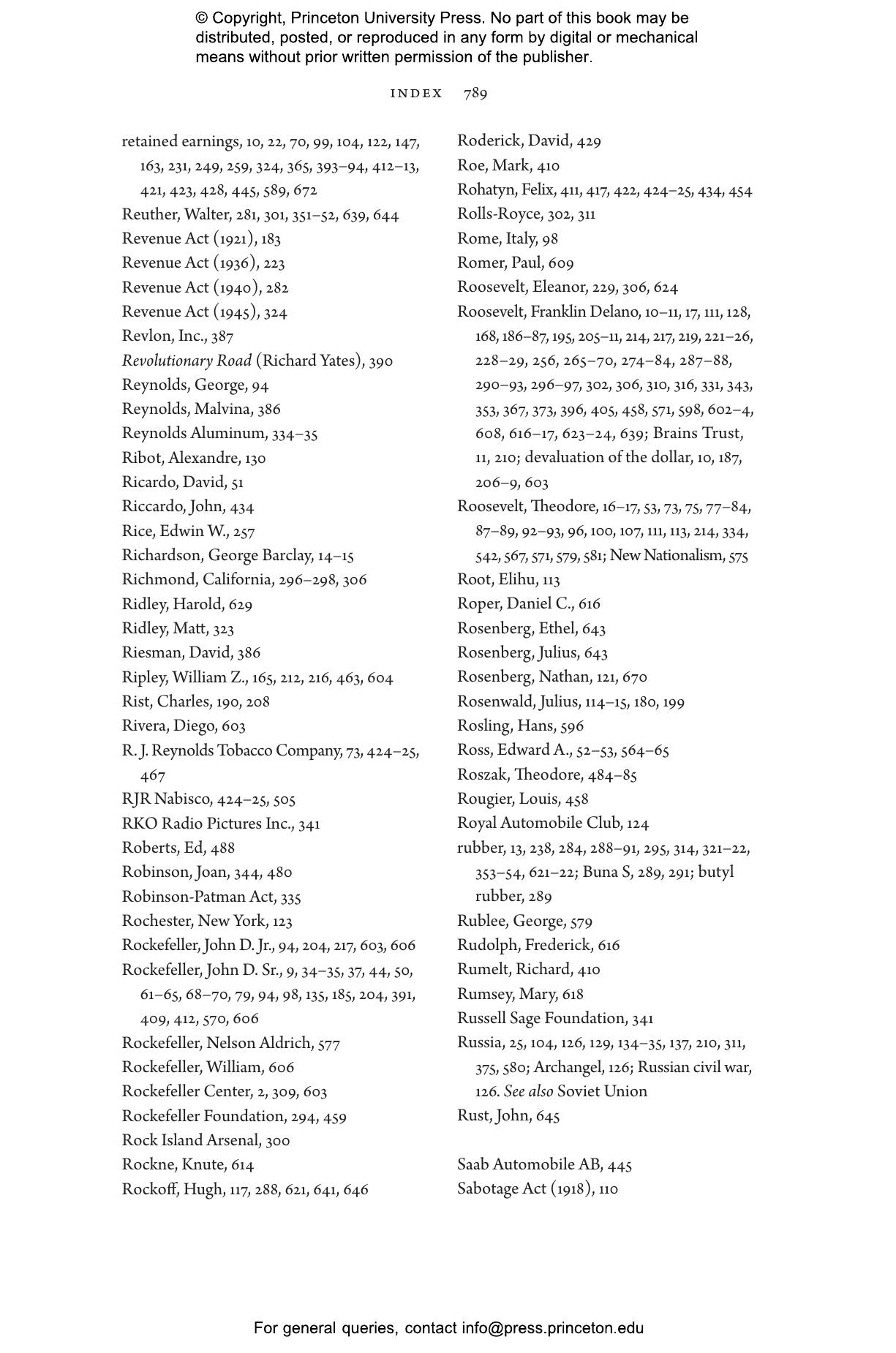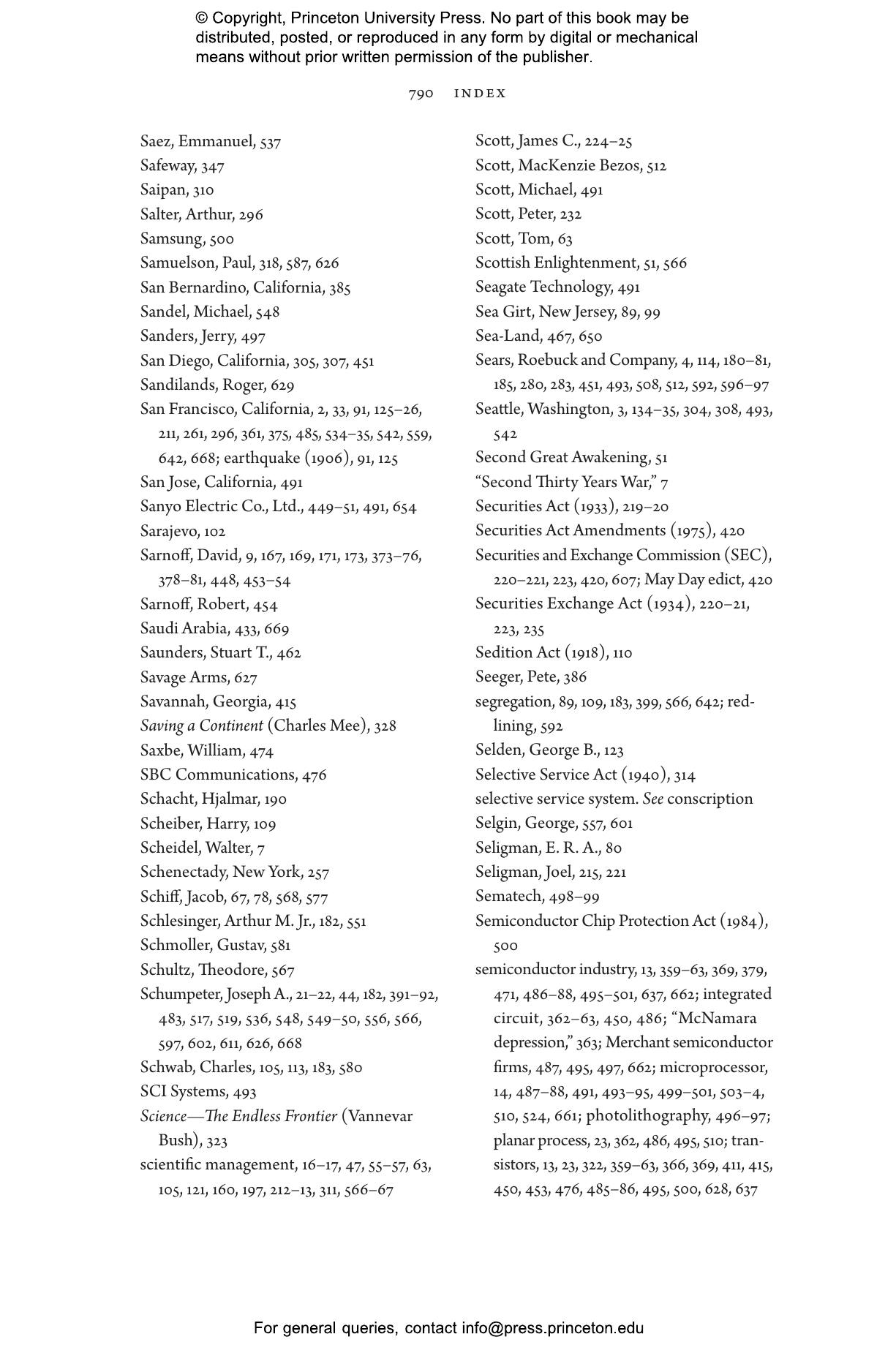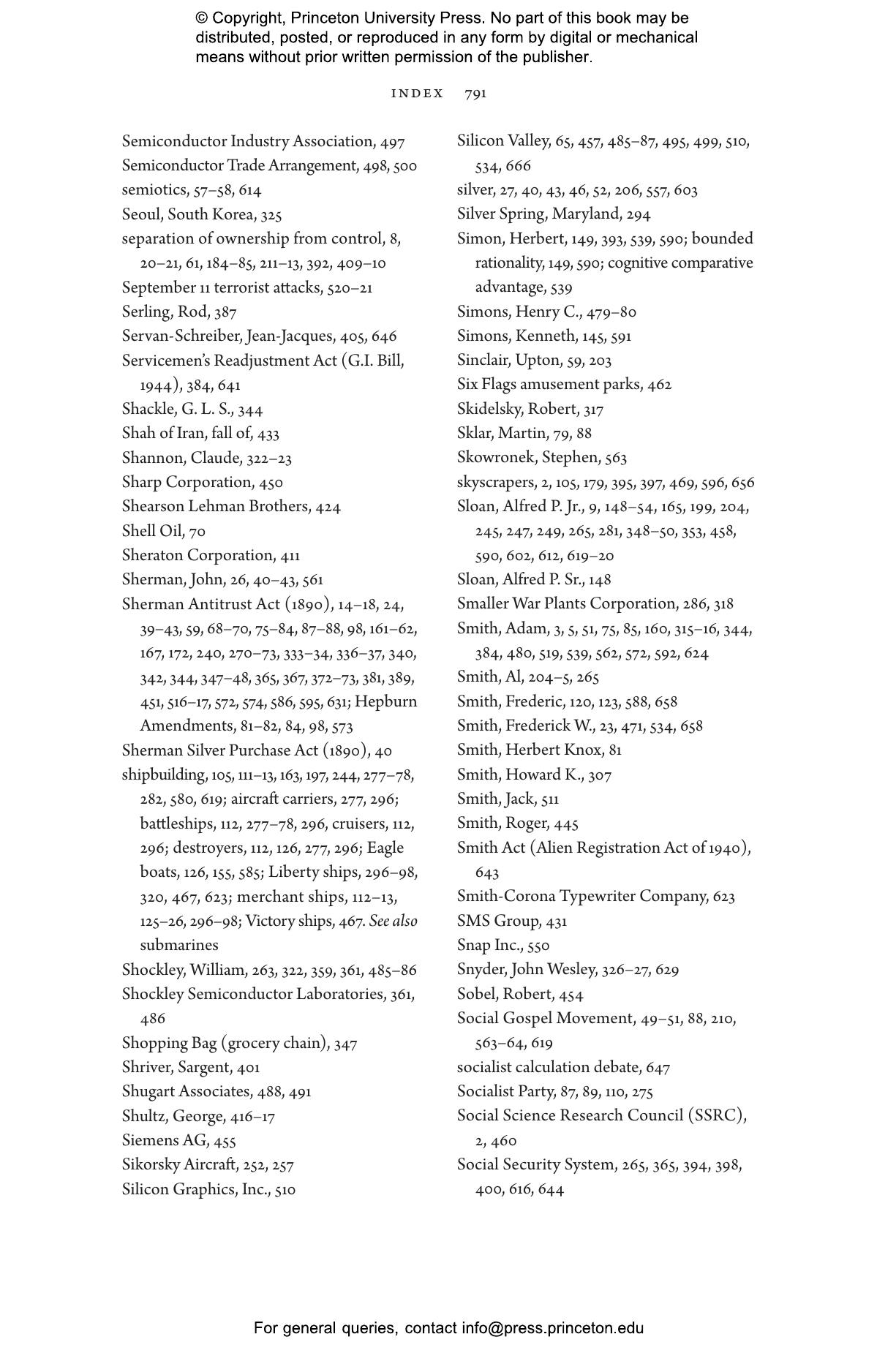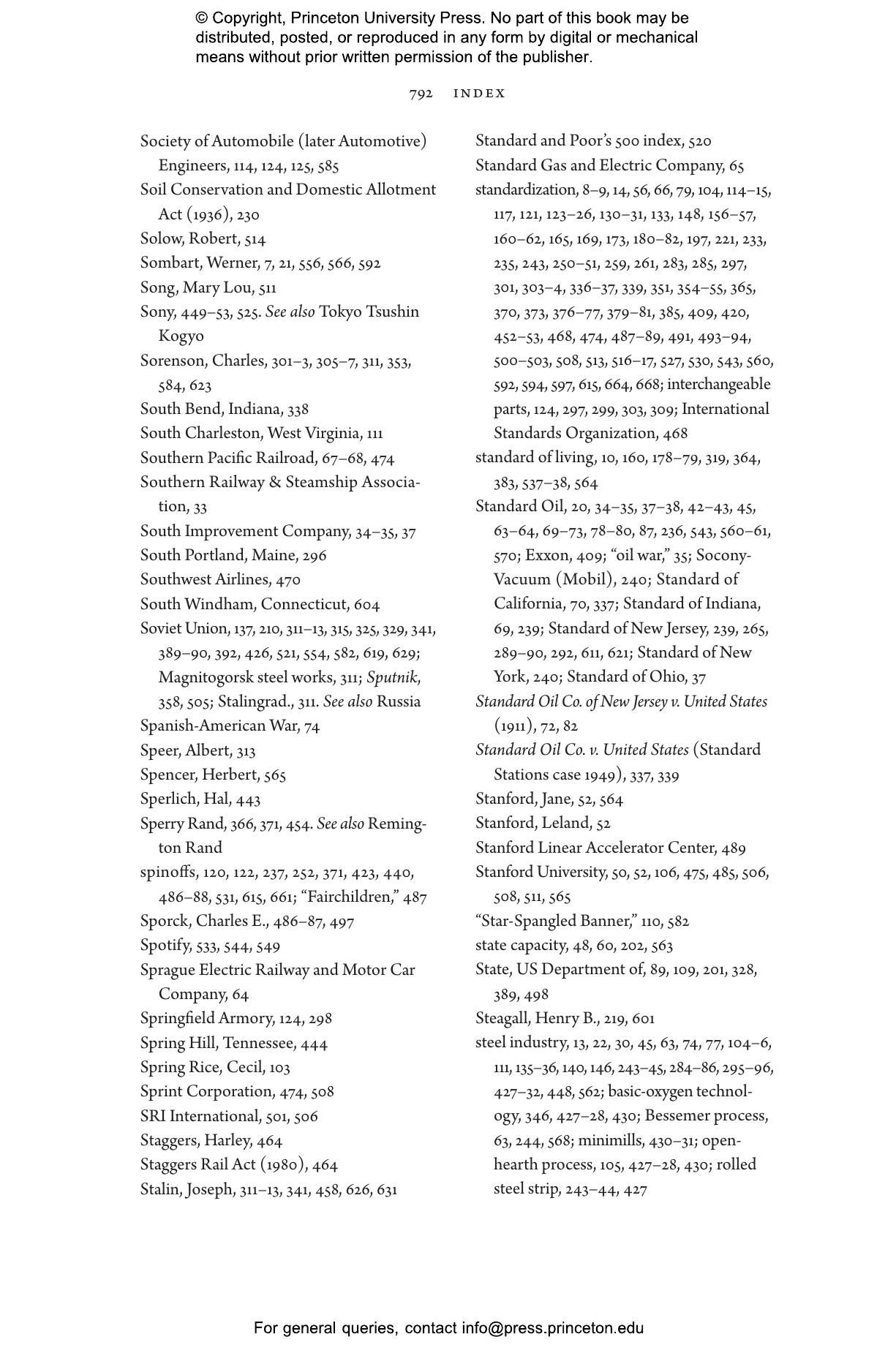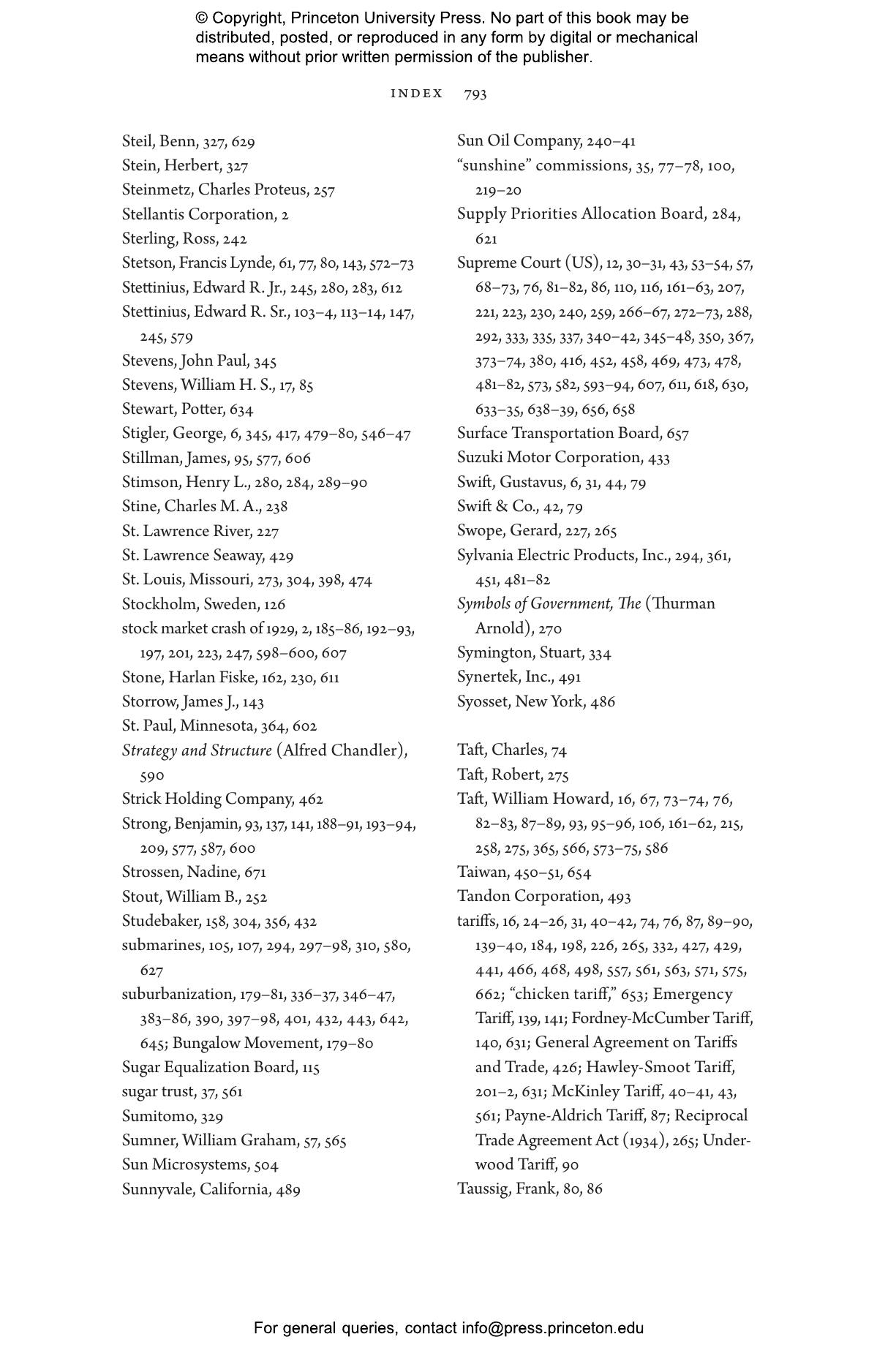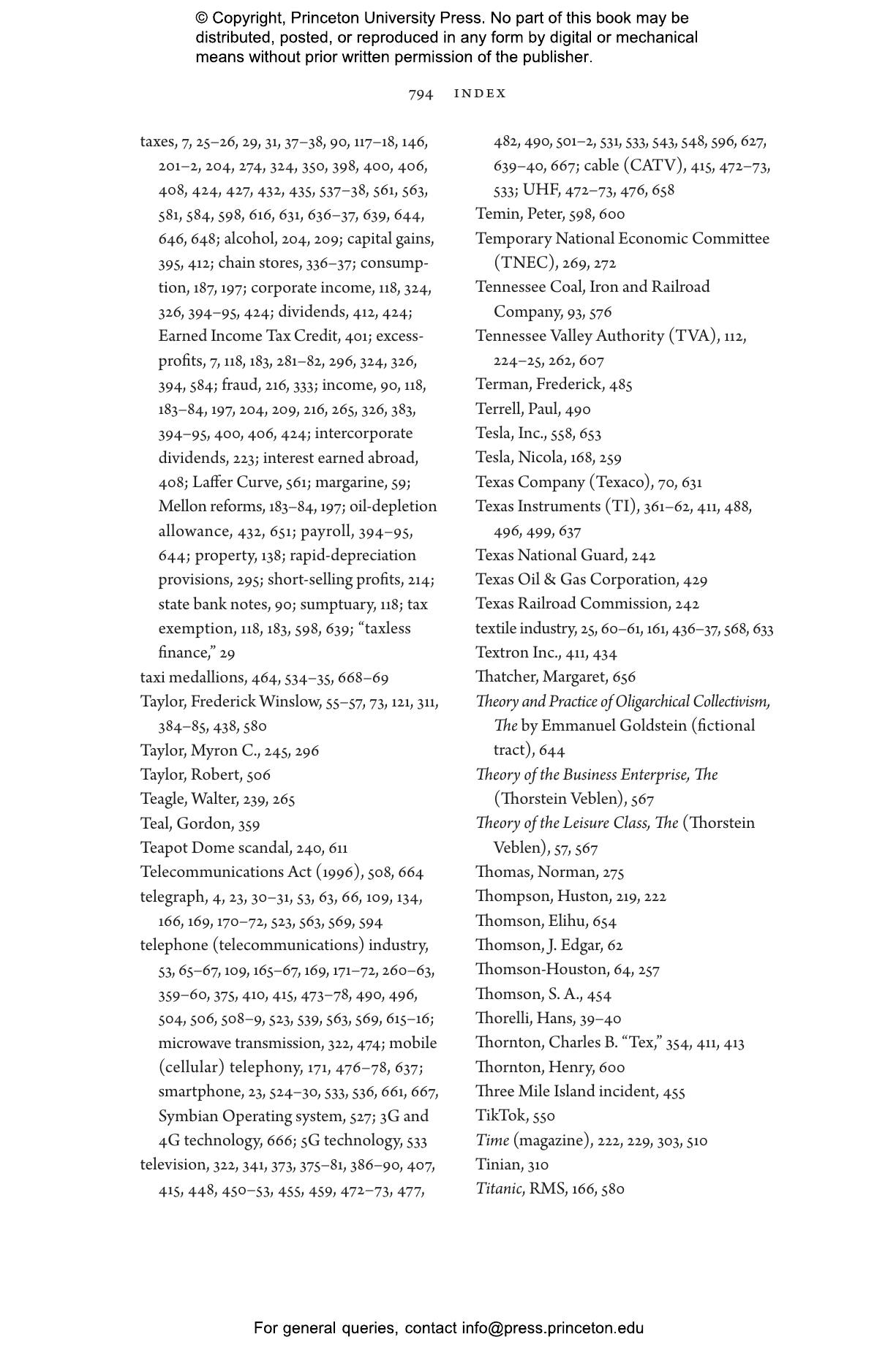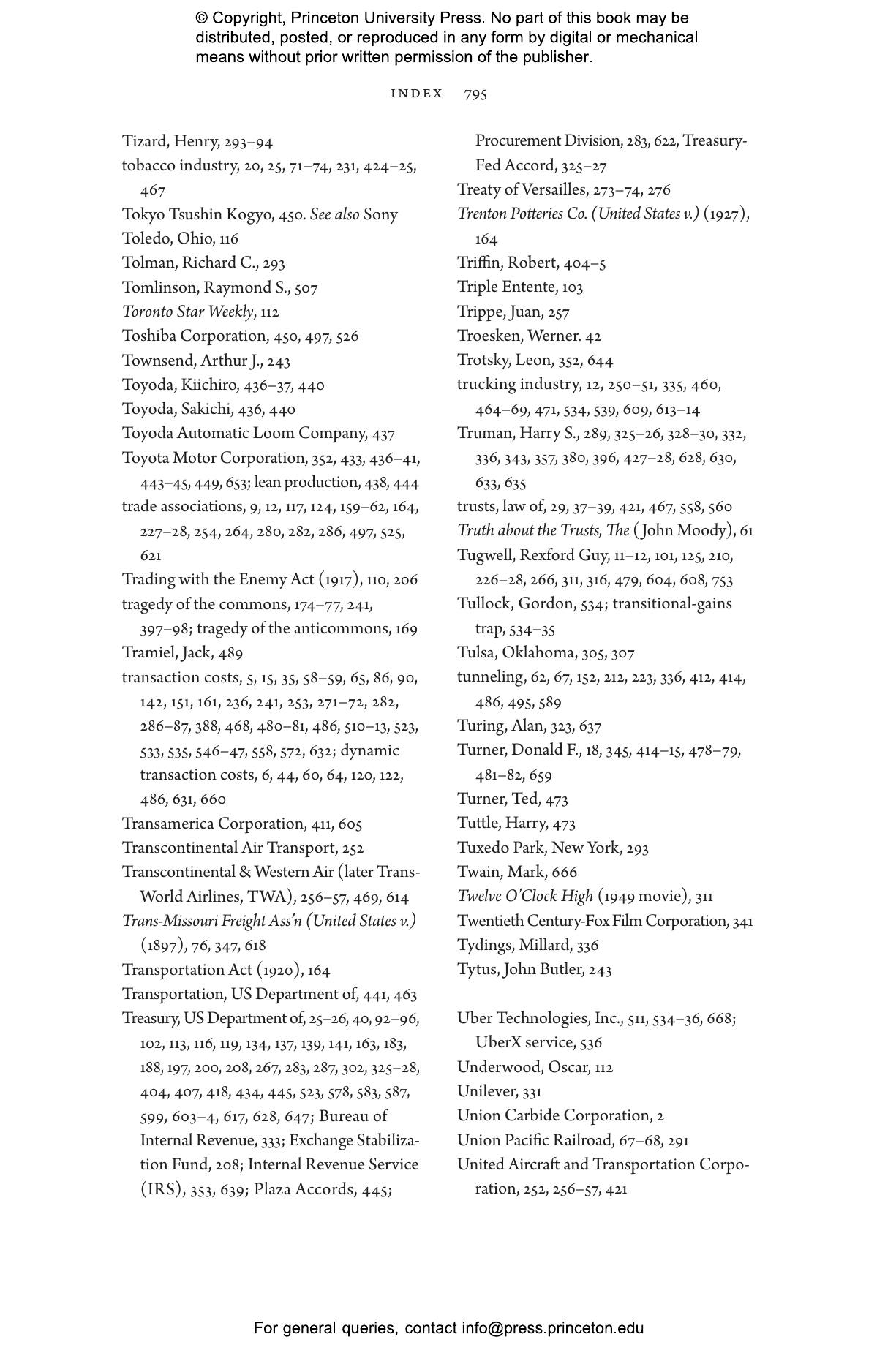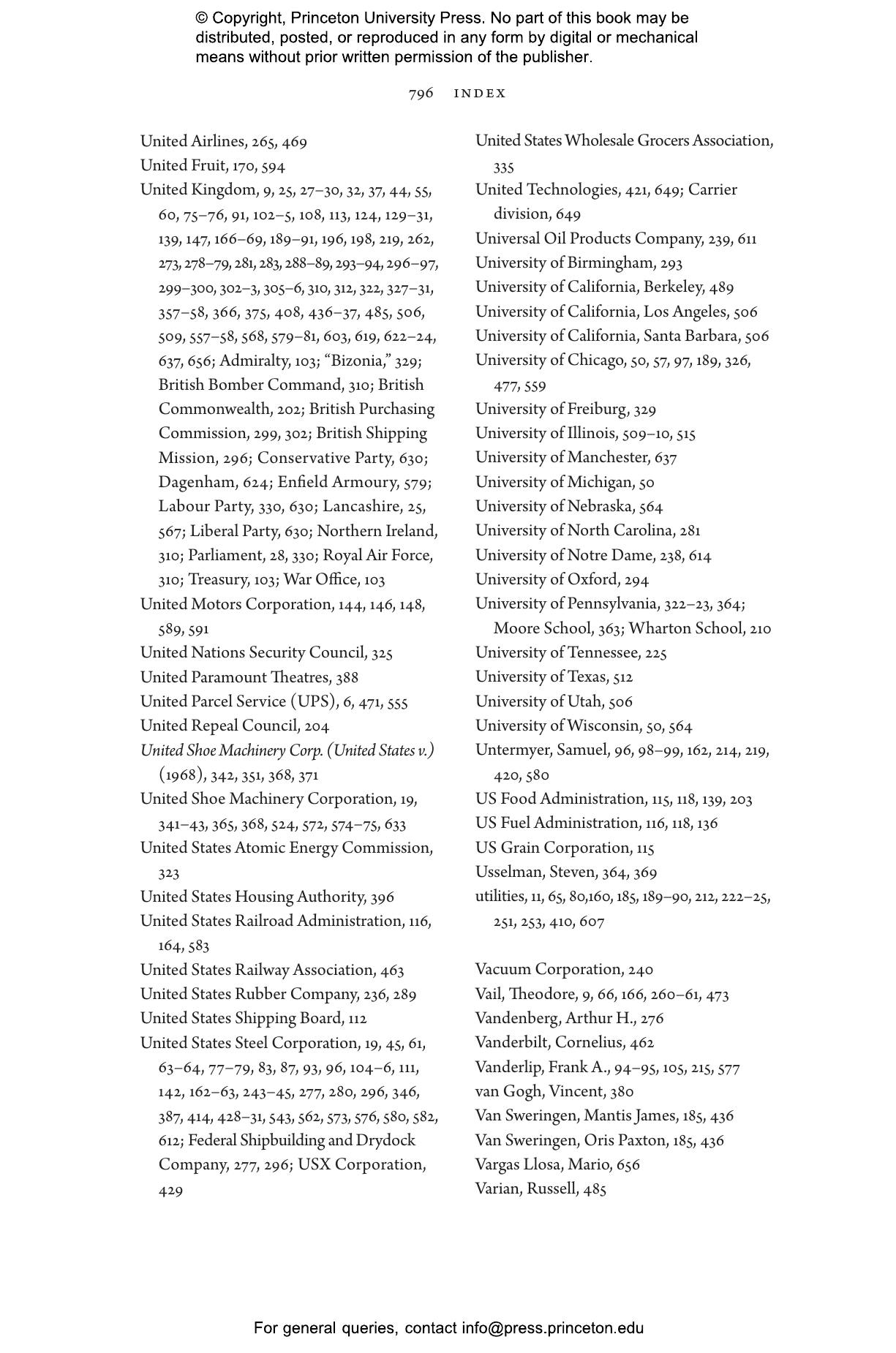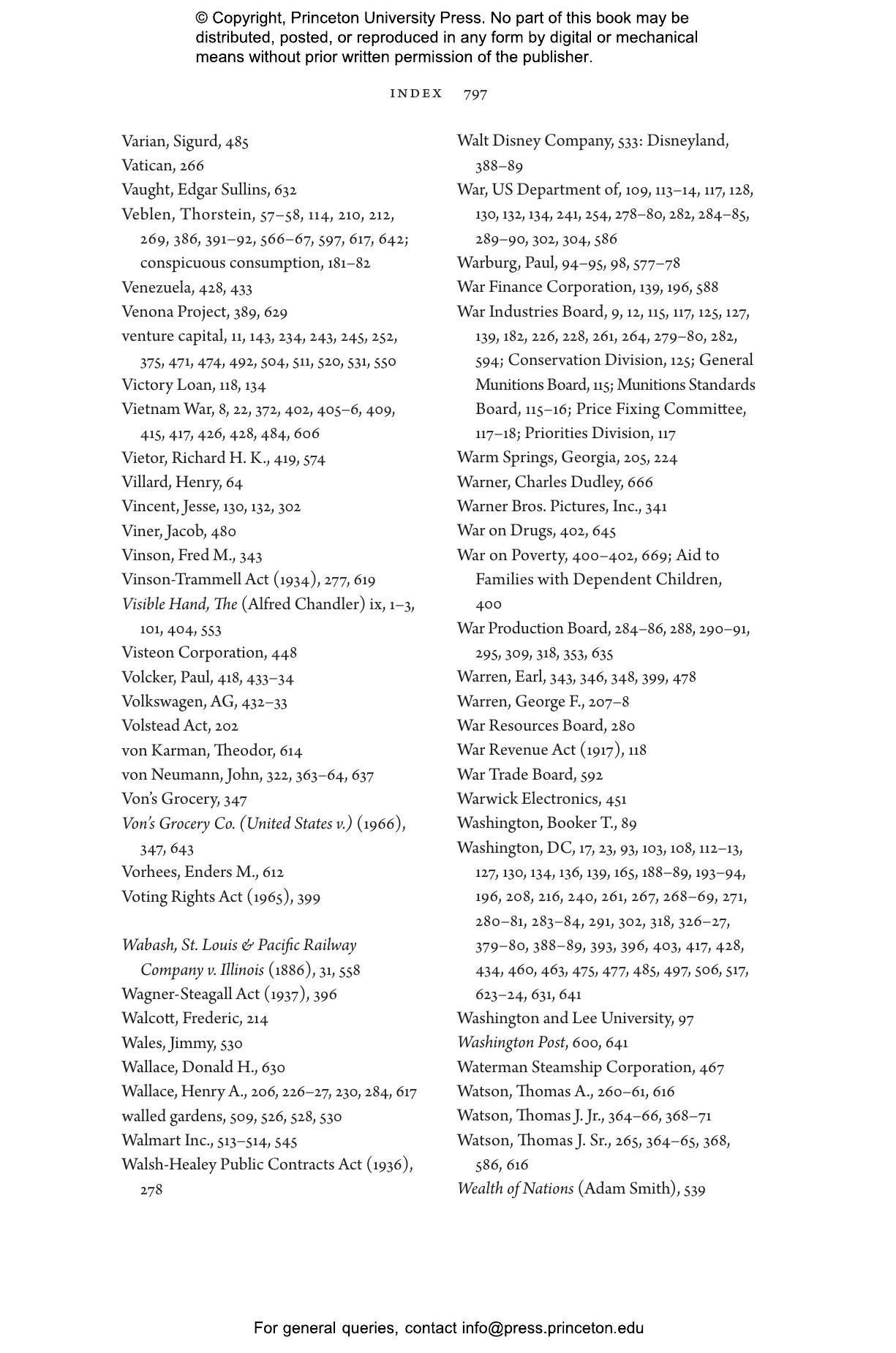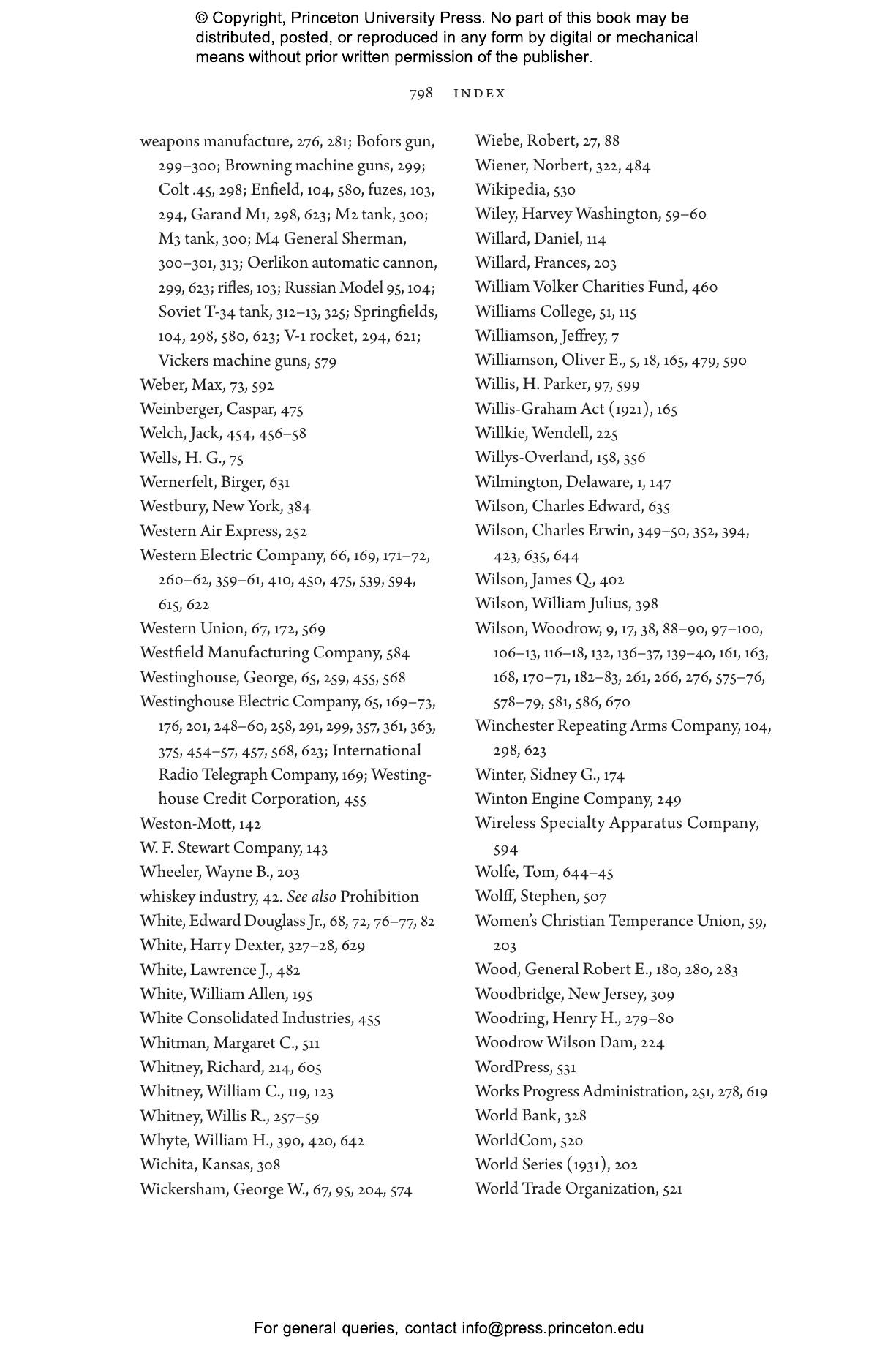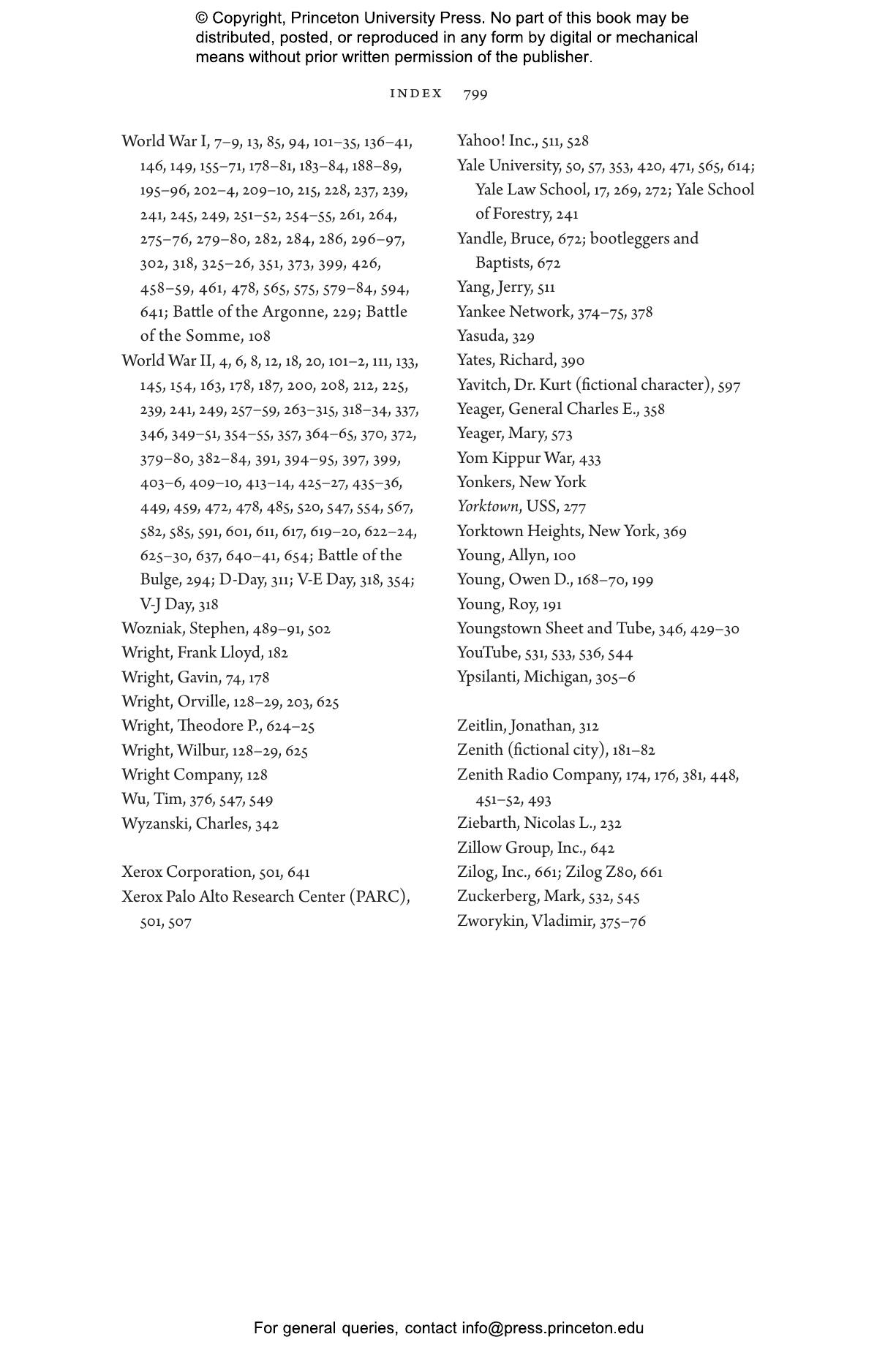The twentieth century was the managerial century in the United States. An organizational transformation, from entrepreneurial to managerial capitalism, brought forth what became a dominant narrative: that administrative coordination by trained professional managers is essential to the efficient running of organizations both public and private. And yet if managerialism was the apotheosis of administrative efficiency, why did both its practice and the accompanying narrative lie in ruins by the end of the century? In The Corporation and the Twentieth Century, Richard Langlois offers an alternative version: a comprehensive and nuanced reframing and reassessment of the economic, institutional, and intellectual history of the managerial era.
Langlois argues that managerialism rose to prominence not because of its inherent superiority but because of its contingent value in a young and rapidly developing American economy. The structures of managerialism solidified their dominance only because the century’s great catastrophes of war, depression, and war again superseded markets, scrambled relative prices, and weakened market-supporting institutions. By the end of the twentieth century, Langlois writes, these market-supporting institutions had reemerged to shift advantage toward entrepreneurial and market-driven modes of organization.
This magisterial new account of the rise and fall of managerialism holds significant implications for contemporary debates about industrial and antitrust policies and the role of the corporation in the twenty-first century.
Awards and Recognition
- A Foreign Affairs Best of Books
- Finalist for the Hayek Book Prize, Manhattan Institute
- Finalist for the George R. Terry Book Award, Academy of Management
- Winner of the Alice Hanson Jones Prize, Economic History Association
"A monumental history of American business during the eventful decades when managers ruled."—Daniel Akst, Wall Street Journal
"Sharp analysis. . . . Chock -full of sophisticated economic theory rendered in lucid prose, this adds up to a bracing evaluation of a consequential and once dominant commercial entity."—Publishers Weekly
"Illuminating. . . . Entertaining as well as scholarly, and it sheds interesting light on many of the personalities who have shaped or reshaped the American corporation. It is also a valuable corrective to some widely held misconceptions about American capitalism."—Sir Geoffrey Owen, Financial Times
"[An] outstanding endeavour. . . . A milestone for students of business as well as economic history, without forgetting the insightful comments on the history of economic theory. Consequently, it is a fundamental work for students at any level and for those at any age interested in enlarging their knowledge of economic history."—Stefano Solari, History of Economic Thought and Policy
"A richly detailed and engaging narrative of twentieth century American business."—Andrew Smith, Business History
“A new and even better Alf Chandler has arisen, a Chandler who does not believe that the visible hand is always and everywhere the way to wealth. Langlois does the scientific job brilliantly, and does wisely, too, the political job of seeing the lessons for our collective lives.”—Deirdre Nansen McCloskey, University of Illinois at Chicago
“Richard Langlois’s The Corporation and the Twentieth Century is a major achievement and stands as the best and most important work on the history of the modern American business corporation.” —Tyler Cowen, George Mason University
“Langlois provides an erudite and wide-ranging reinterpretation of the rise and subsequent decline of large managerial corporations in American business history. His emphasis on the political economy context and contingency is important.”—Geoffrey Jones, Harvard Business School
“Langlois offers a profound, accessible, and essential revision of the economic, institutional, and intellectual history of the managerial era. His book is a magisterial, lively, provocative, and timely read.” —Amar Bhide, author of The Venturesome Economy
“In the last half century American high-tech firms and overseas new entrants have eclipsed classic twentieth-century Chandlerian corporations like General Motors and Du Pont. Richard Langlois’s masterpiece—long trailed in thoughtful articles and here distilled and rectified into fine whiskey—pulls no punches where they are necessary for his clinical deconstruction of the Chandlerian paradigm, but is properly respectful of its strengths, carefully weighing the merits of all sides of the argument.”—Leslie Hannah, London School of Economics
“This is a magnificent book. Drawing upon Coase, Williamson, Demsetz, Schumpeter, Hofstadter, and others, Langlois provides an analytical narrative of the development and adaptability of business organizations, their challenges, and responses from the late nineteenth through the early twenty-first centuries. To present this important and complex story of institutional innovation, Langlois combines economic, business, political, and legal history. Langlois’s important analysis of the past 100 years provides optimism for continuation of business enterprise adjustments to promote economic growth and the quality of life.”—Gary D. Libecap, University of California, Santa Barbara, and National Bureau of Economic Research
“Richard Langlois challenges Alfred Chander’s claim that new technologies led large firms inevitably to substitute for markets: the visible hand. Langlois argues that as markets developed more sophistication in the twentieth century, the internal structure of firms changed: the vanishing hand. A combination of markets, firms, and governments explains the rise, decline, and transformation of the corporation in the twentieth-century United States. The book is a rich economic history of the twentieth century from the corporate perspective.”—John Joseph Wallis, University of Maryland and University of Cambridge
“Richard Langlois has written a history of the corporation with three main threads. First, he offers a critique of the Chandler tradition arguing that the Chandler model becomes less applicable after 1972 or so. Second, he offers a critique of U.S. antitrust policy that highlights its liabilities. Third, he offers his own view of the evolution of the corporation, which is a major contribution to understanding the evolution of the corporation in the late twentieth and early twenty-first centuries.”—Louis P. Cain, Northwestern University and Loyola University Chicago


